A Guide to the Best 5/6-Bay NAS Drives to Buy Right Now
In recent years, the appeal of 5-Bay and 6-Bay NAS systems has dramatically increased, particularly since 2023/2024. Previously, home and small-business users tended to opt for either modest 2/4 Bay systems or jump to the larger 8-Bay models when needing more storage capacity. The growing popularity of 5-Bay and 6-Bay models can be attributed to two key factors. Firstly, the advent of larger capacity drives, reaching up to 22TB and soon 24TB, enables even mid-sized NAS systems to surpass the 100TB storage threshold easily. Secondly, there’s a heightened awareness of data redundancy needs and skepticism about the reliability of single-drive safety in RAID 5 configurations, compared to the two-drive failure protection offered by RAID 6. This combination has made 5-Bay and 6-Bay NAS setups, especially those using large drives in a RAID 6 array, much more accessible and desirable. NAS manufacturers have taken note of this trend, leading to an expanded range of 5-Bay and 6-Bay NAS solutions that vary in hardware capabilities, power, and price. In this context, I aim to highlight my top picks for 5-Bay and 6-Bay NAS drives to consider in 2023/2024, each standing out for unique reasons. Let’s explore the best 5-Bay and 6-Bay NAS servers that should be on your radar.

Best 5/6-Bay NAS of the Year
|
What Have All the Best 5/6-Bay NAS Drives Have in Common?
As you explore the extensive selection of 5/6-Bay NAS drives available in 2023/2024, it’s important to recognize that their quality and capabilities vary greatly. Despite the growing number of budget-friendly options online, they often fall short of the standards set by premium NAS brands, appearing too good to be true and disappearing quickly. Whether you’re considering my top three 5/6-Bay NAS recommendations or looking at other options, the best NAS systems consistently offer certain essential features:
- Combined Hardware & Software Solution: This includes not only the NAS hardware but also a comprehensive software suite with a web browser GUI, mobile apps, and desktop client applications for backup, media, streaming, surveillance, and file management.
-
Multi-OS Compatibility: All NAS systems should be compatible with and accessible by Windows, Mac, Android, and Linux operating systems.
-
Warranty of 2-3 Years, Extendable to 5 Years: Look for a standard warranty period with an option for extension.
-
Local and Secure Remote Network Access: The ability for local network access and secure remote access via brand-supported services, at no extra cost.
-
Support for Latest Large Capacity Hard Drives: Modern NAS systems should support up to 20TB NAS hard drives, such as Seagate Ironwolf 22TB and WD Red 22TB.
-
Multiple Drive Configurations (RAID): For enhanced performance and data safety.
-
Regular Security and Feature Updates: Ensuring the NAS system remains secure and up-to-date.
-
Cloud and Business Service Synchronization: Compatibility with services like Google Drive, Dropbox, OneDrive, AWS, Azure, and Backblaze.
-
Shared Drive Hosting Capability: The ability to host a shared drive on PC, mobile, or laptop systems, synchronized with the NAS and displayed in the native file manager.
-
Direct Access via Ethernet/Network Cable: For high-speed connectivity, direct access through an ethernet/network cable to the NAS is crucial.
-
Backup and Sync Tools: Available for installation on local client computers to facilitate regular backups of files and system data.
Ensure that any 5/6-Bay NAS you are considering includes these features, as they are key indicators of a high-quality NAS system. Let’s now delve into the best 5/6-Bay NAS options to invest in for 2023/2024.
Honourable Mention: 5/6-Bay NAS Drive – The LincStation N1
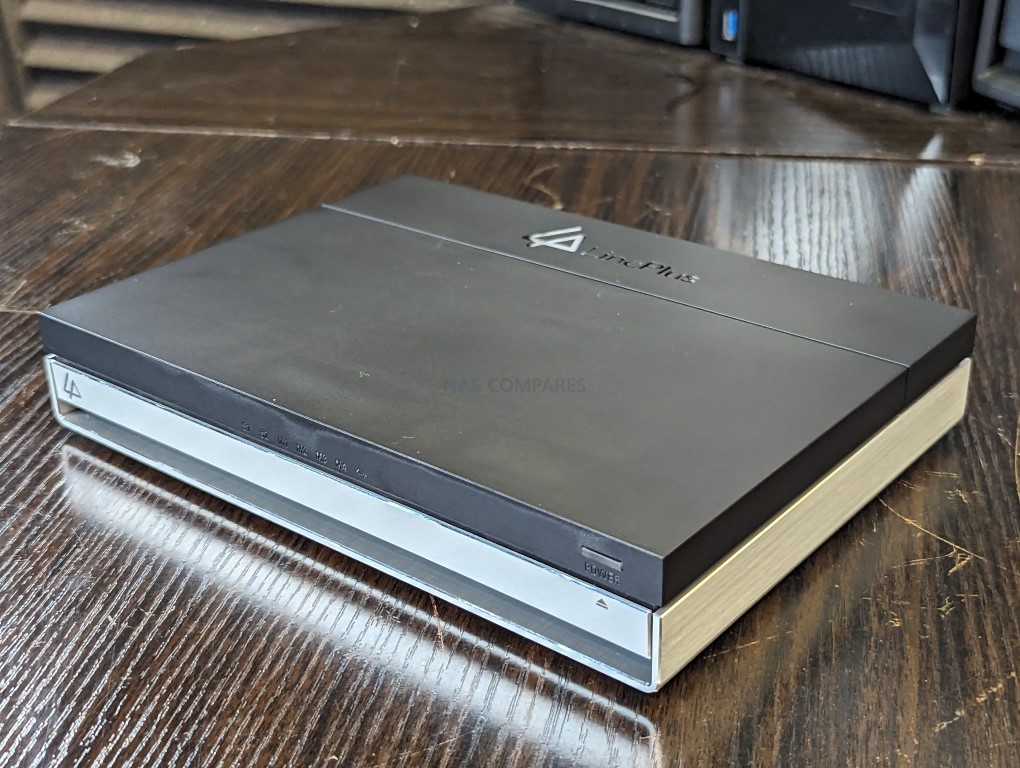
0-32TB M.2 NVMe + 10TB SATA HDD / 16TB SATA SSD, 4+2-Bays, 4xM.2 NVMe 2280, Intel N5105/N5095 CPU, 16GB Memory, 2.5Gbe Port, HDMI+DP 1.4 60FPS 4K, UnRAID License Inc, 2yr Warranty
Current Price/Availability on Amazon –$250-300 (TBC) (Currently in Crowdfunding)
Hardware Review – LINK
YouTube Video Review – Watch
What I said in my review Oct 16 ’23:
When evaluating the Lincplus N1 NAS, context is paramount. Keeping in mind its price point and the brand’s objectives, as well as understanding how an SSD-centric system can fit into this mold, you’ll likely be thoroughly pleased with this NAS. For a mere $279, it offers an unmatched combination of hardware capabilities. The silent operation, bundled UnRAID software, two-tier storage, and genuine turnkey out-of-the-box deployment culminate into a device brimming with potential. It caters to both newcomers to private server ownership and seasoned home lab enthusiasts. Certain concessions were inevitable to attain this attractive price. Seasoned flash industry professionals might bemoan the absence of ECC memory, the use of a consumer-grade CPU, and limitations placed on the bandwidth and speeds for the m.2 NVMe slots. Even though the software is genuinely turnkey and the system is ready to run immediately after unboxing, UnRAID does come with its learning curve. It might be more user-friendly compared to other container-based GUIs, but there’s still a learning curve. Additionally, the default UnRAID settings could be better tailored to this SSD-driven system.
Hopefully, future firmware updates might address this. Such discrepancies are expected when the hardware is developed by one entity and the software by another. This dichotomy can lead to inconsistencies, such as those seen in drive monitoring results, raising questions about the demarcation of responsibility between the two entities. However, overlooking these minor points, the N1 stands out as a commendable alternative to a full DIY approach. It not only saves money and time but also offers a ready-to-use, compact solution. Provided you acknowledge and accept the inherent compromises, the N1 emerges as a notable midpoint in the burgeoning server market, bridging the gap between custom-built and all-inclusive turnkey solutions.
Best Software 5/6-Bay NAS – The Synology DS1522+
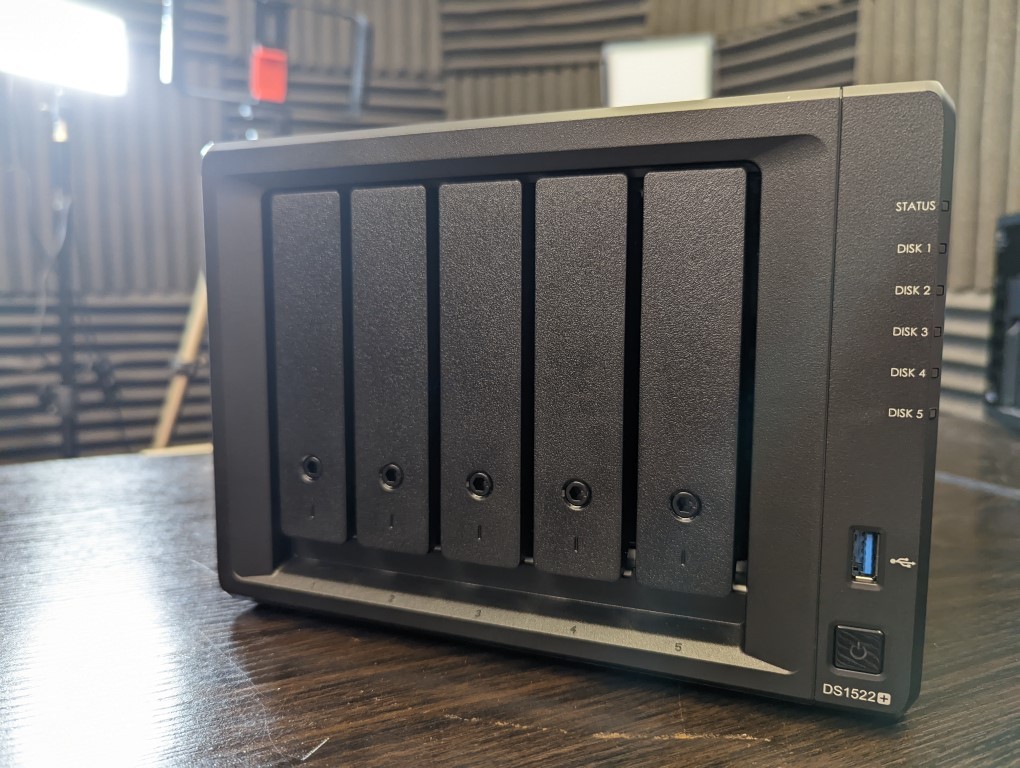
0-110TB (90TB with Syn HAT5300s) , 5x SATA Bays, 2x M.2 NVMe 2280 (Pools and Caching), AMD R1600 2-Core / 4-Thread CPU, 8-32GB ECC DDR4 Memory, 4x 1Gbe Port, Optional 10GbE Upgrade, 2x Expansion Port, 3-5yr Warranty
Current Price/Availability on Amazon – $699
Hardware Review – LINK
YouTube Video Review – Watch , Before You Buy Video – Watch
What I said in my review June ’22:
The Synology DS1522+ is a good NAS drive and most business-focused users are going to appreciate what this newer configuration of hardware is able to provide. There was never any doubt in the extent to which this new NAS would support DSM7, and given its architecture, there is virtually nothing in the popular NAS software that this system cannot do. Likewise, having the option of 10GbE on a Diskstation of this scale will be hugely attractive to some, though the proprietary means with which you need to upgrade is arguably less desirable.
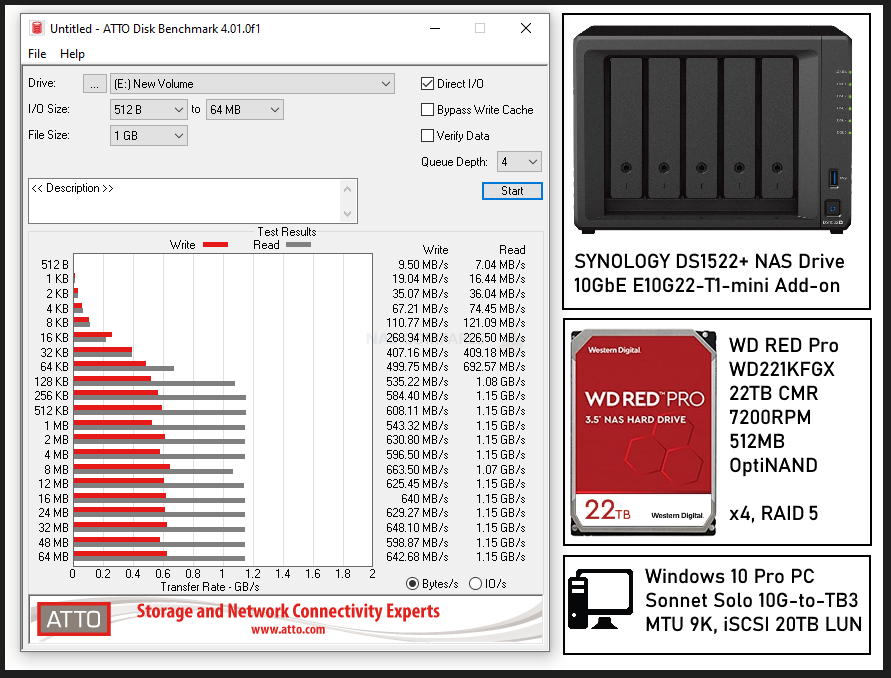
The R1600 CPU is a good choice of processor for file handling and simultaneous tasks, as is the 8GB of memory that this system arrives with, plus the potential to ramp it up to 32GB. After that though, the desirability of this system to home users and multimedia users is a little less compelling and with such a large audience of users who look at NAS for their media streaming, the DS1522+ not featuring a more graphically enabled chip will leave them somewhat underwhelmed. Bottom line, the DS1522+ is a solid and full DSM7 supporting system here and you cannot fault the design, internal/external performance and ease of use of this Synology NAS. However, there will always be users wondering why this NAS never arrived with an Intel chip.
 DEAL WATCH – Is It On Offer Right Now? DEAL WATCH – Is It On Offer Right Now?12V DC Power Cord for Synology NAS DiskStation DS1522+DS923+ DS1520+ DS418 DS420 Amazon  UK 20.36 OFF (WAS 71) [LINK] UK 20.36 OFF (WAS 71) [LINK] These Offers are Checked Daily
|
Best Value 6-Bay NAS – The Asustor Flashstor 6 NVMe Flash Server
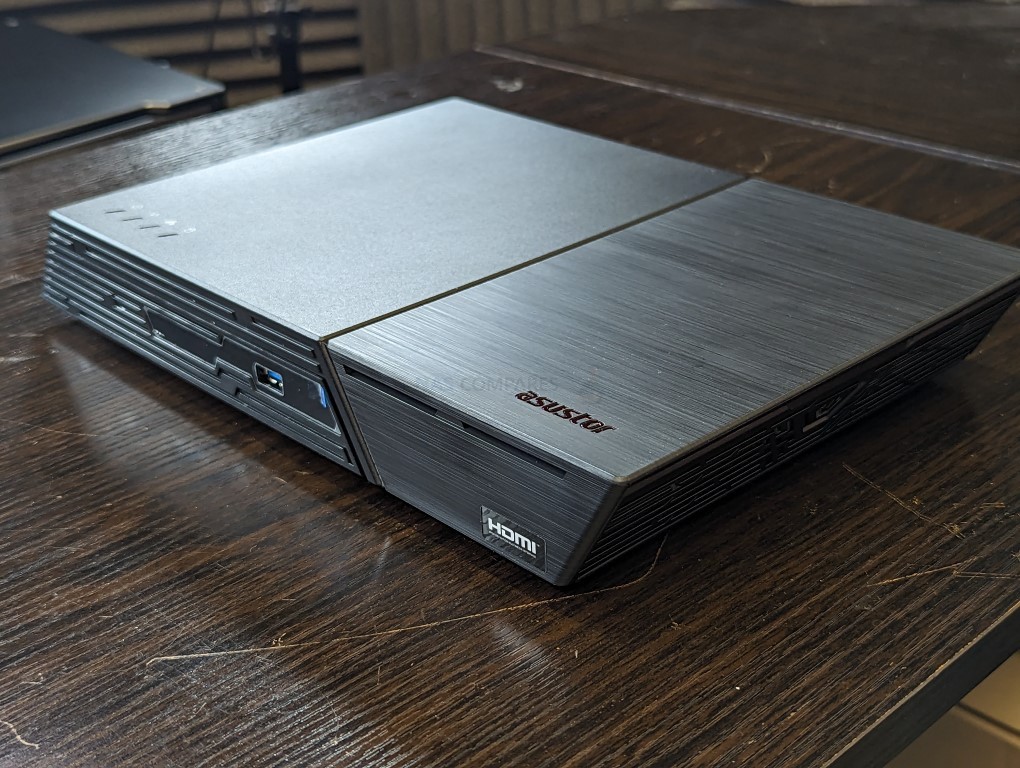
0-48TB, 6x M.2 NVMe 3×1 Bays, Supports 2x USB Expansions, N5105/N5095 4-Core CPU, 4-16GB DDR4 (non-ECC) Memory, 2x 2.5Gbe Port, 3yr Warranty (10GbE version = FS6712X Flashstor 12 Pro for $799 HERE)
Current Price/Availability on Amazon – $499
Hardware Review – LINK
YouTube Video Review – Watch (Flashstor 12 Pro Review HERE)
What I said in my review June ’23:
I cannot stress enough how impressed I am that the Flashstor 6 and Flashstor 12 Pro are priced at $499 and $860, respectively, given the level of hardware on offer here. These are by no means enterprise-grade NAS server solutions, nor should they be thought of as such. However, given the cost of typical fully featured 4x HDD solutions from their competitors and the brand themselves, which often start at $550 and above, it is quite remarkable that the six M.2 SSD system with comparable internal hardware comes in at $499. As long as a user keeps their expectations in line with what this cost versus its capabilities, it’s really tough to argue with the price point that these two devices have arrived at on the market. The Asustor FS6712X Flashstor 12 Pro NAS presents a unique offering in the NAS market, leveraging NVMe technology to provide high-capacity, ultra-high-performance storage. The device’s design, with its rhombus-shaped enclosure and twelve M.2 NVMe slots, sets it apart from traditional NAS devices and offers a sleek and modern aesthetic.
The tool-less drive installation mechanism makes it easy to set up and expand the storage capacity. However, there are some considerations to keep in mind. The limited number of PCIe lanes provided by the Intel Celeron N5105 processor may restrict the performance of high-speed NVMe drives. The single 10GbE LAN port also presents a potential network bottleneck, limiting the device’s overall network performance. Users seeking maximum performance and network throughput may find alternative solutions better suited to their needs. Despite these limitations, the FS6712X shines as a storage solution for users who prioritize high-capacity storage, quiet operation, and low power consumption. The device’s ability to directly output 4K video, along with its range of Asustor-approved apps, makes it an excellent choice for media distribution and presentation. In terms of pricing, the FS6712X comes with a price tag of $850+. While this may appear high at first glance, it is comparable to 8 bay drive NAS SATA devices and many of those do not even include NVMe slots or 10GbE. Users looking for a more cost-effective option can consider the Flashstor 6, which offers half the number of slots and 2x 2.5GbE enabled ports for $499.
As the cost of flash modules continues to drop, and larger capacity drives become available all the way up to 8TB (even without QLC), the FS6712X provides an attractive solution for those seeking high-capacity and high-performance NAS storage. While some underlying performance relativity by the end user needs to be factored in and hardware limitations exist thanks to the use of that Celeron to remain budget-friendly, the FS6712X is a tremendously smart move by Asustor. A well-designed NAS that presents a much more confident solution demonstrating the benefits of NVMe-focused NAS devices to an audience that would have assumed such things are way, WAY outside the realms of affordability!
 DEAL WATCH – Is It On Offer Right Now? DEAL WATCH – Is It On Offer Right Now?Asustor 6x M.2 NVMe Flashstor 6 Amazon  USA Down to $404.99 (9% OFF) [LINK] USA Down to $404.99 (9% OFF) [LINK] Asustor FLASHSTOR 12 Pro Gen2 FS6812X, 12 Bay All M.2 SSD NAS, AMD Ryzen Quad Co Amazon  UK 171.86 OFF (WAS 1339) [LINK] UK 171.86 OFF (WAS 1339) [LINK] These Offers are Checked Daily
|
Bet Hardware 6-Bay NAS – QNAP Triple Tier TS-855X Server
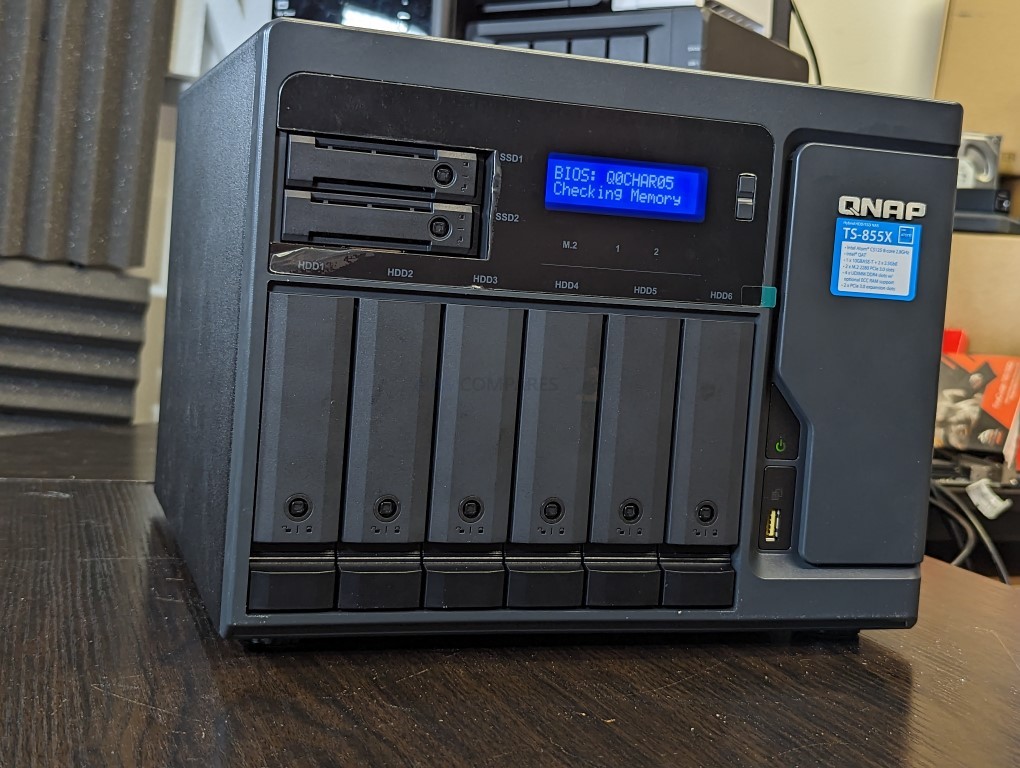
0-130TB SATA HDDs, 0-16TB SATA SSDs, 0-16TB 3×4 M.2 NVMes, 6+2+2-Bays, C5125 8-Core Atom CPU, 8-128GB Memory, 1x 10GbE and 2x 2.5GbE Ports, 2x PCIe 3×8 Slots, 3yr Warranty
Current Price/Availability on Amazon – $1300-1500
Hardware Review – LINK
YouTube Video Review – Watch
What I said in my review June ’23:
I have to say, I am INSANELY impressed by how much bang for buck is being included in the TS-855X and although it is not the most powerful device in the market (arguably intentionally, as it favours the more affordable Atom over a xeon), it is a sensible workhorse of a NAS. On the positive side, the QNAP TS-855X NAS comes with numerous strong selling points. The device offers large storage potential, especially with the ZFS file system, making it a powerhouse for data management. The choice of CPU is also sensible, providing a balance between performance and cost-effectiveness. The inclusion of the QTier tool is particularly appealing, adding a layer of efficiency to the storage management. Another big plus is the user-friendly GUI for ZFS in QuTS, making it accessible for users with varying levels of technical expertise. The three-tier storage options and support of ECC memory with a maximum of 128GB further enhance the device’s versatility and potential. Moreover, the TS-855X provides a wealth of expansion options and comes with 8 camera licenses with QVR Pro/QTS. The well-ventilated design contributes to thermal efficiency, ensuring optimal performance, while its support for the latest 22TB and soon-to-be-released 24TB drives future-proofs your investment.
However, the TS-855X is not without its drawbacks. While the two SATA SSD bays provide extra storage options, they would have been better if they were U.2 slots, which offer faster speeds. Although the device supports ECC memory, the initial 8GB memory in the base model is non-ECC, which might not be optimal for all ZFS services. The memory capacity might also be somewhat low for users with intensive data needs. Furthermore, the software can sometimes be inconsistent under heavy use, and it has a steeper learning curve compared to competitors like Synology. Finally, the pricing structure for the TS-855X is a mixed bag. While some users may find the cost reasonable given its features, others might feel it’s a bit steep for what it offers. Therefore, while the QNAP TS-855X NAS offers a plethora of attractive features and strong performance, it’s worth keeping in mind that a spend of a few hundred more dollars opens the door to Intel Core-powered NAS in the TVS-hx74 series or more powerful Xeon triple-tiered systems such as the TVS-h1288X. If you want power, but on a budget, it’s a great choice!
 DEAL WATCH – Is It On Offer Right Now? DEAL WATCH – Is It On Offer Right Now?These Offers are Checked Daily
|
Need More Help Choosing the right NAS?
Choosing the right data storage solution for your needs can be very intimidating and it’s never too late to ask for help. With options ranging from NAS to DAS, Thunderbolt to SAS and connecting everything up so you can access all your lovely data at the touch of a button can be a lot simpler than you think. If you want some tips, guidance or help with everything from compatibility to suitability of a solution for you, why not drop me a message below and I will get back to you as soon as possible with what you should go for, its suitability and the best place to get it. This service is designed without profit in mind and in order to help you with your data storage needs, so I will try to answer your questions as soon as possible. Just enter in a few details of your setup, storage requirements and (in the case of buying a new solution) your budget – then me and Eddie the Web guy can help you with your question. This is a completely free service, is NOT provided with profit in mind and is manned by two humans (no bots, no automated replies, etc). Assistance might take an extra day or two (the service gets a lot of visitors) but we do try to answer every message. If you want to support this service, you can find out how to donate HERE. Otherwise, you can still just message us for free advice anyway!
📧 SUBSCRIBE TO OUR NEWSLETTER 🔔
🔒 Join Inner Circle
Get an alert every time something gets added to this specific article!
This description contains links to Amazon. These links will take you to some of the products mentioned in today's content. As an Amazon Associate, I earn from qualifying purchases. Visit the NASCompares Deal Finder to find the best place to buy this device in your region, based on Service, Support and Reputation - Just Search for your NAS Drive in the Box Below
Need Advice on Data Storage from an Expert?
Finally, for free advice about your setup, just leave a message in the comments below here at NASCompares.com and we will get back to you. Need Help?
Where possible (and where appropriate) please provide as much information about your requirements, as then I can arrange the best answer and solution to your needs. Do not worry about your e-mail address being required, it will NOT be used in a mailing list and will NOT be used in any way other than to respond to your enquiry.
Need Help?
Where possible (and where appropriate) please provide as much information about your requirements, as then I can arrange the best answer and solution to your needs. Do not worry about your e-mail address being required, it will NOT be used in a mailing list and will NOT be used in any way other than to respond to your enquiry.

|
 |
Is It OK to Buy a Used NAS? (RAID Room)
Do You NEED 5GbE NAS? (Or Should You Skip Ahead to 10GbE)
UGREEN DXP4800 PRO NAS Review
Minisforum G7 Pro Review
CAN YOU TRUST UNIFI REVIEWS? Let's Discuss Reviewing UniFi...
WHERE IS SYNOLOGY DSM 8? and DO YOU CARE? (RAID Room)
Access content via Patreon or KO-FI
Discover more from NAS Compares
Subscribe to get the latest posts sent to your email.



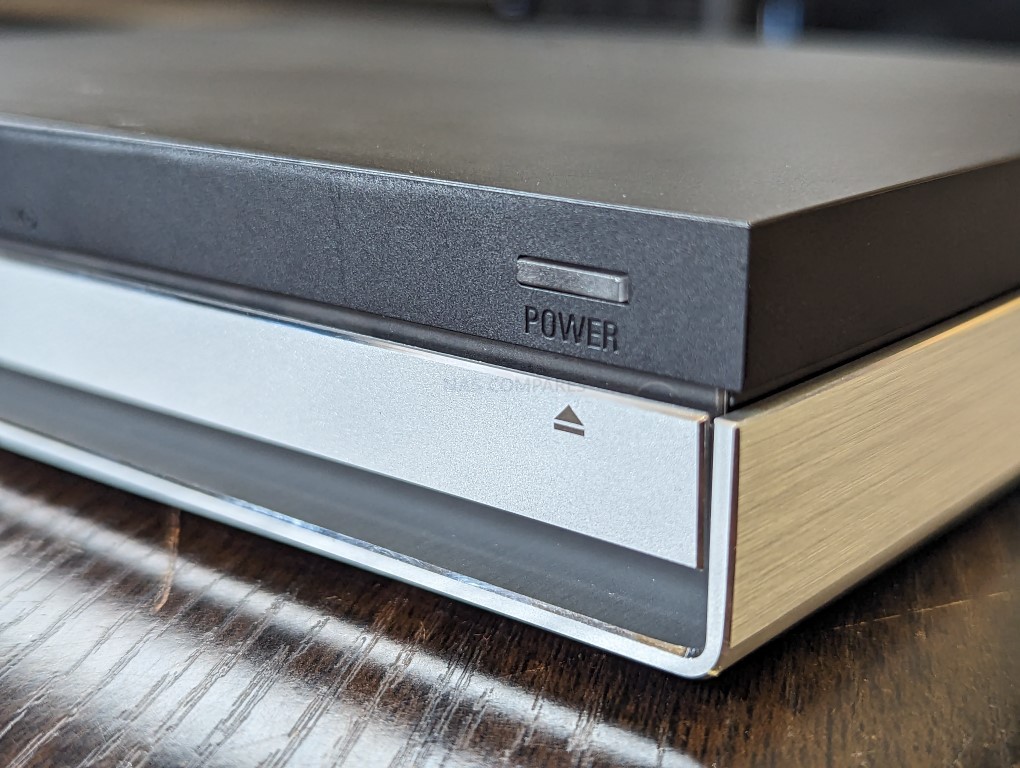
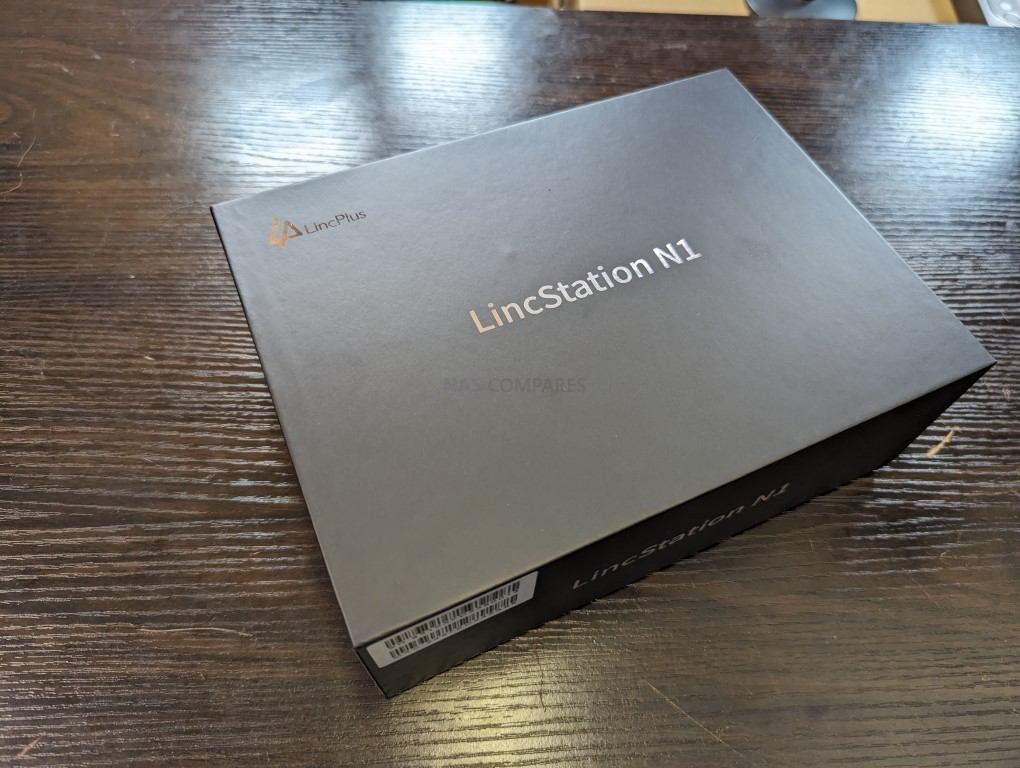
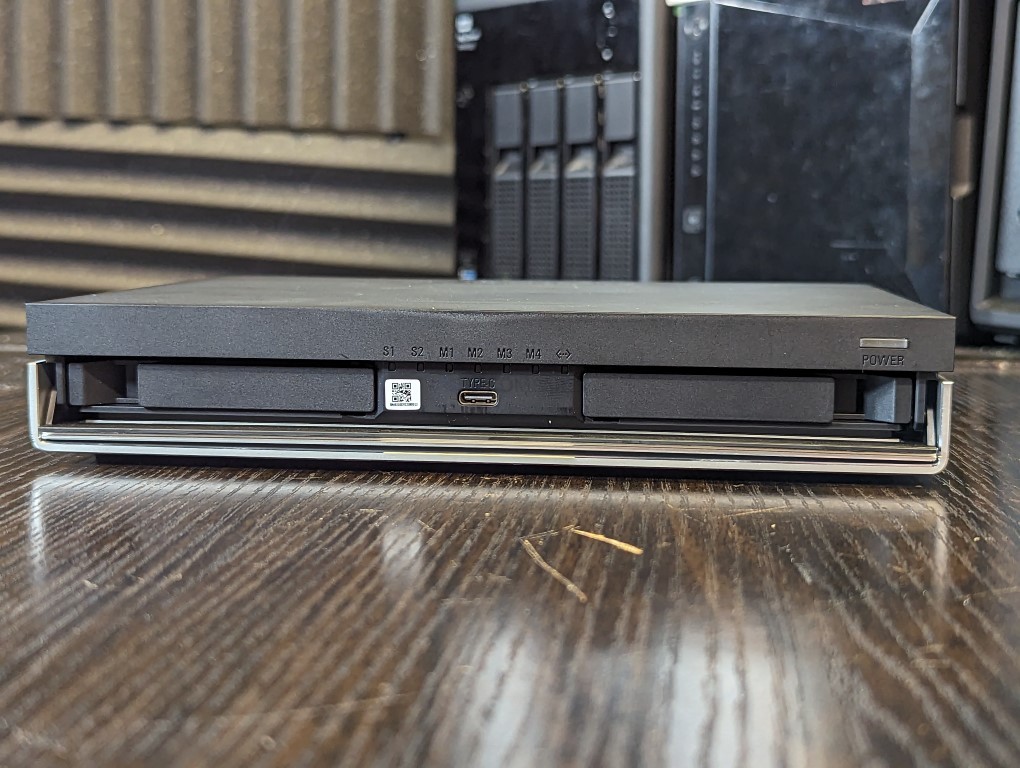
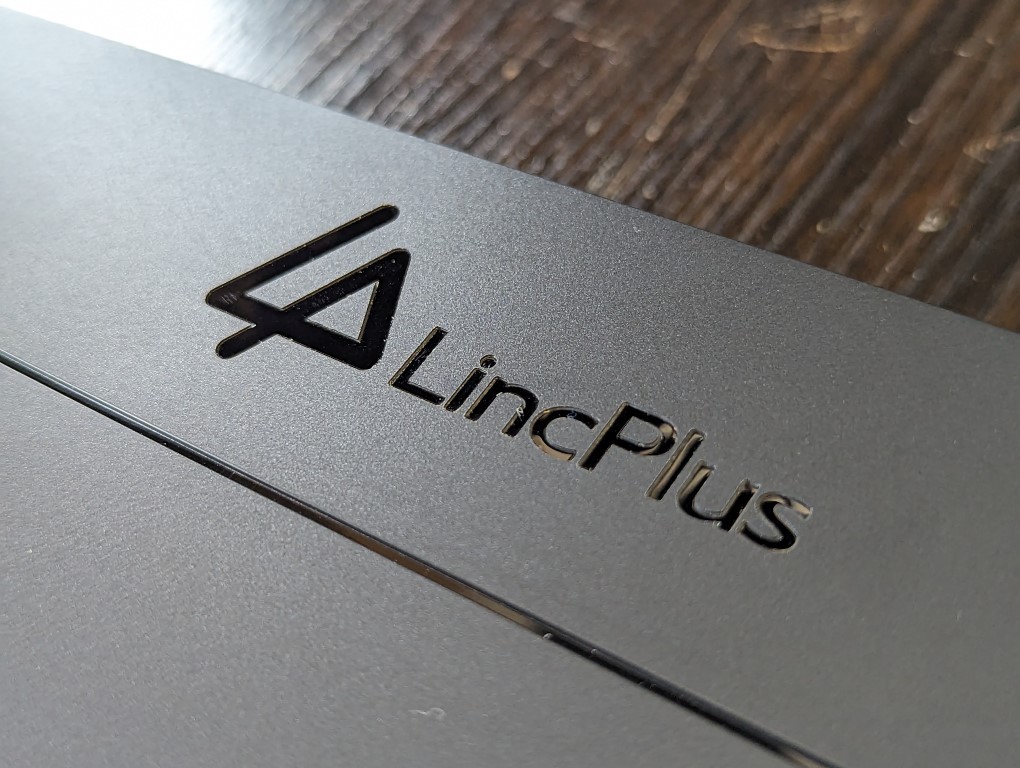
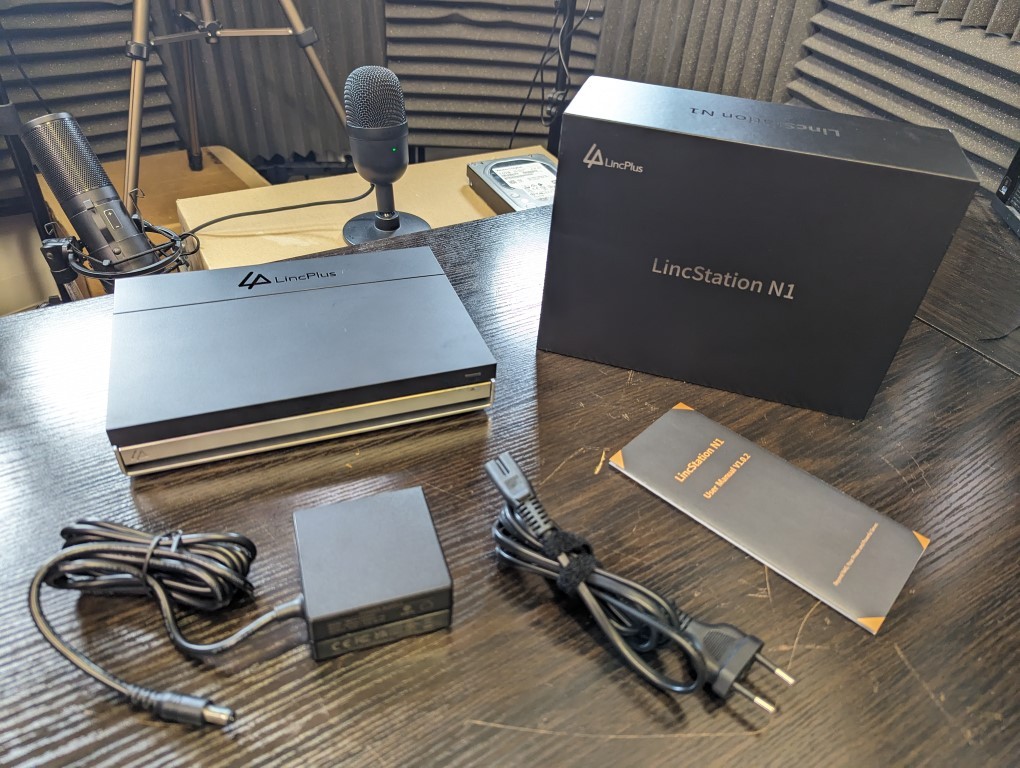
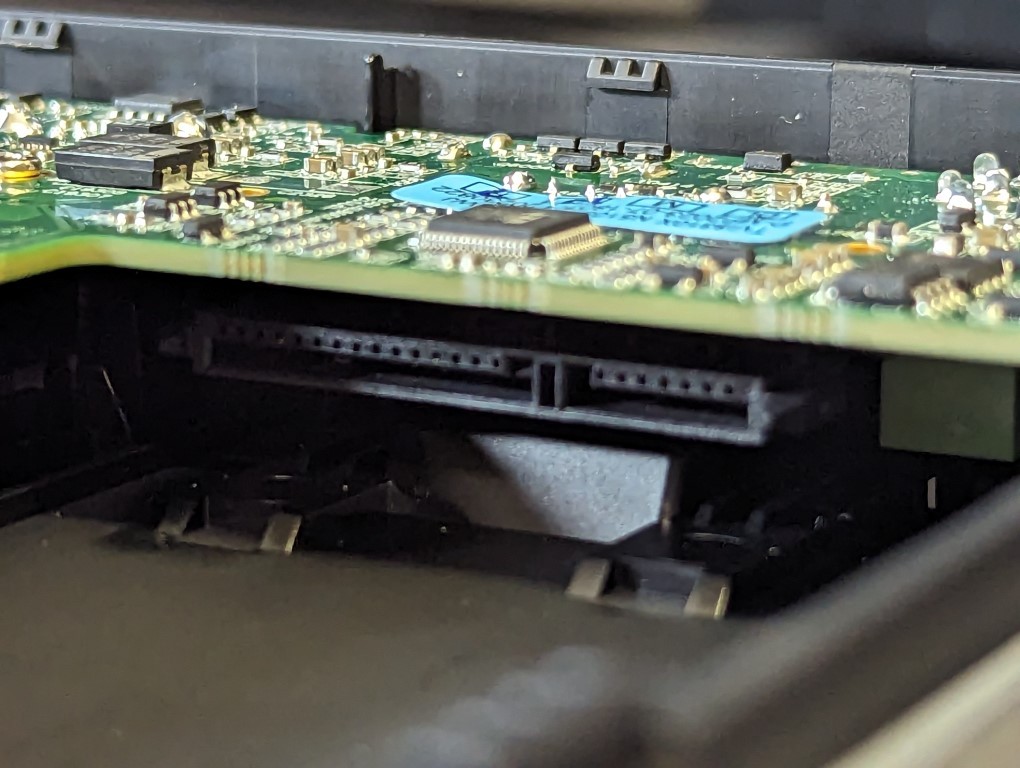
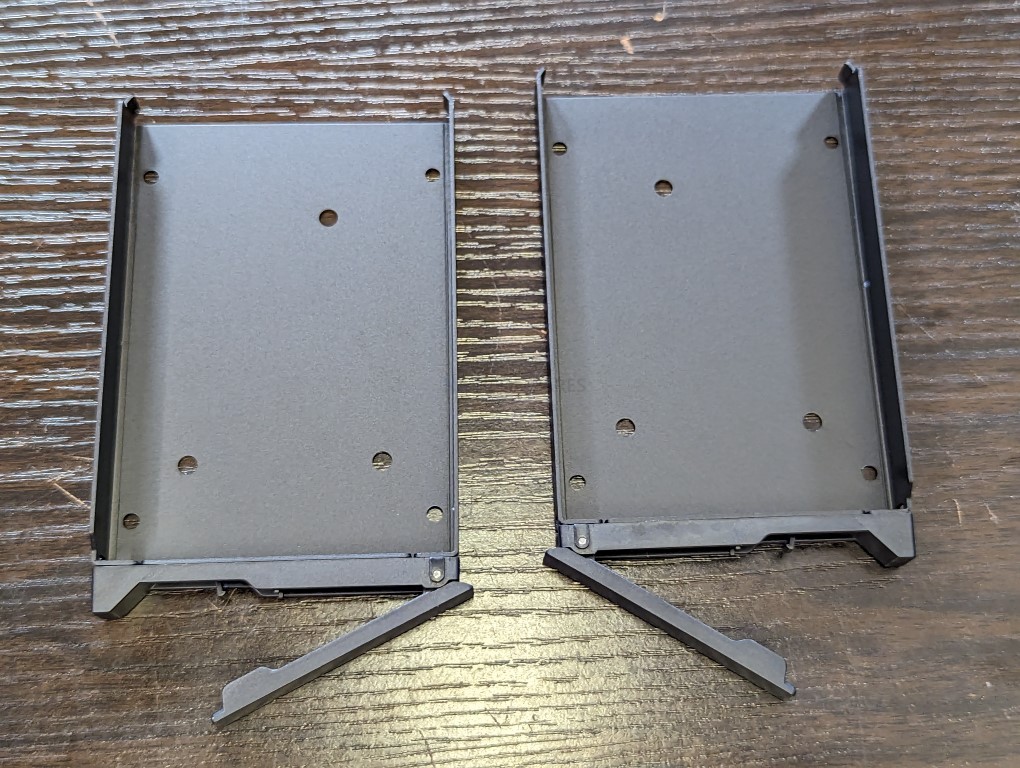
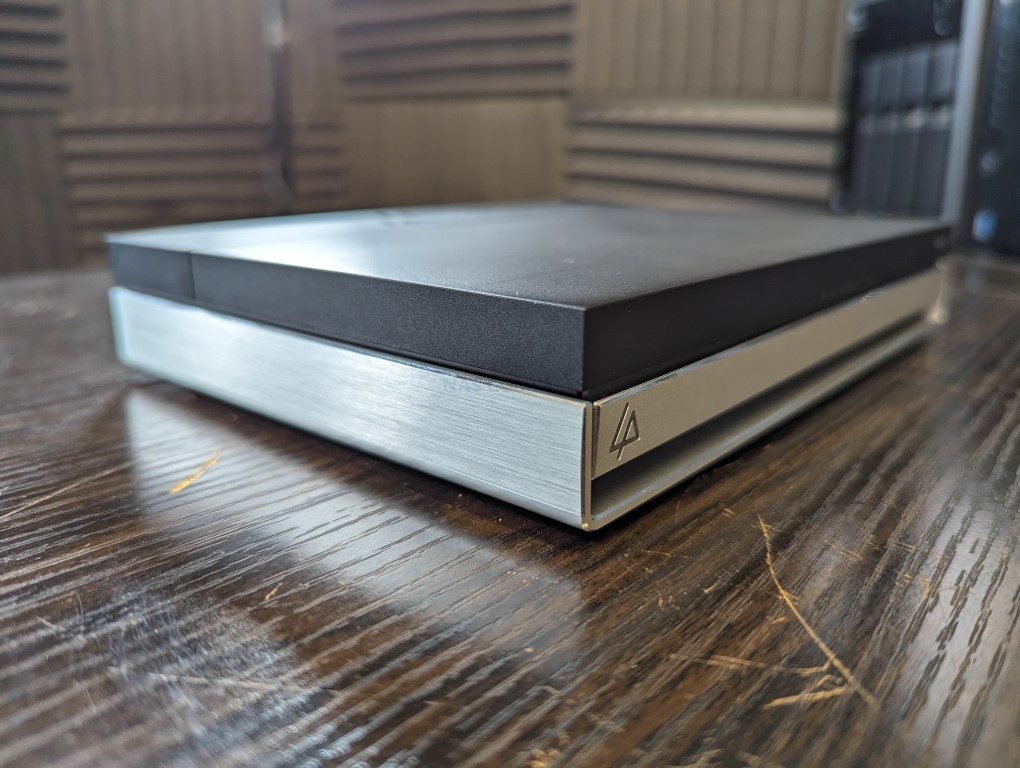
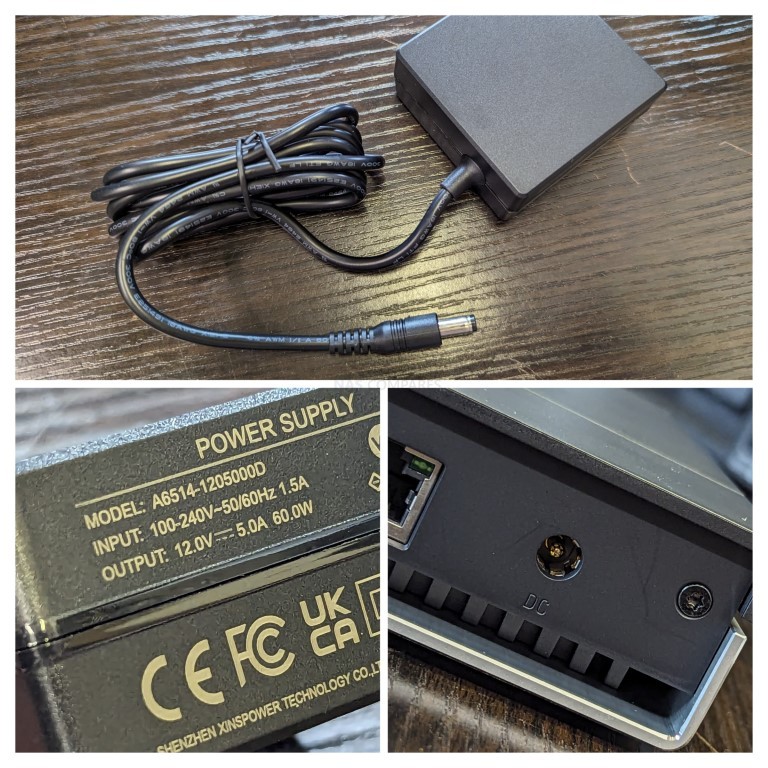
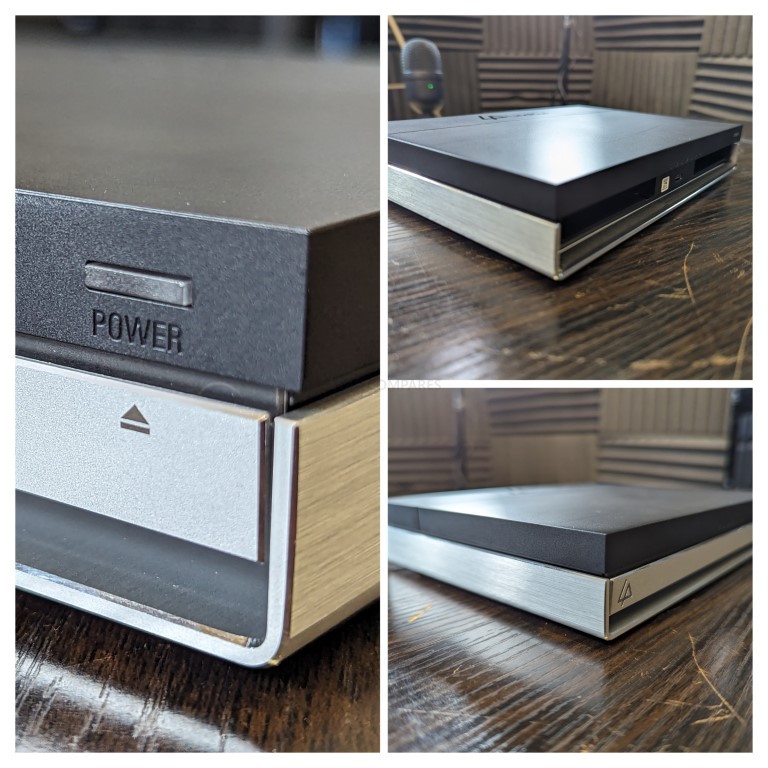
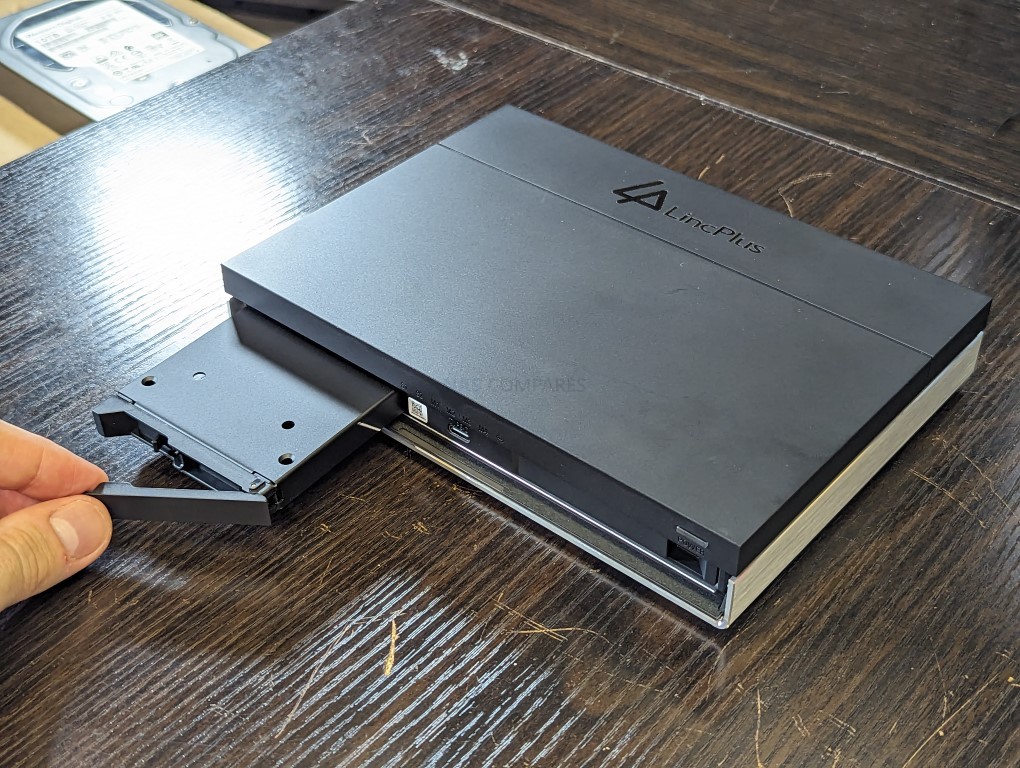
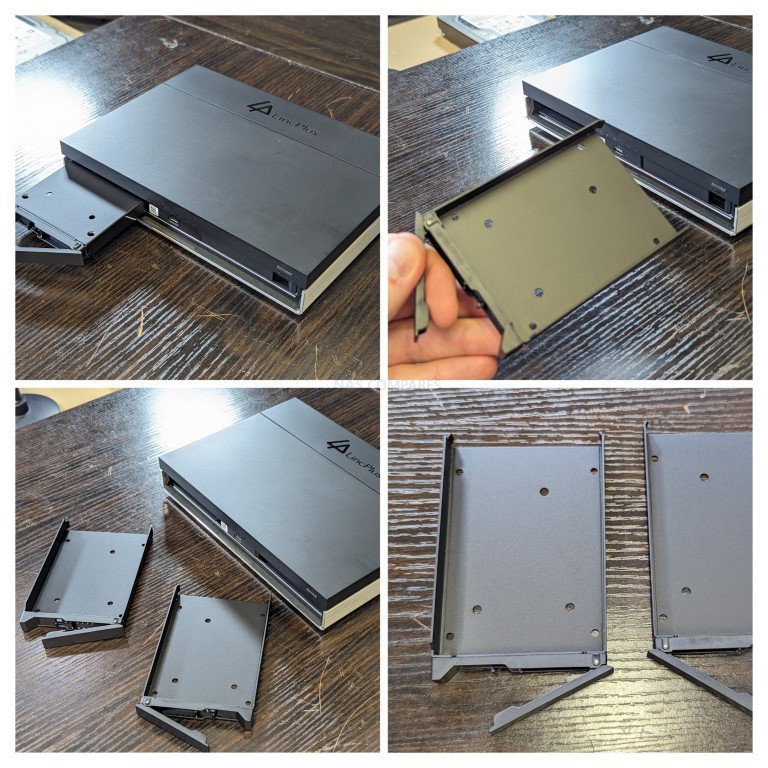
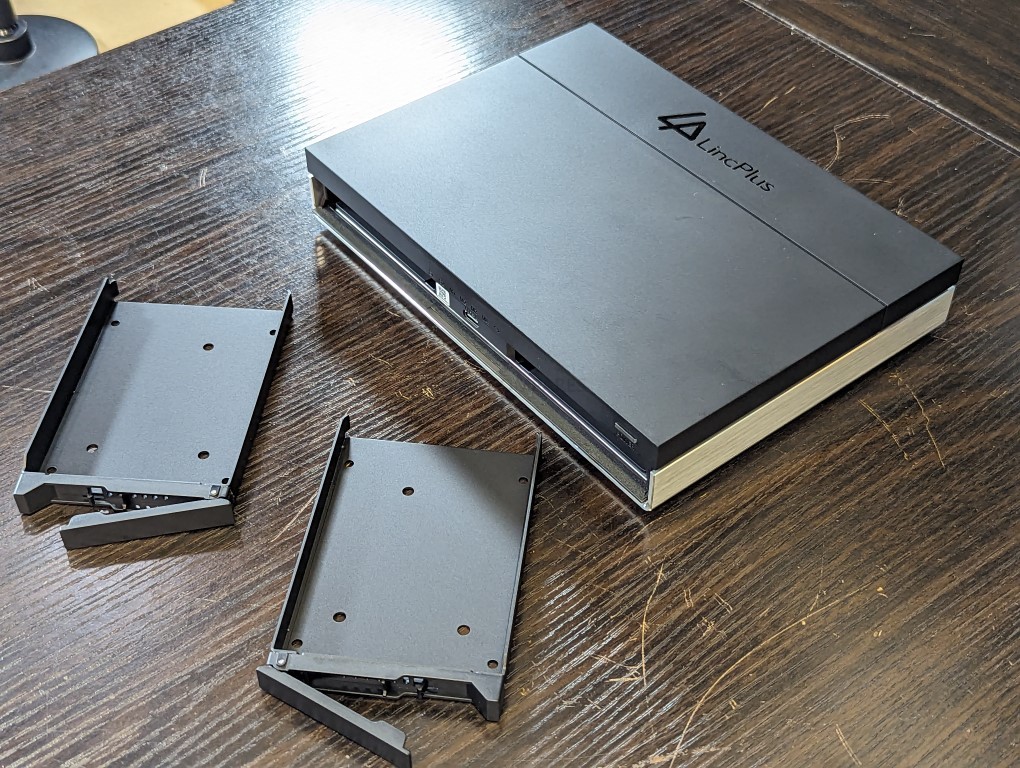
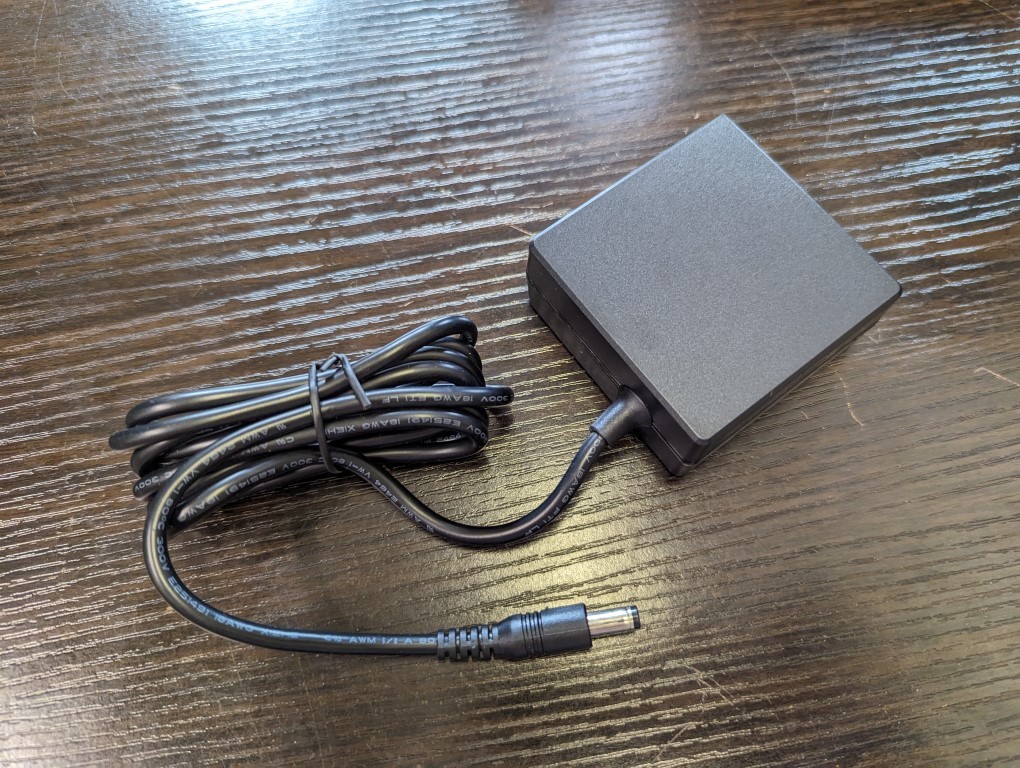
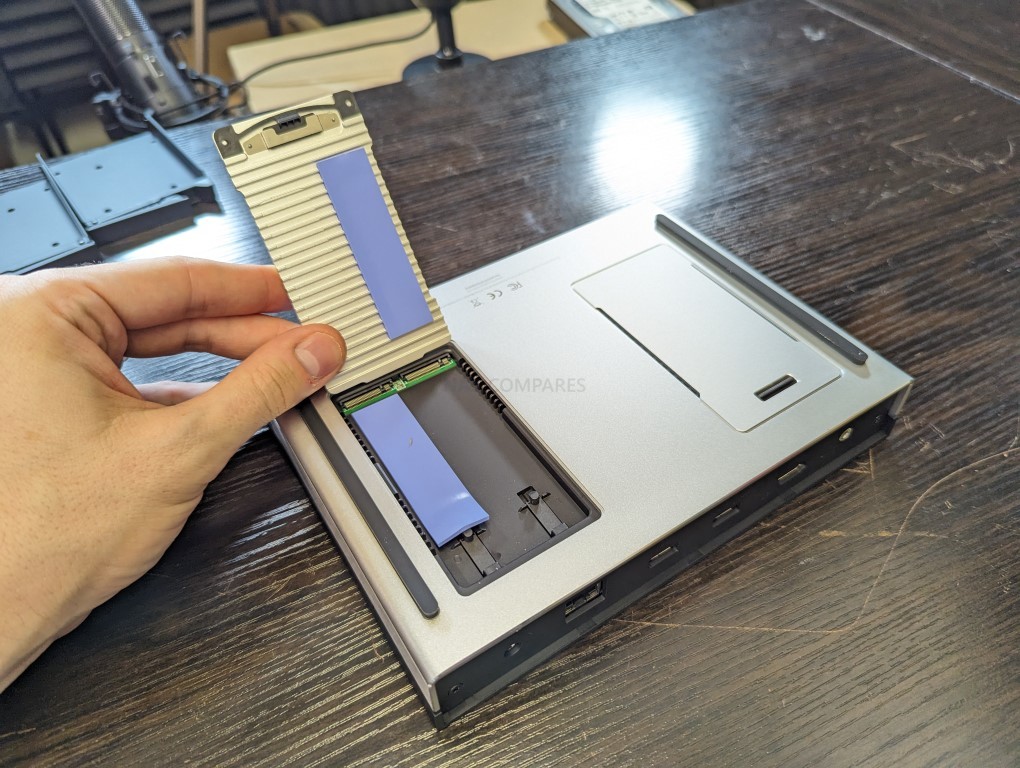
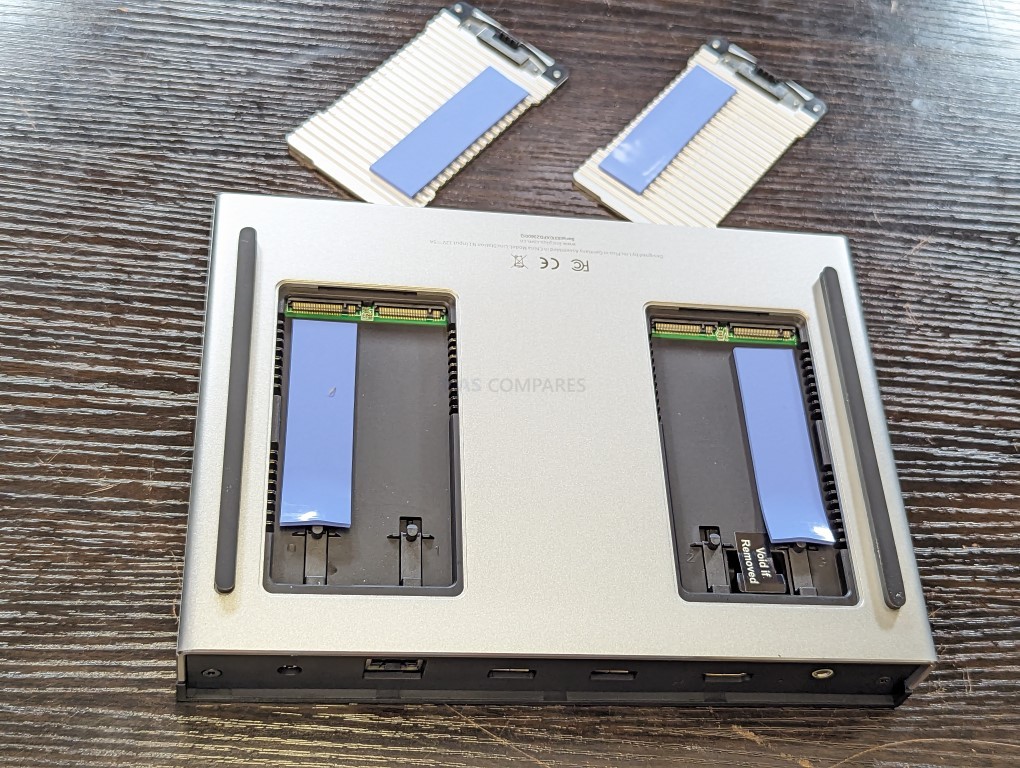
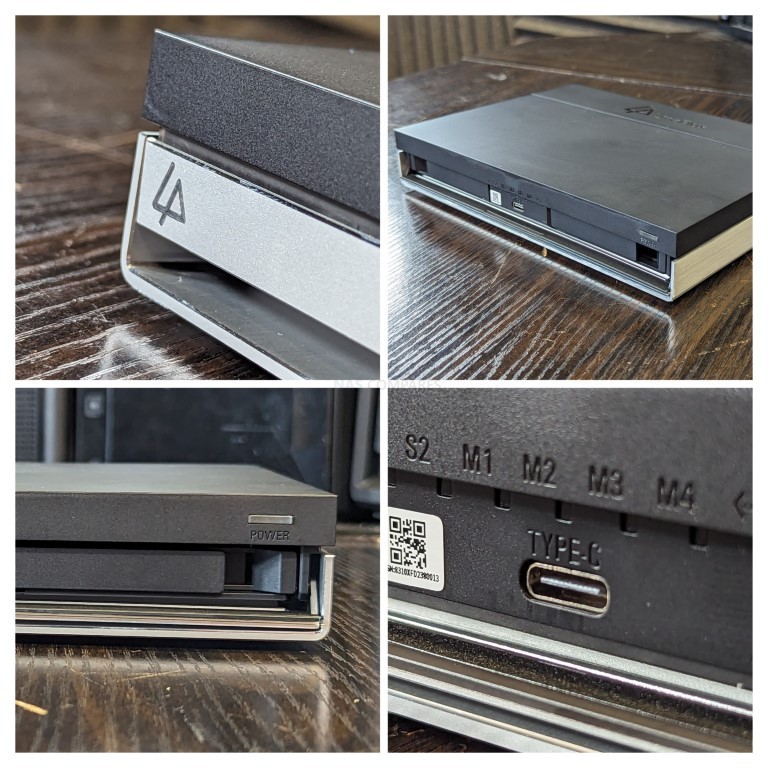
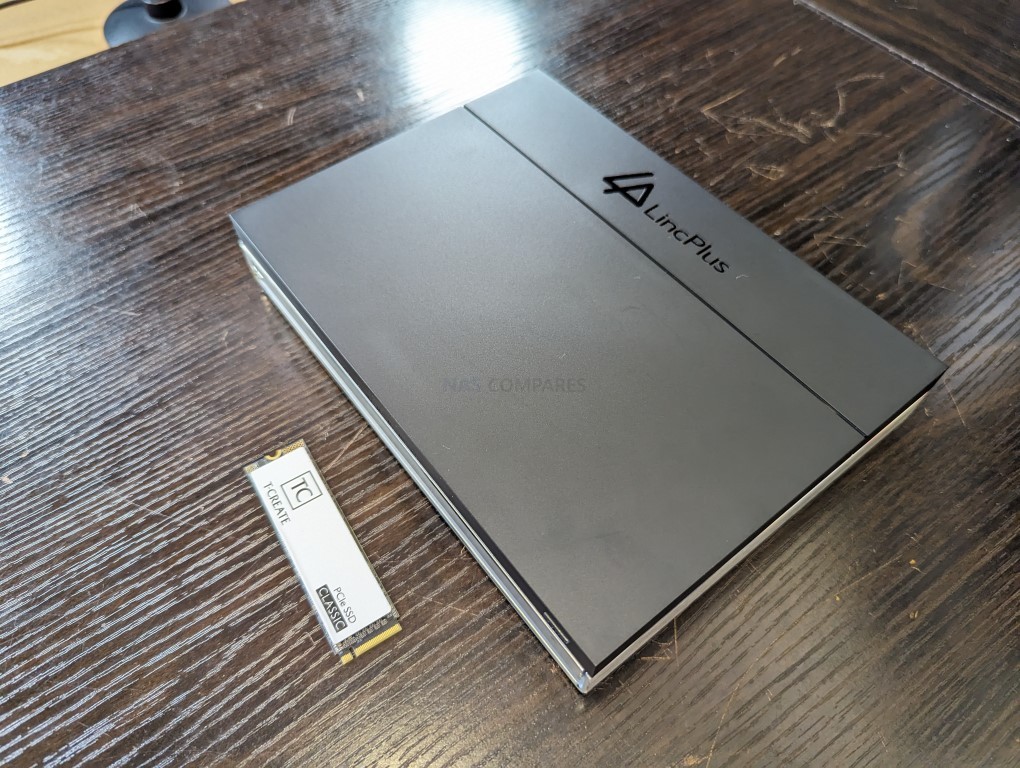
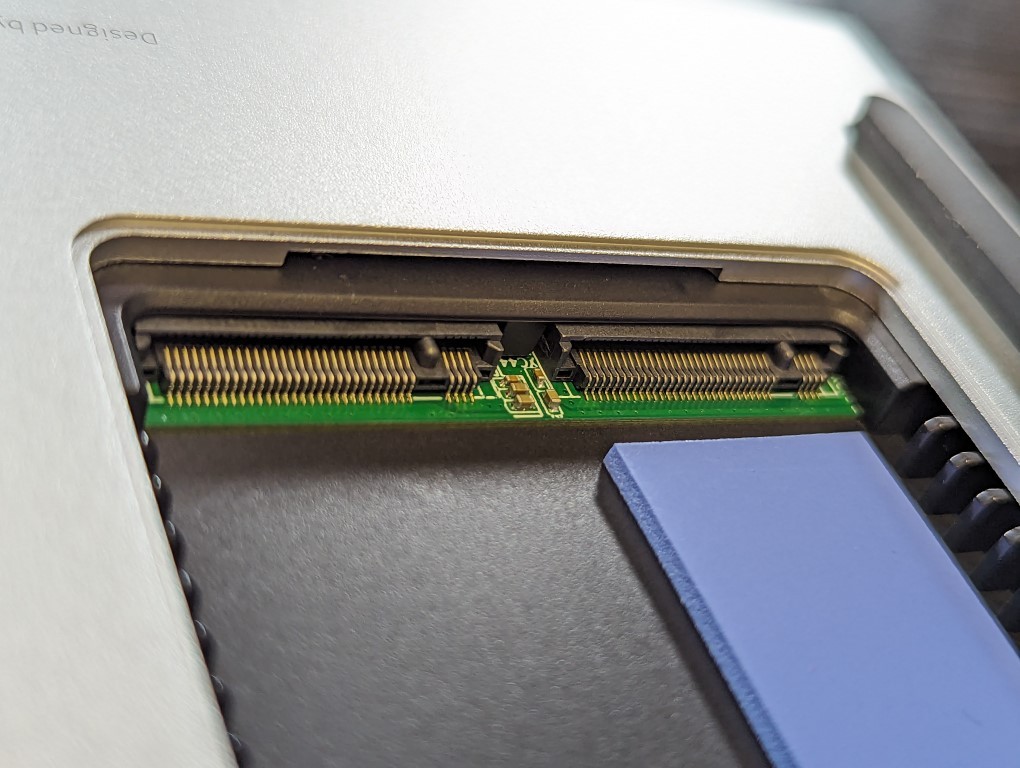
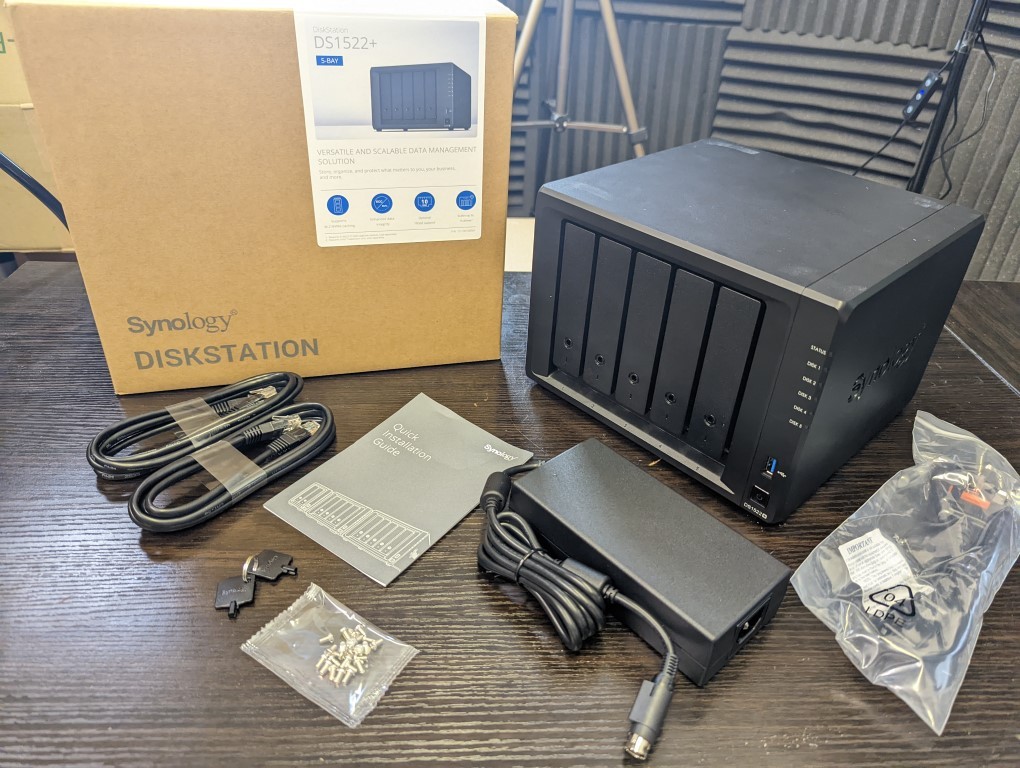
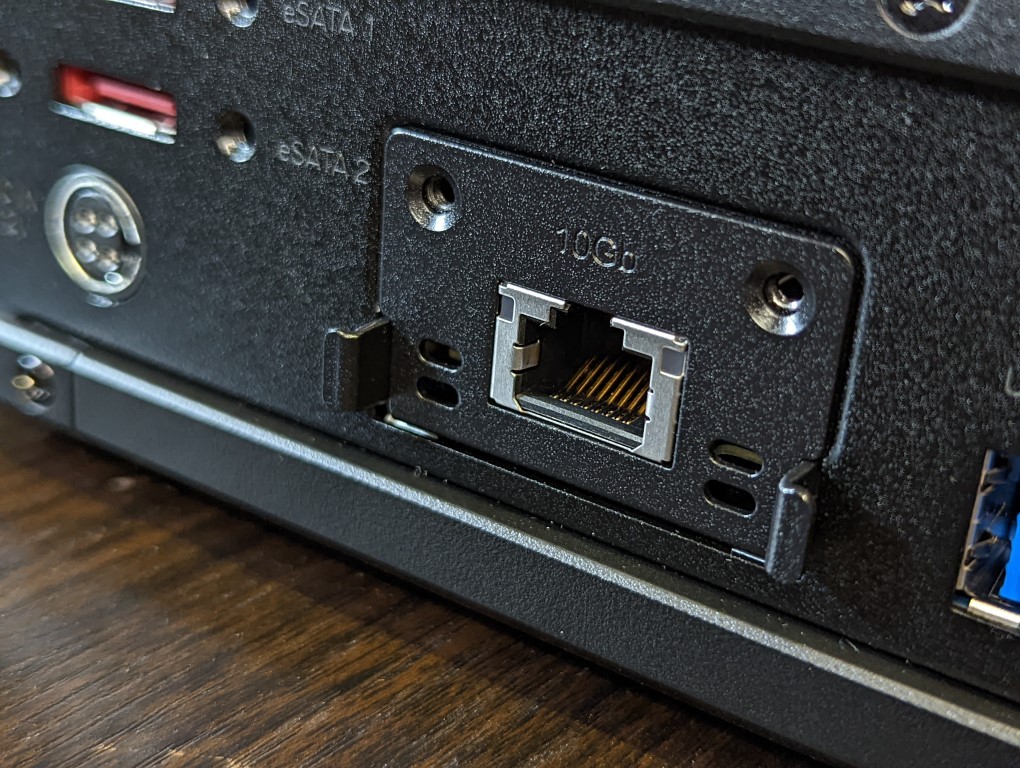
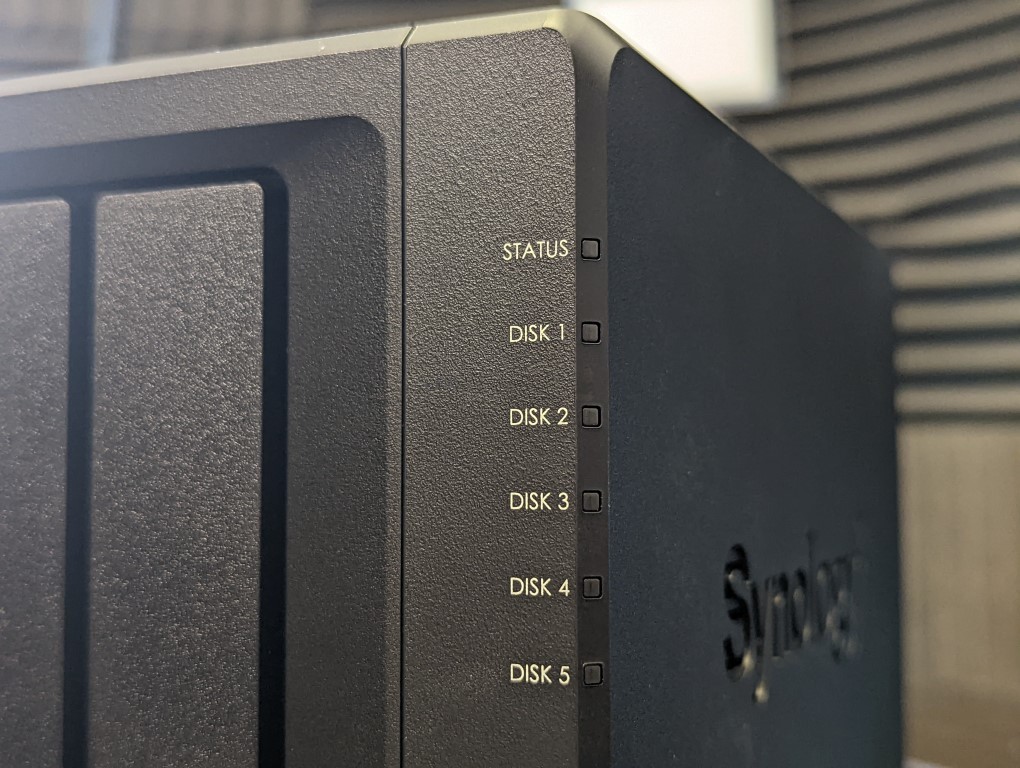
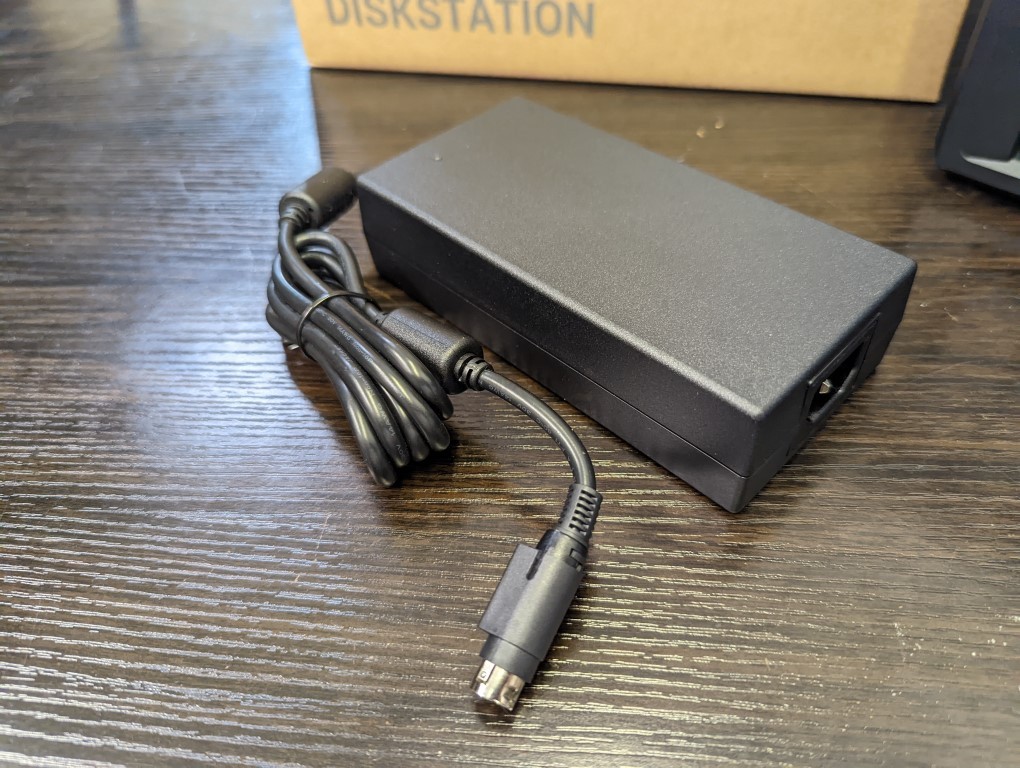
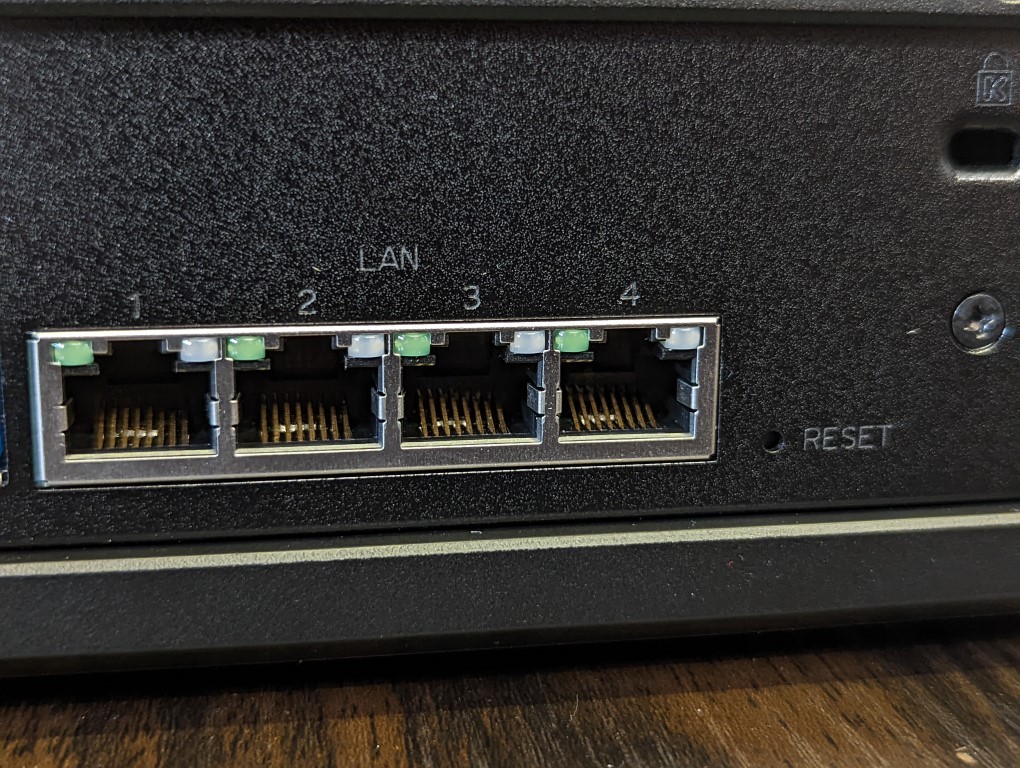
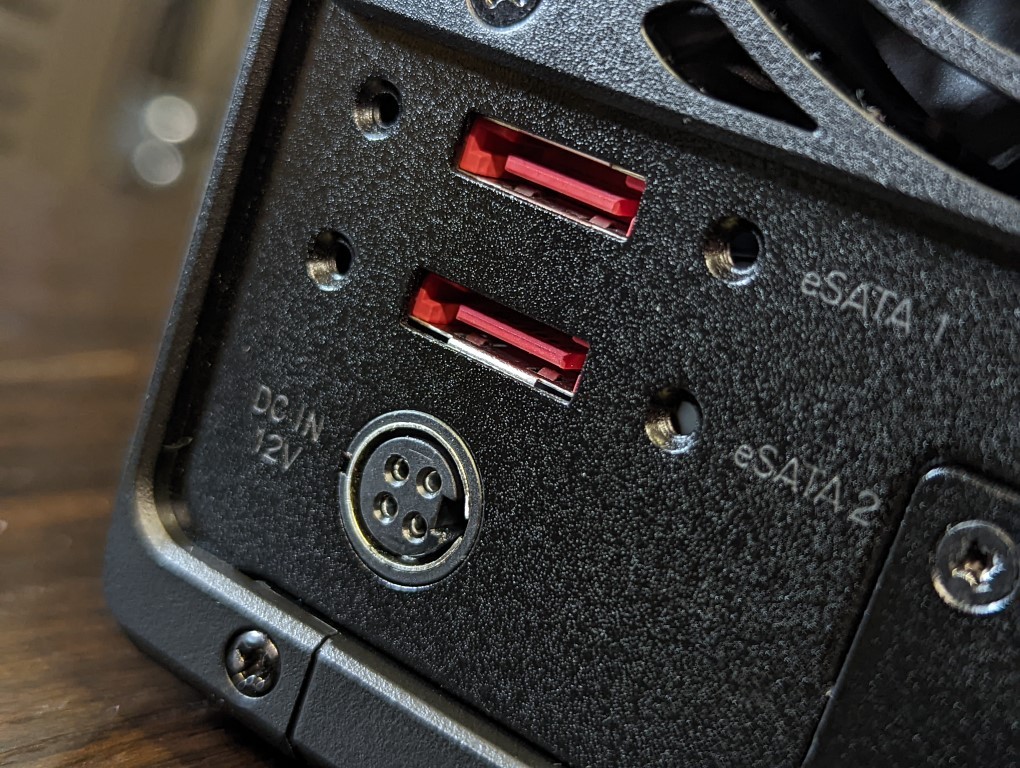
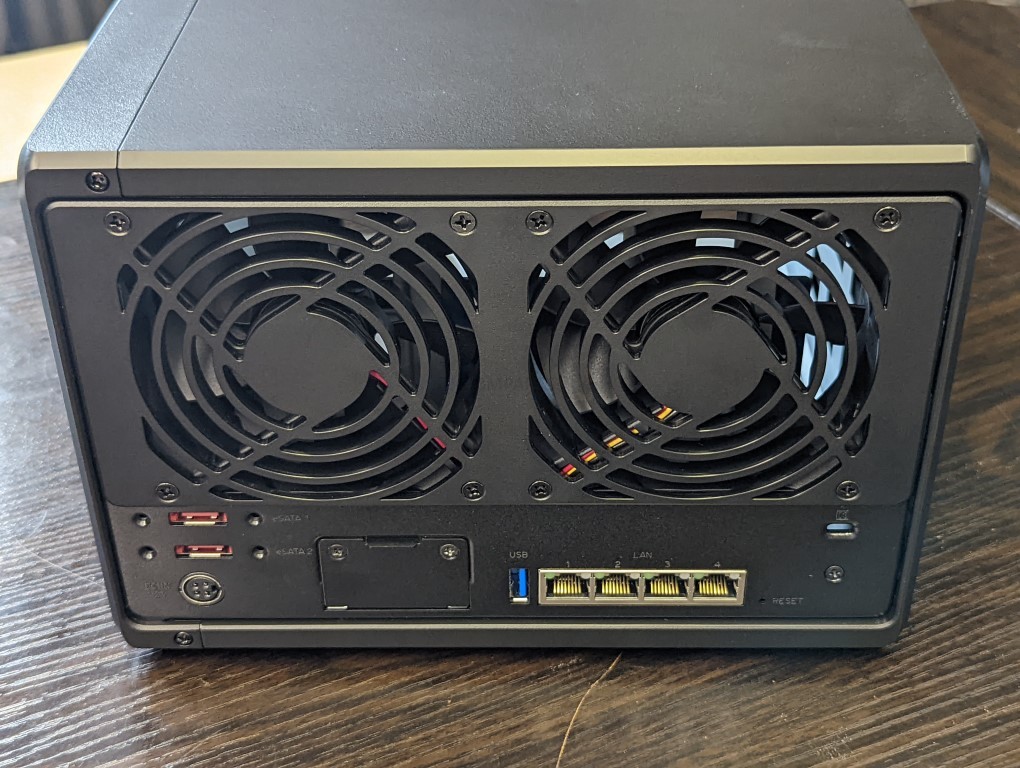
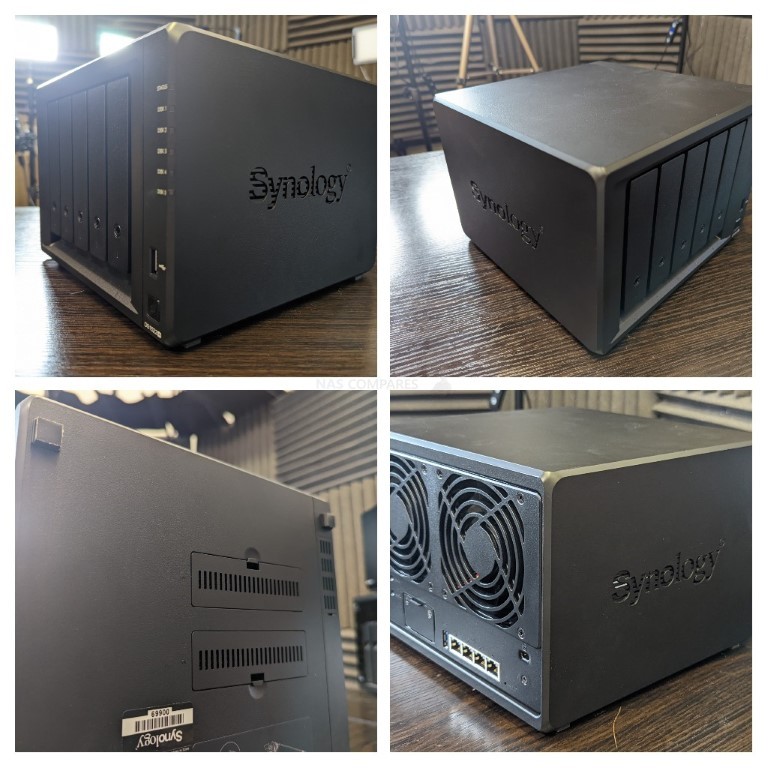
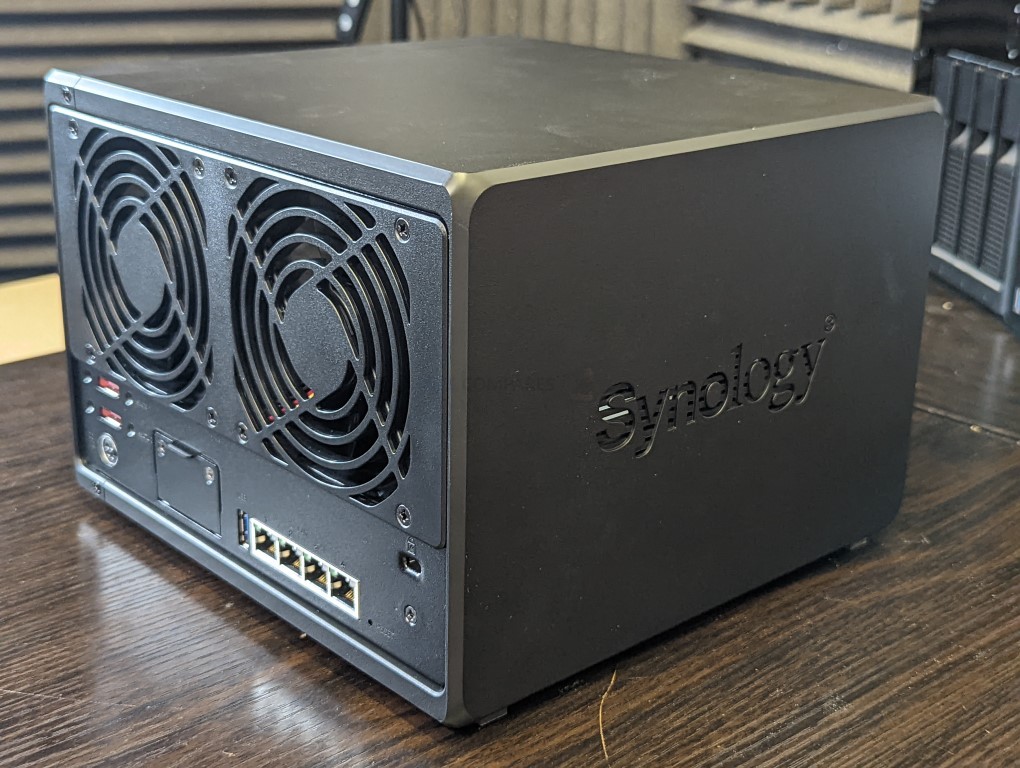
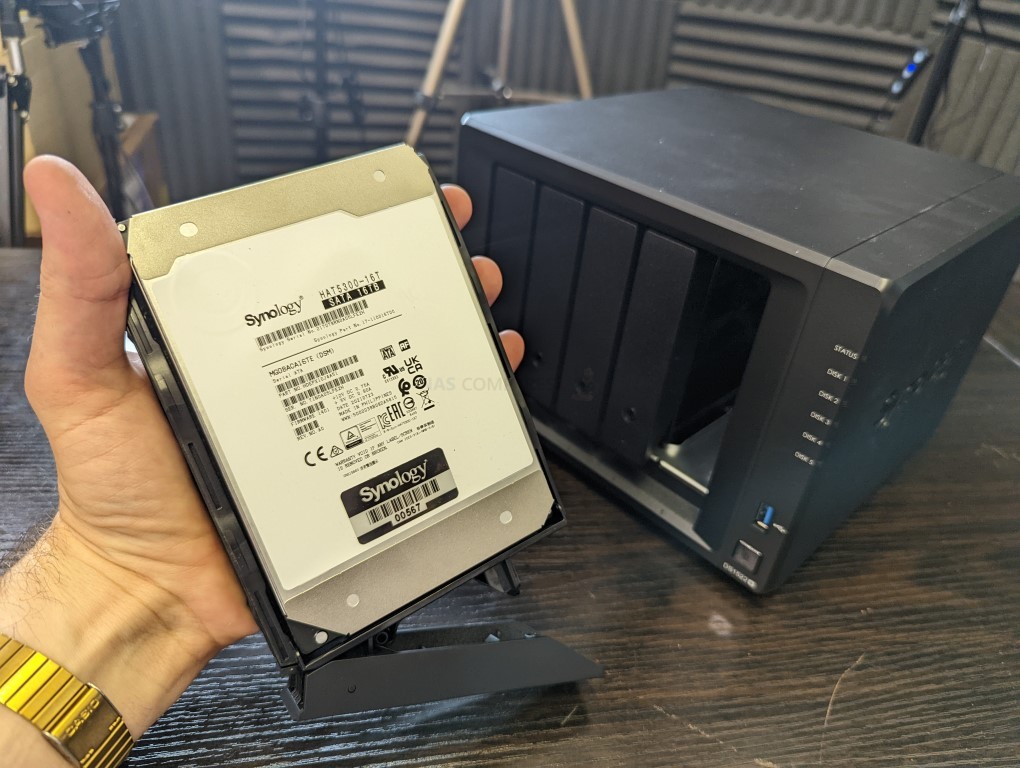
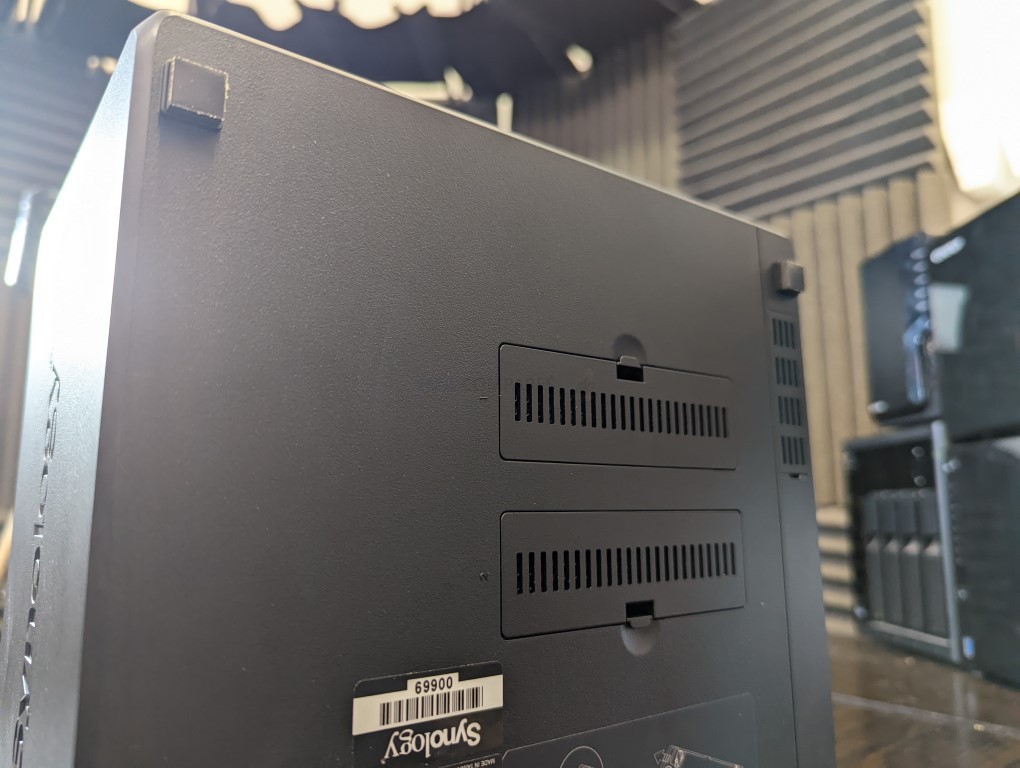
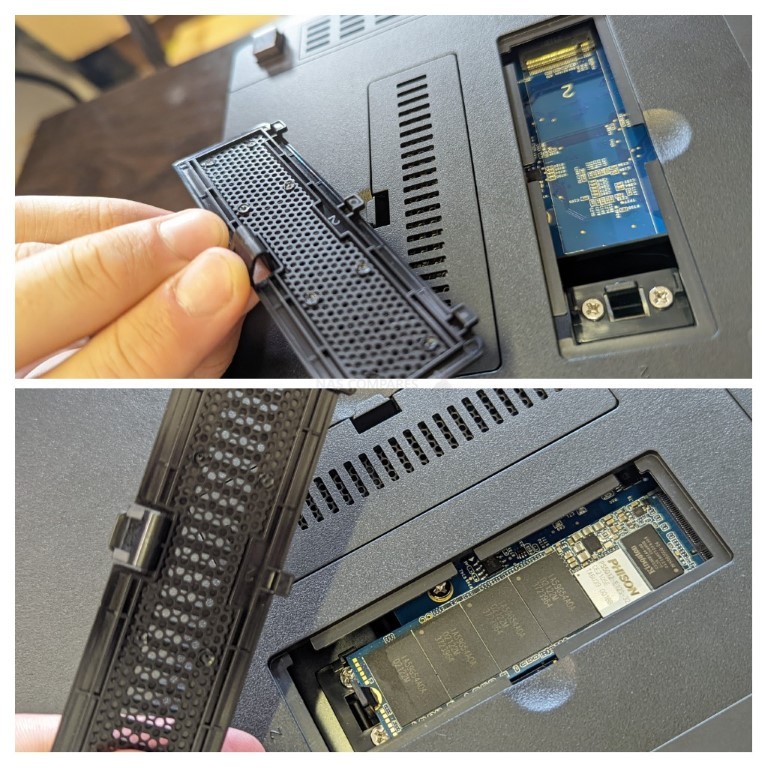
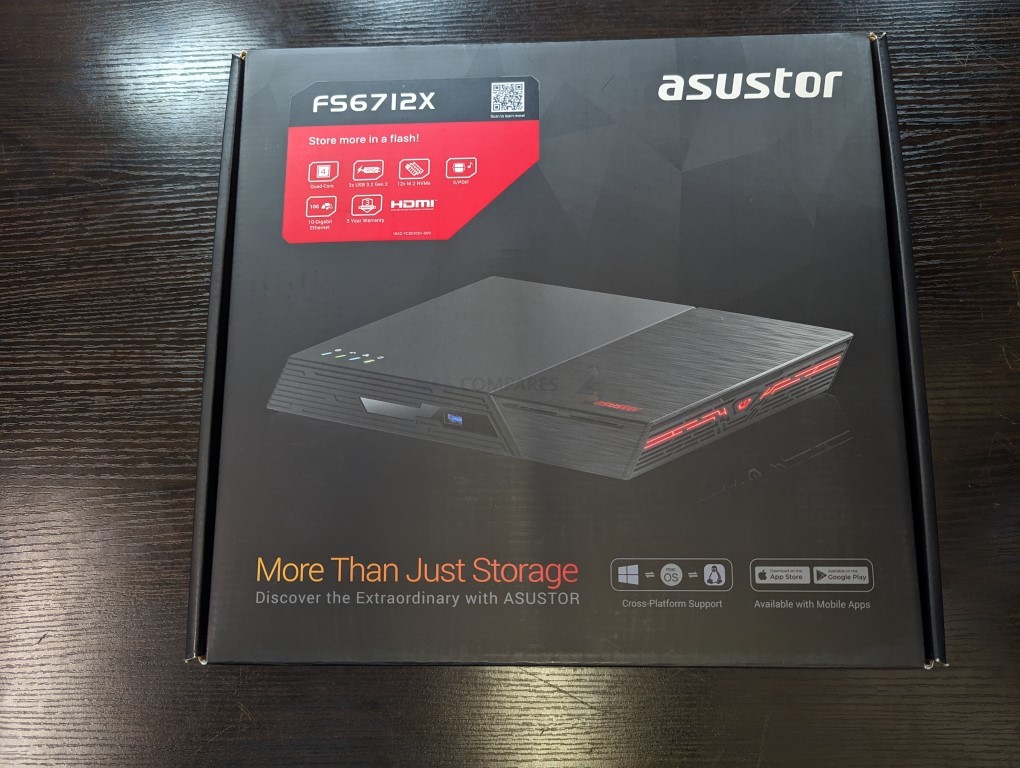
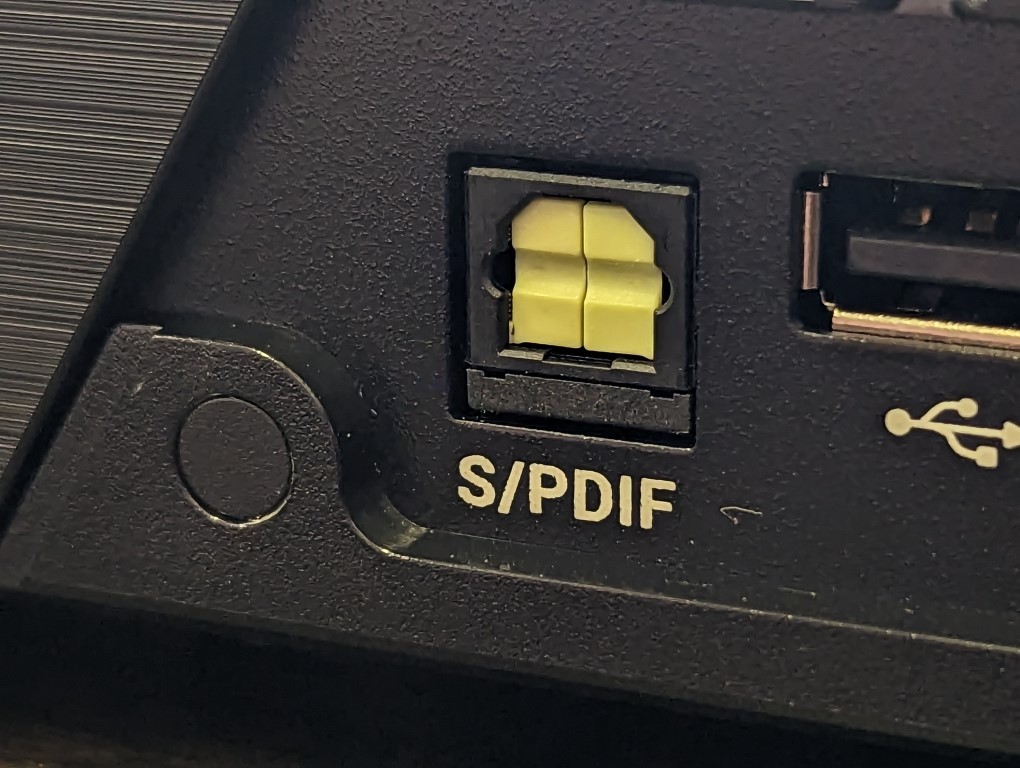
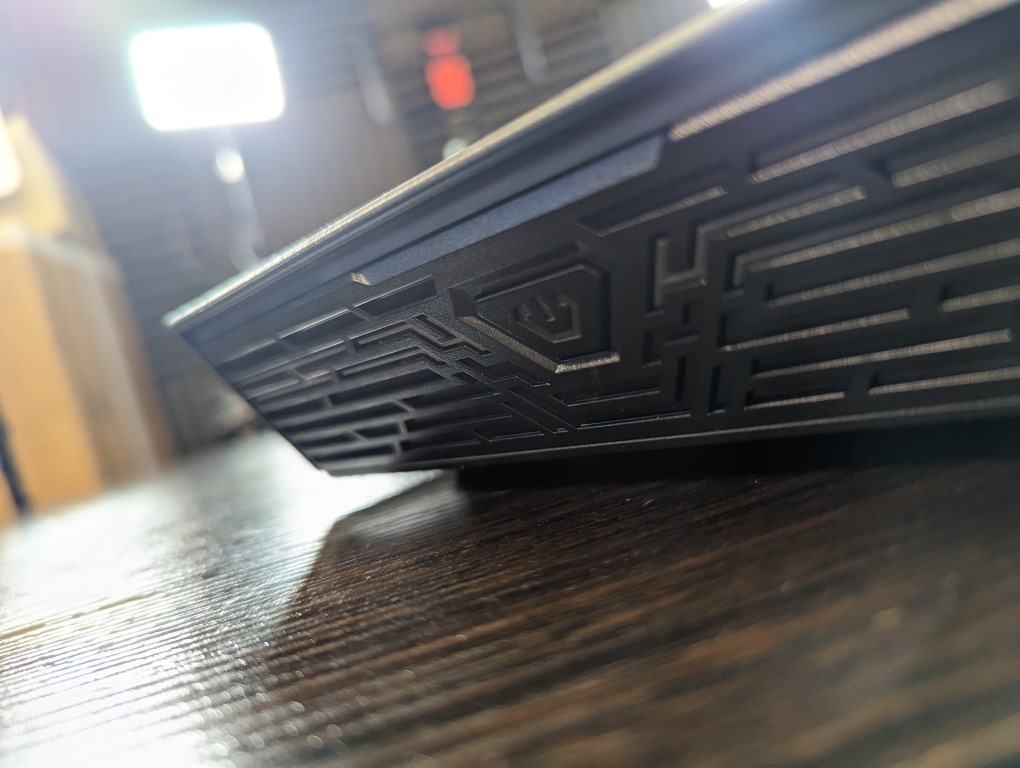
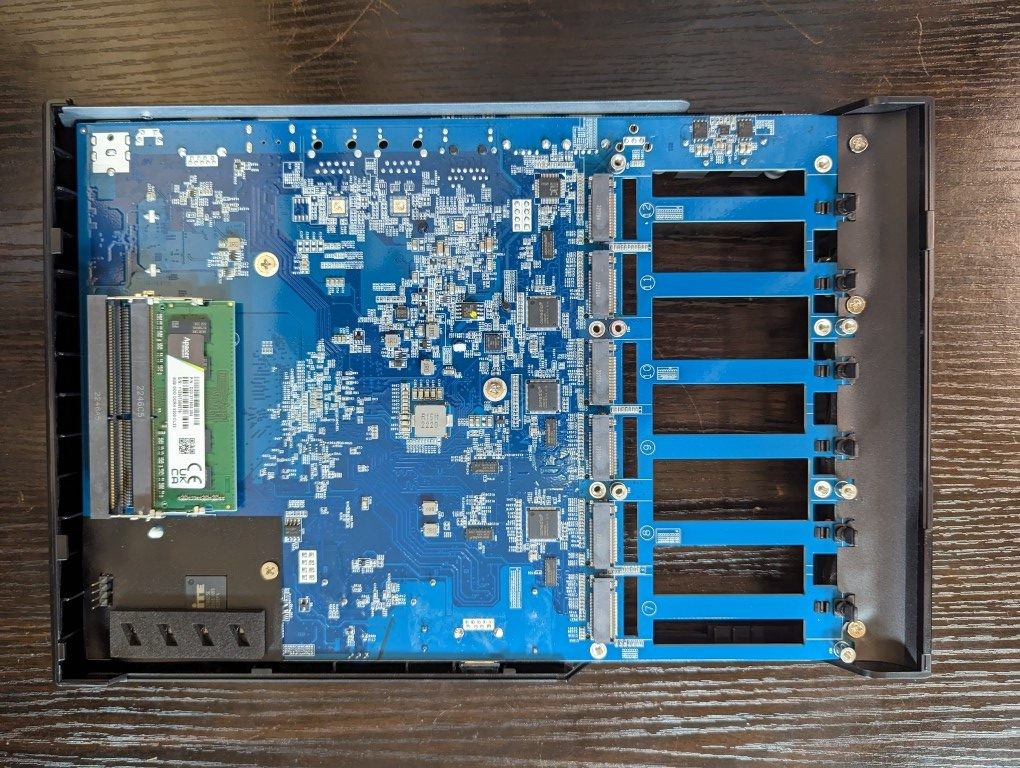
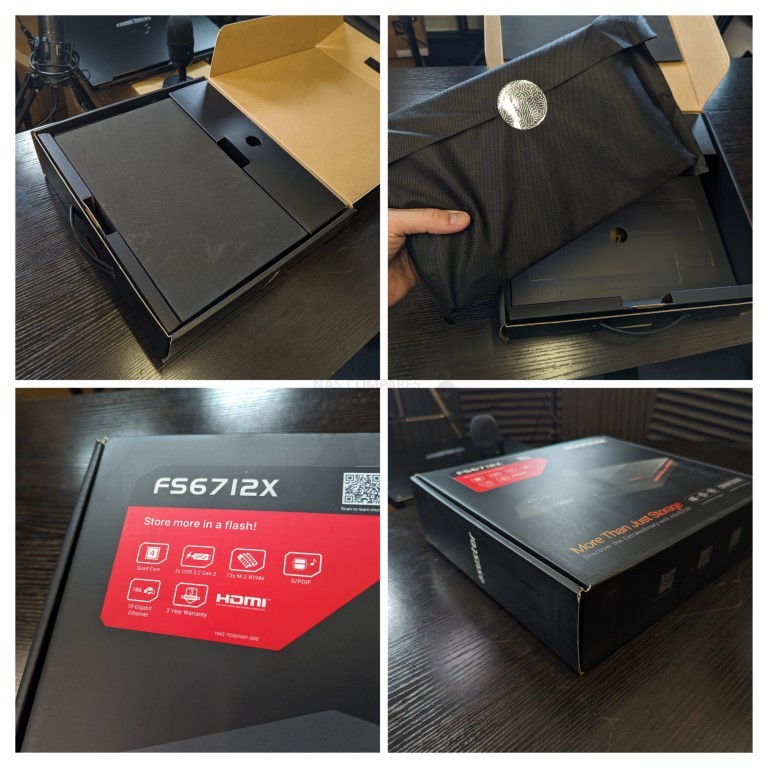
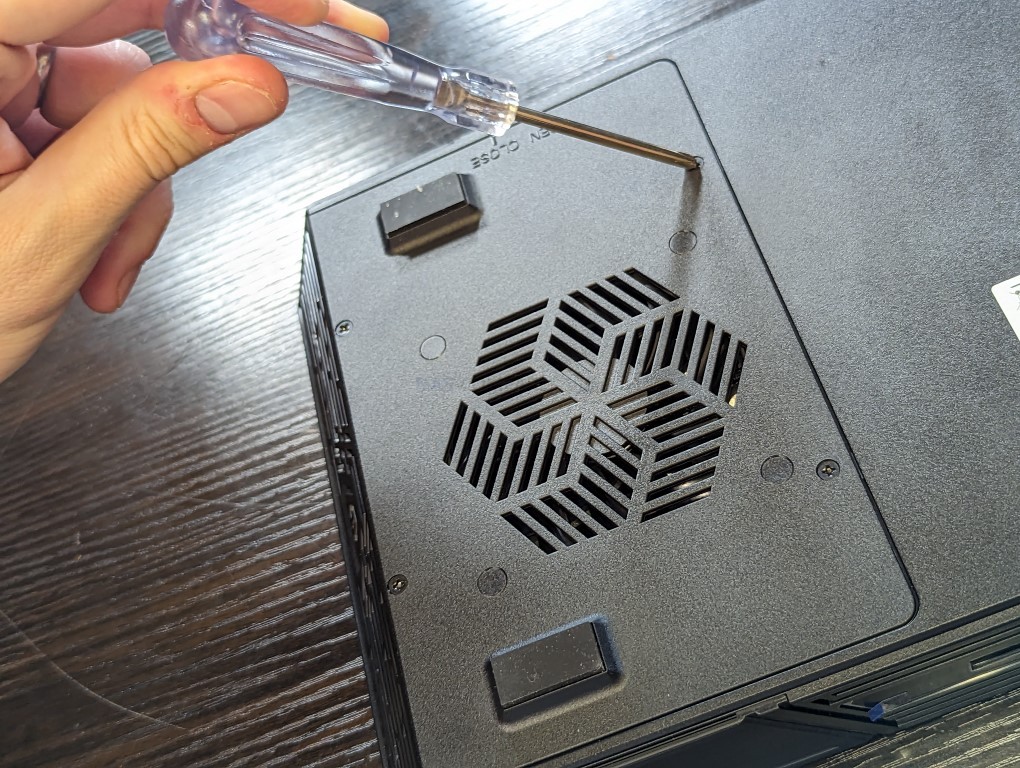
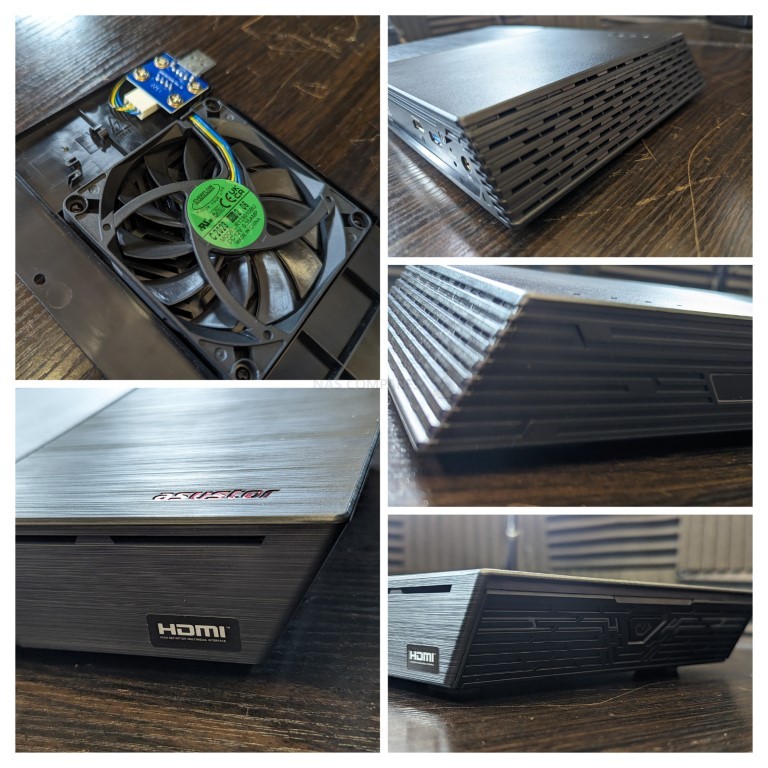
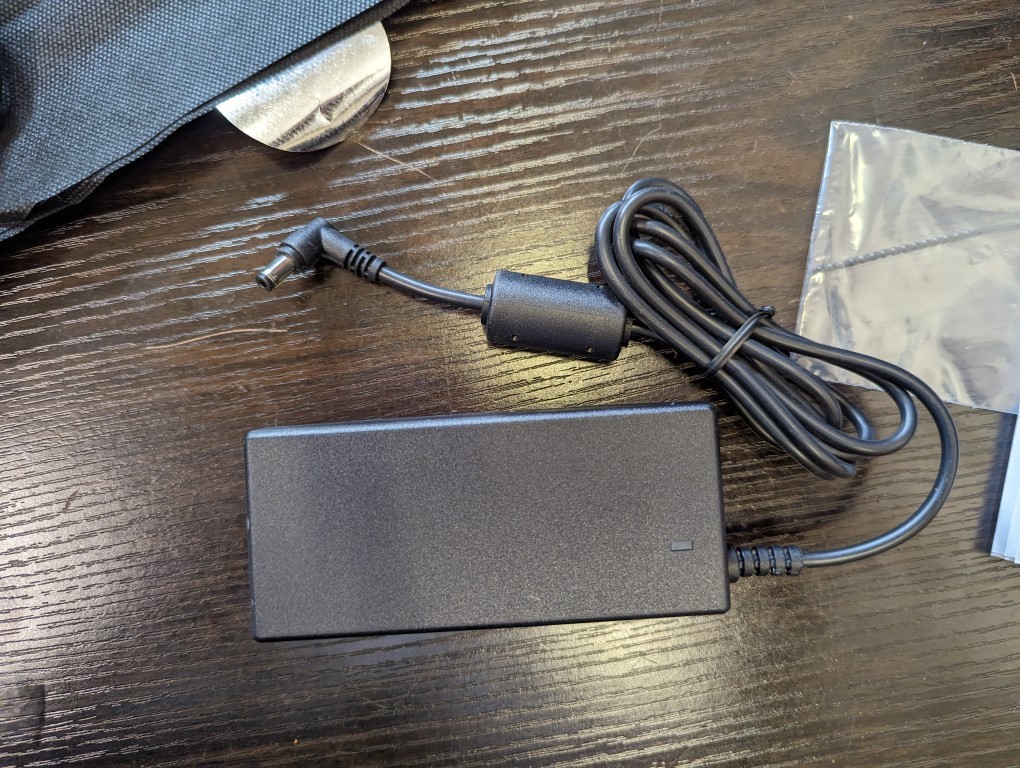
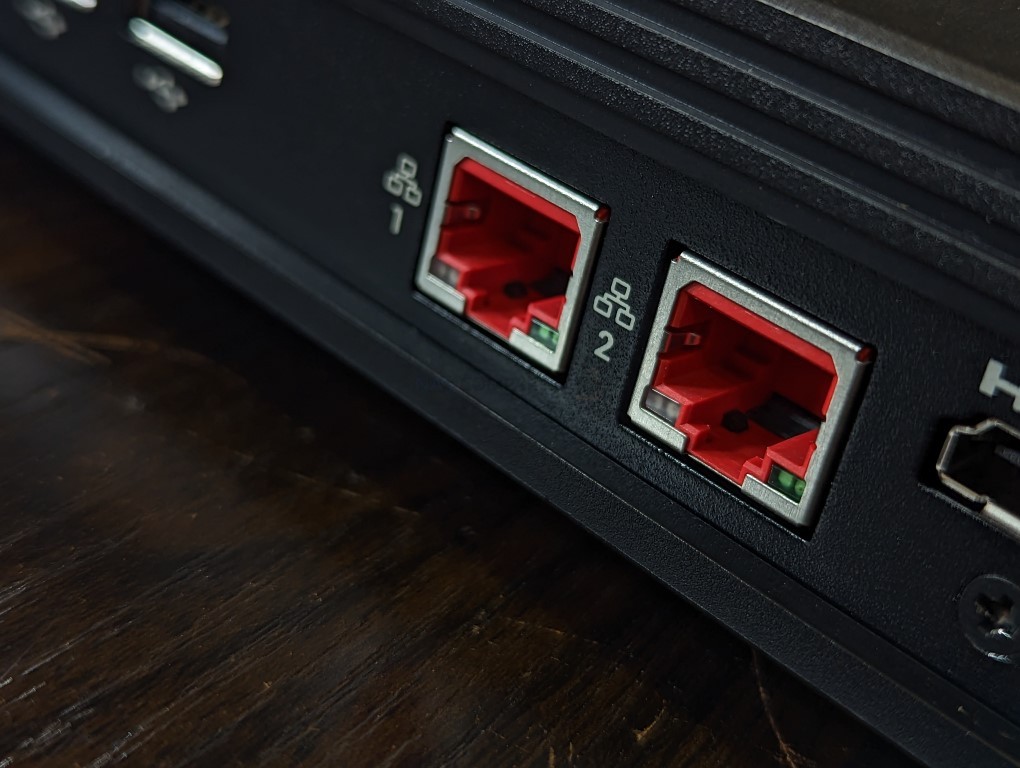
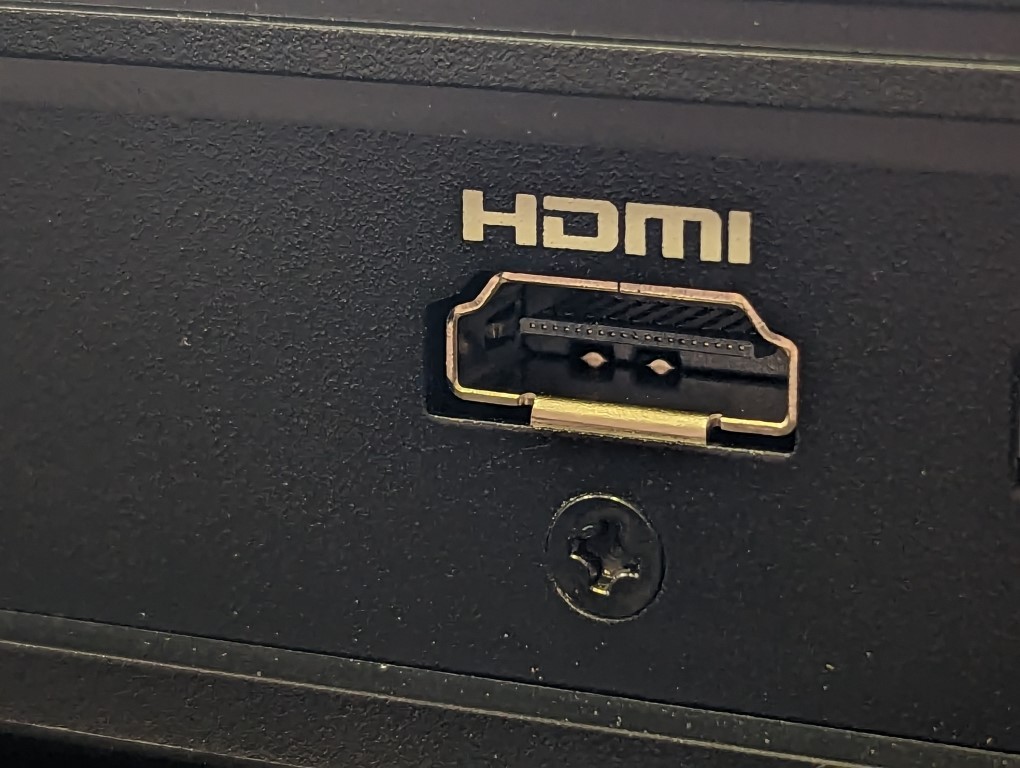
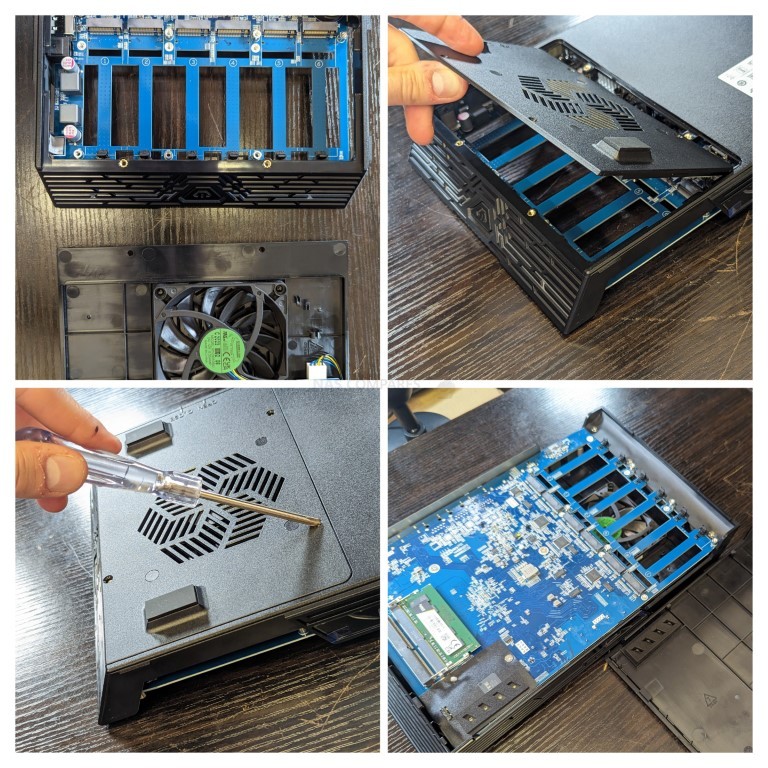
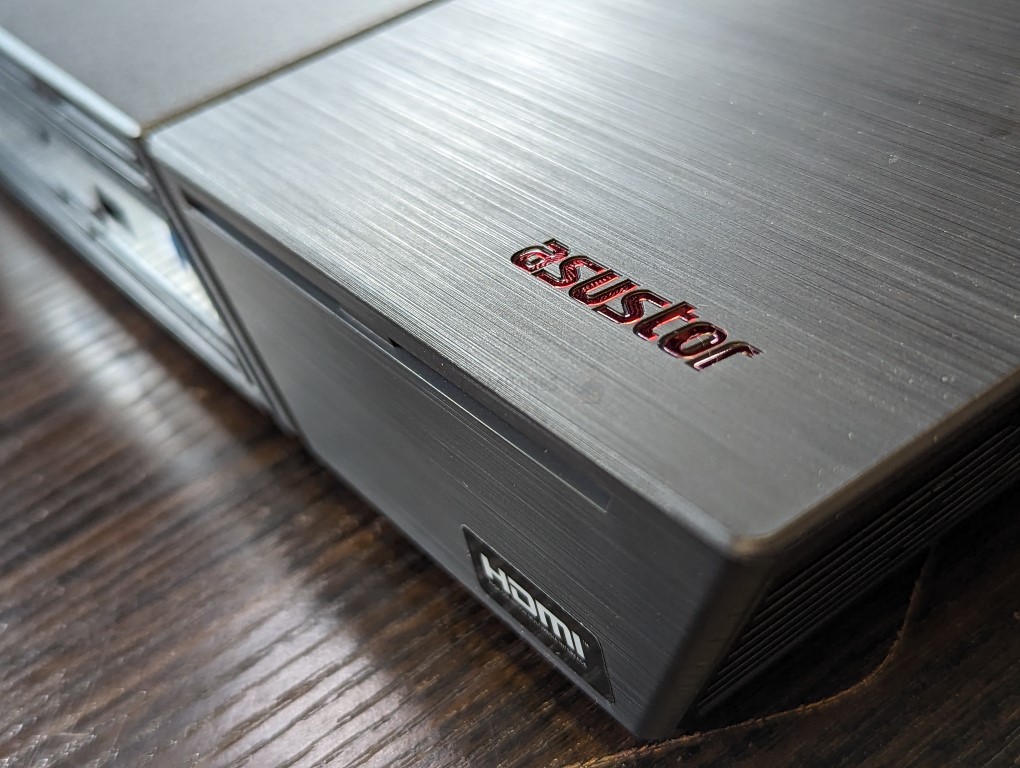
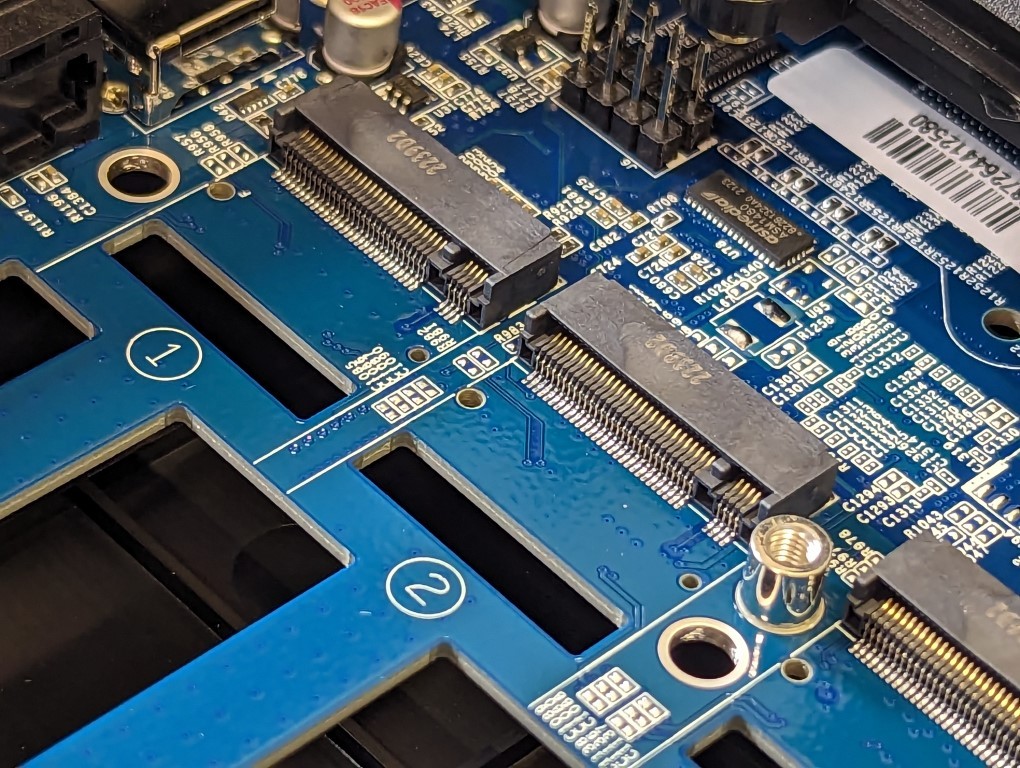
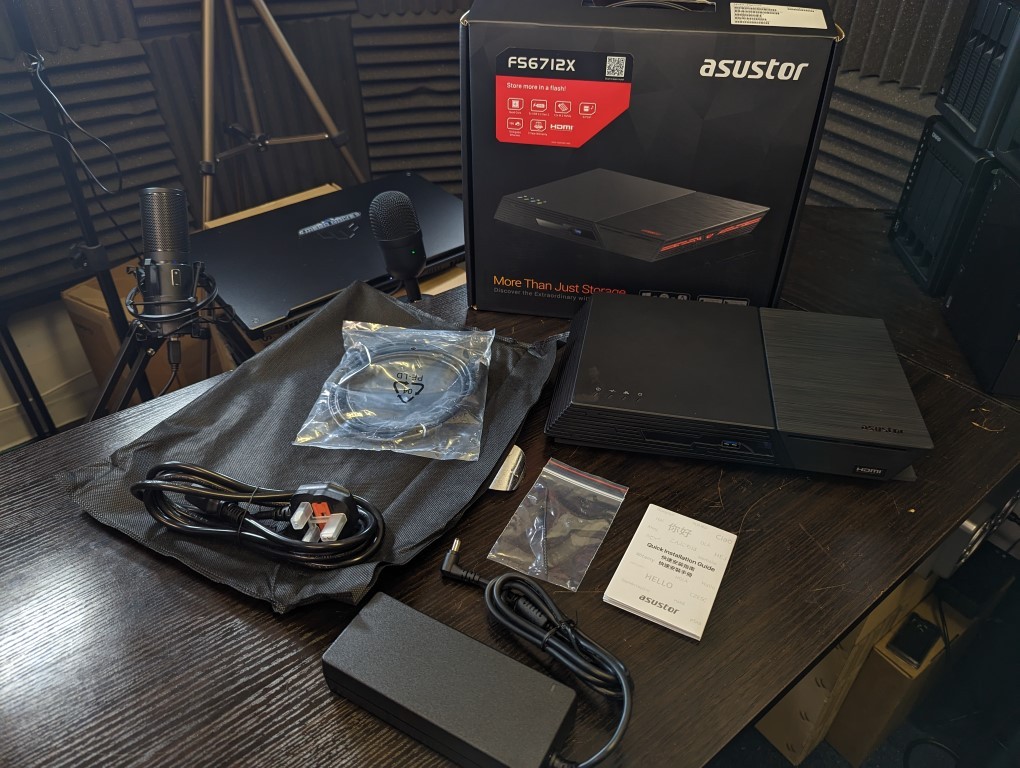
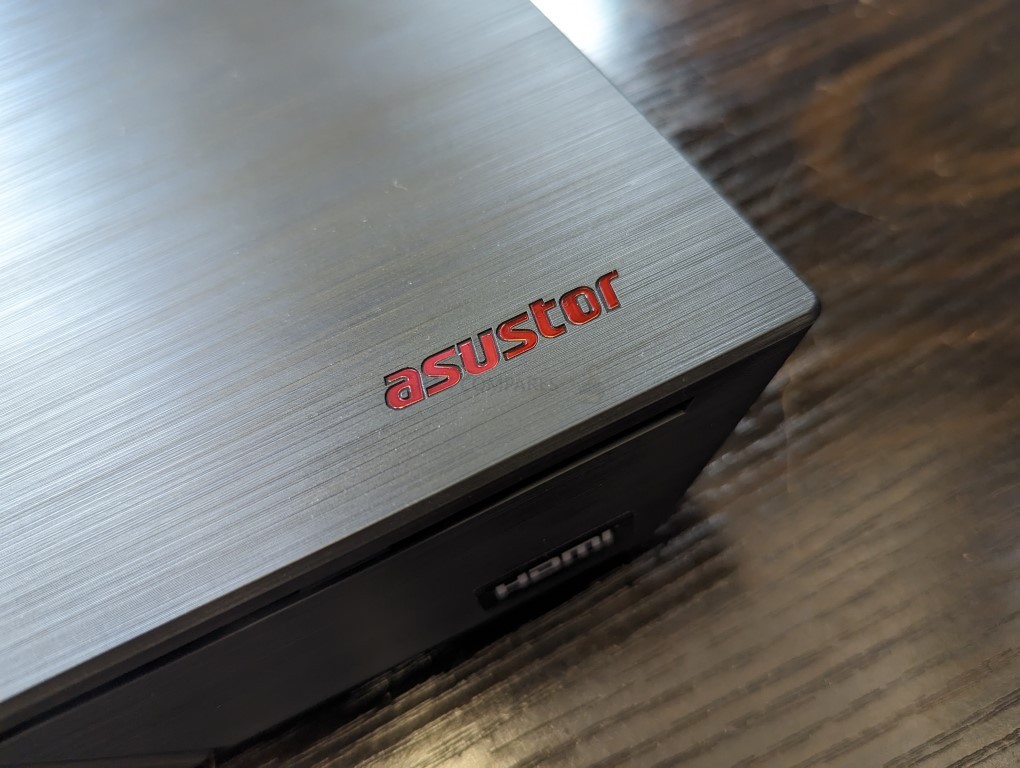
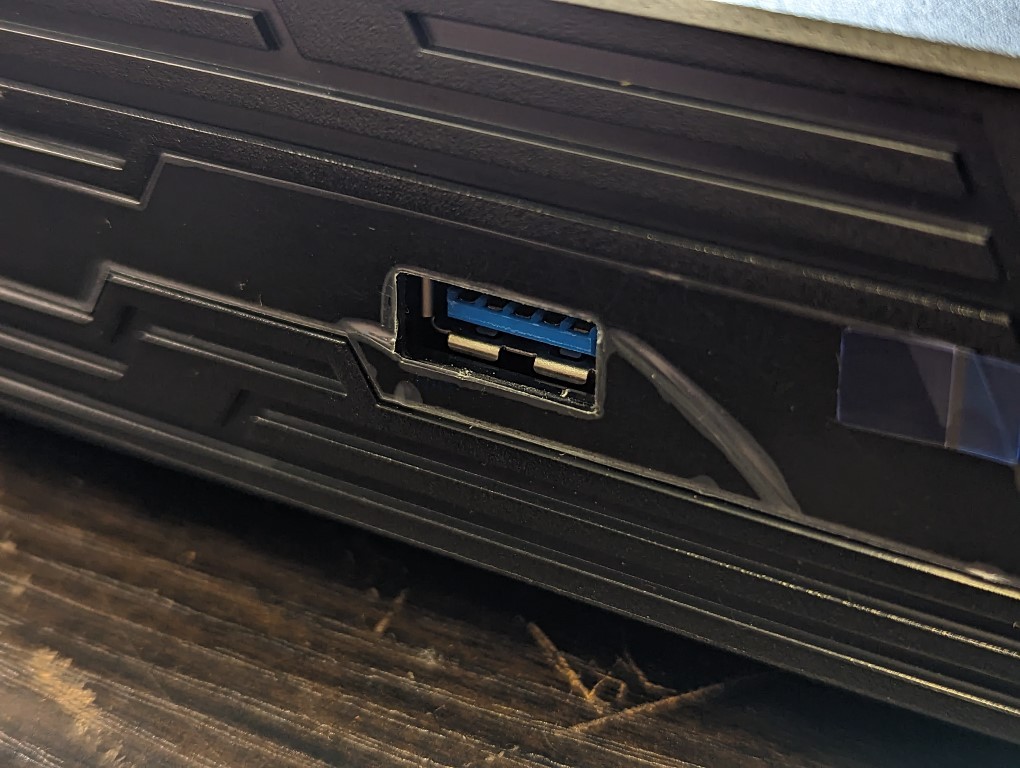
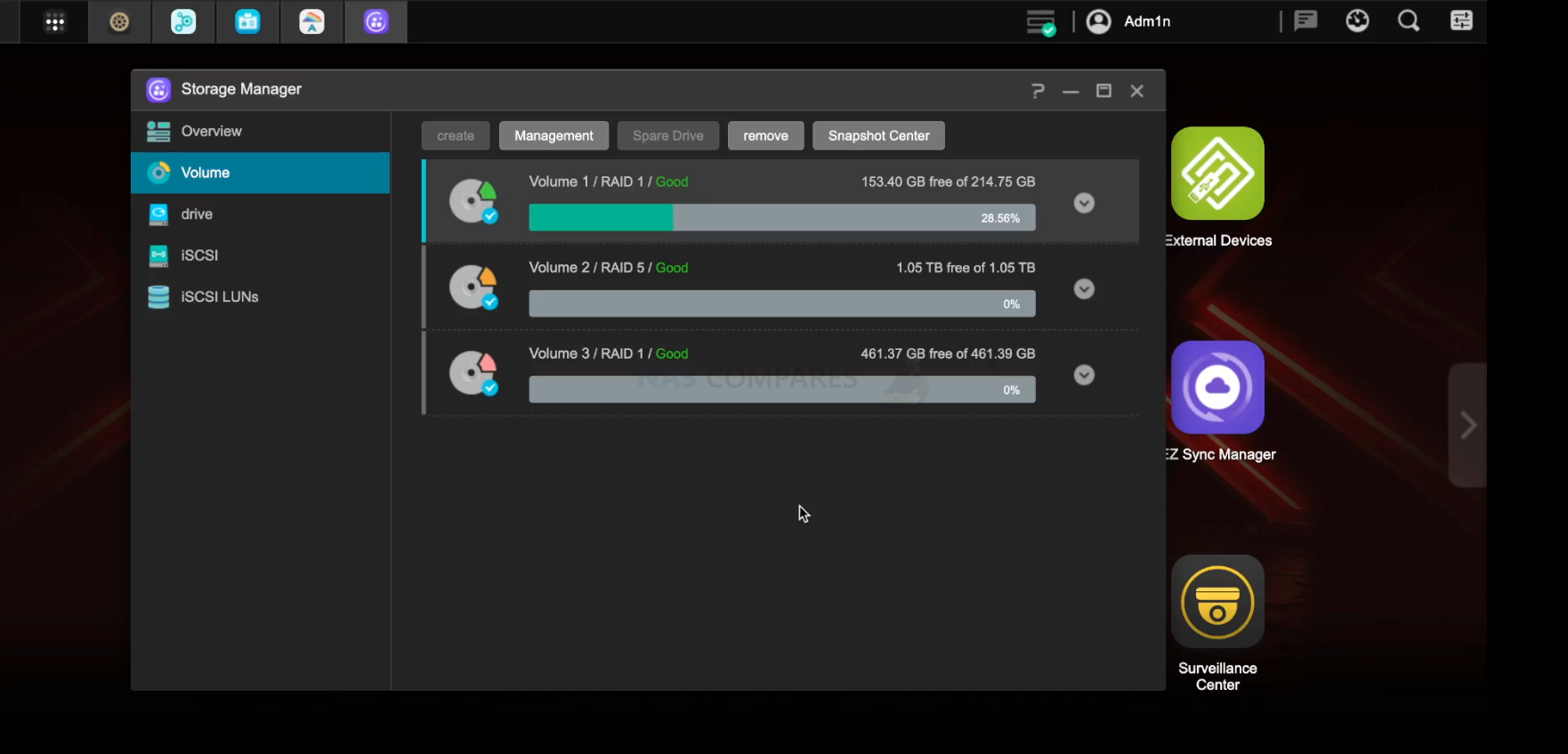
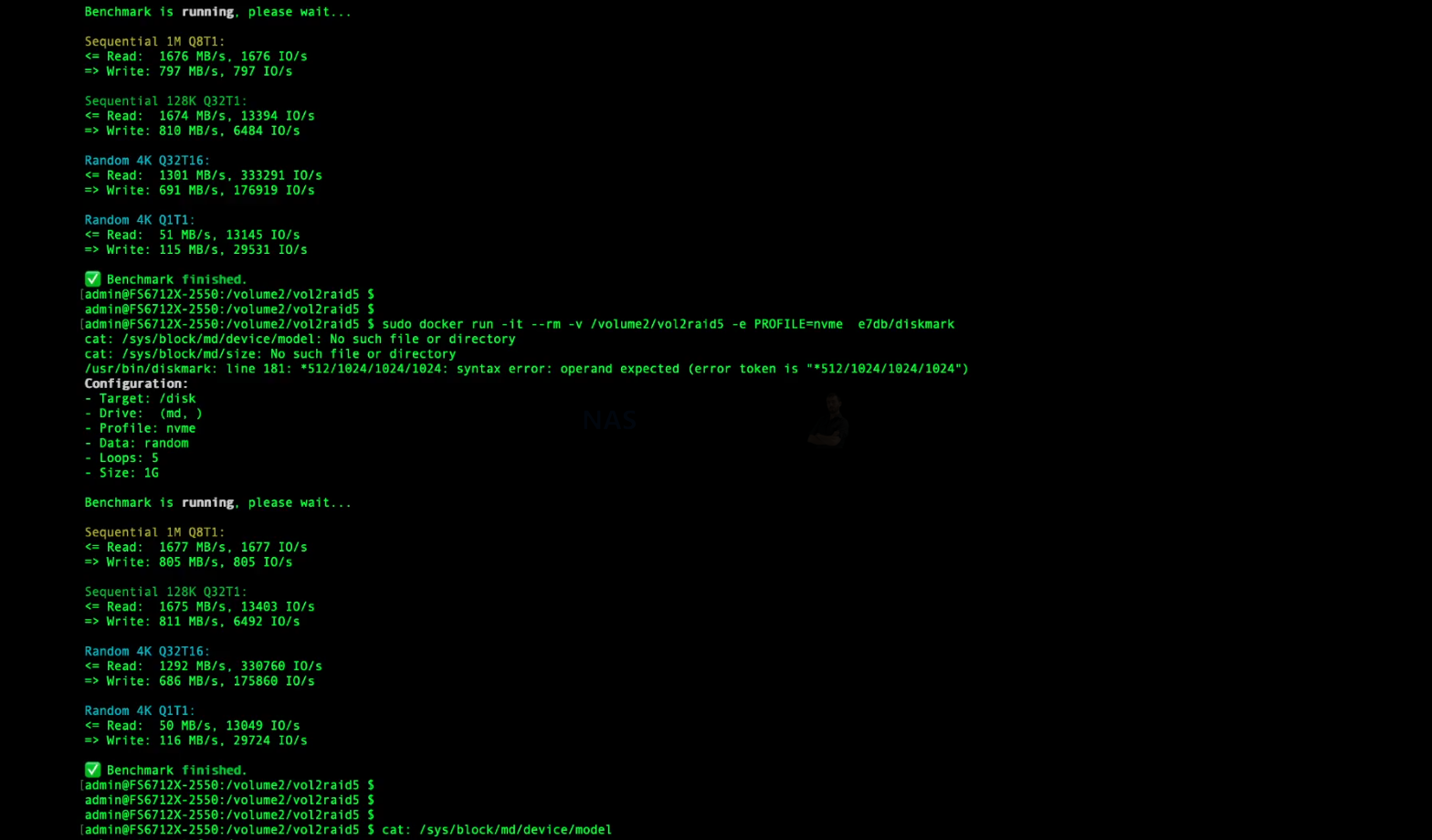
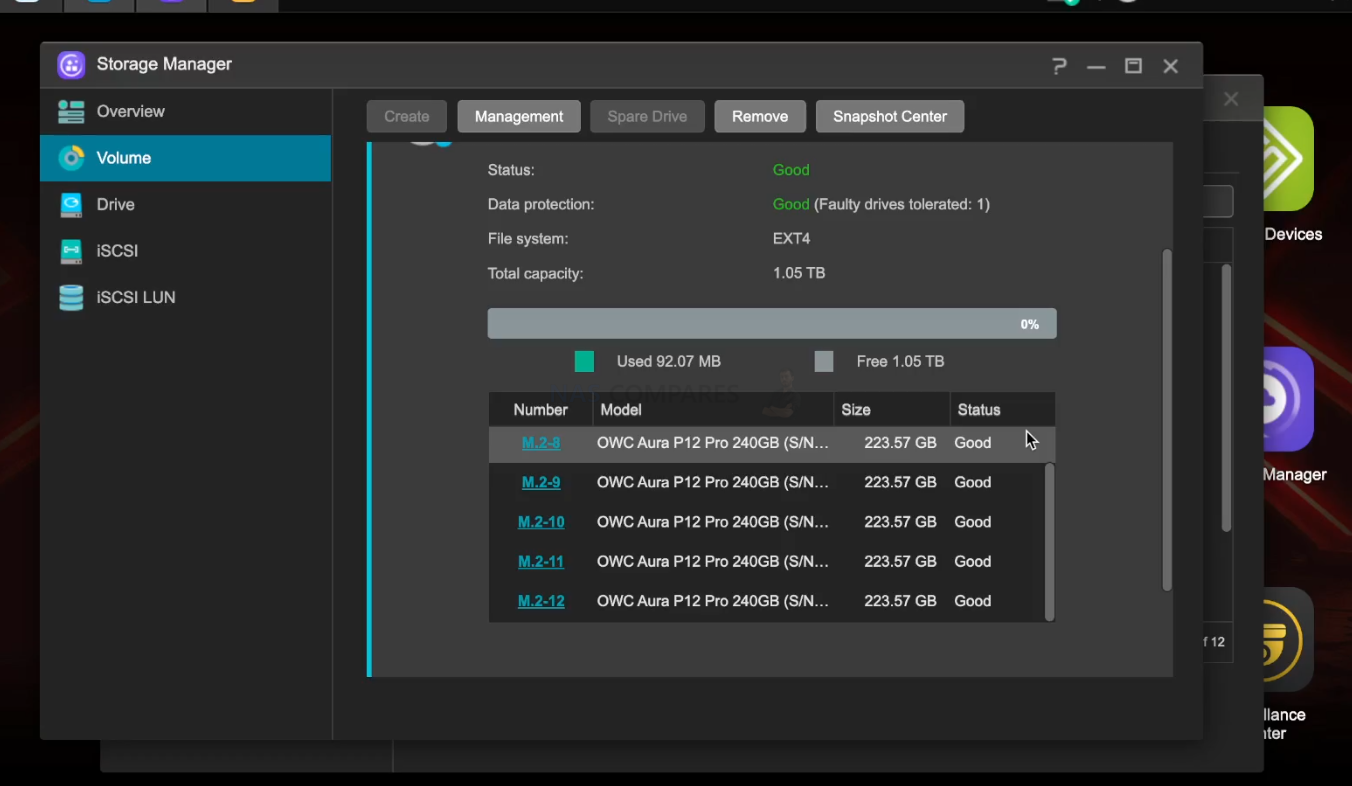
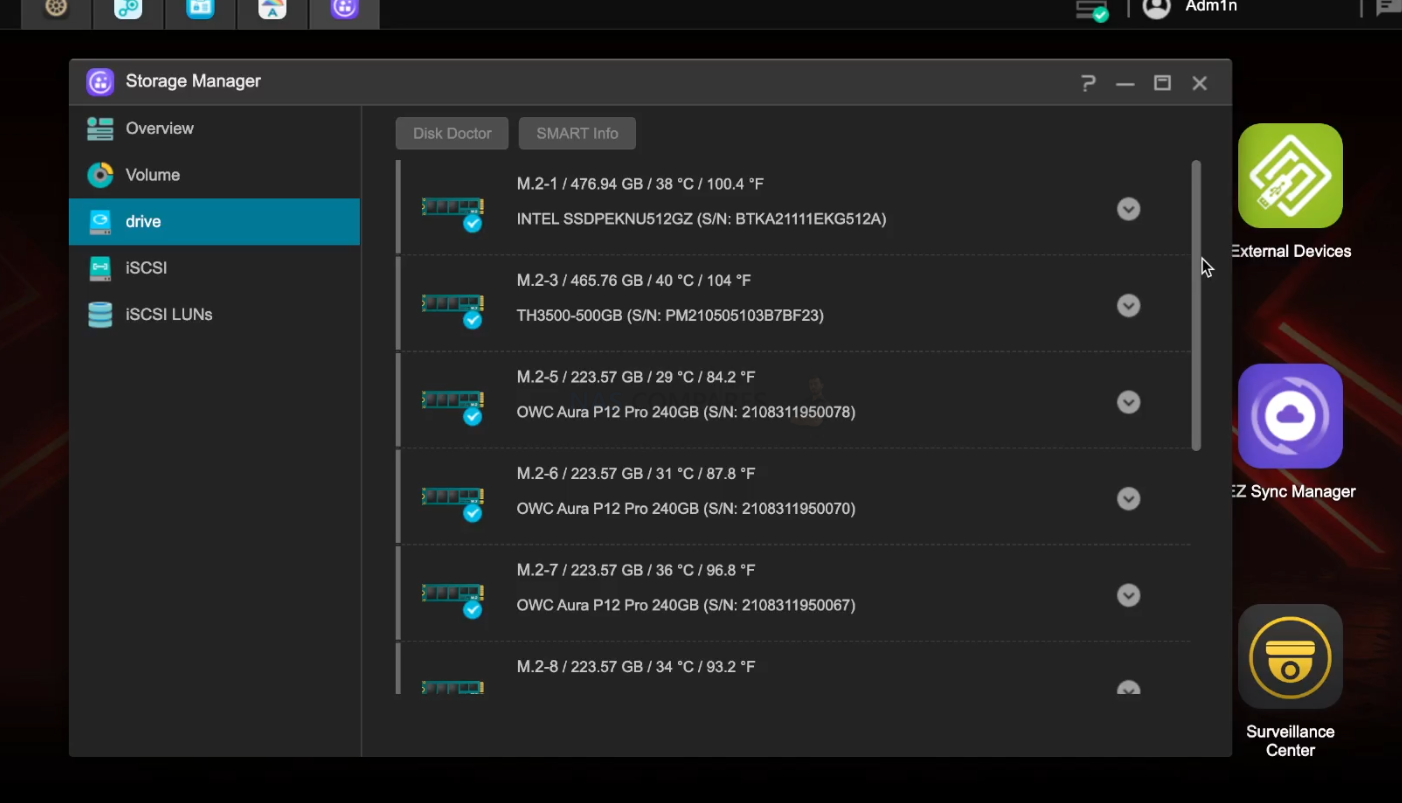
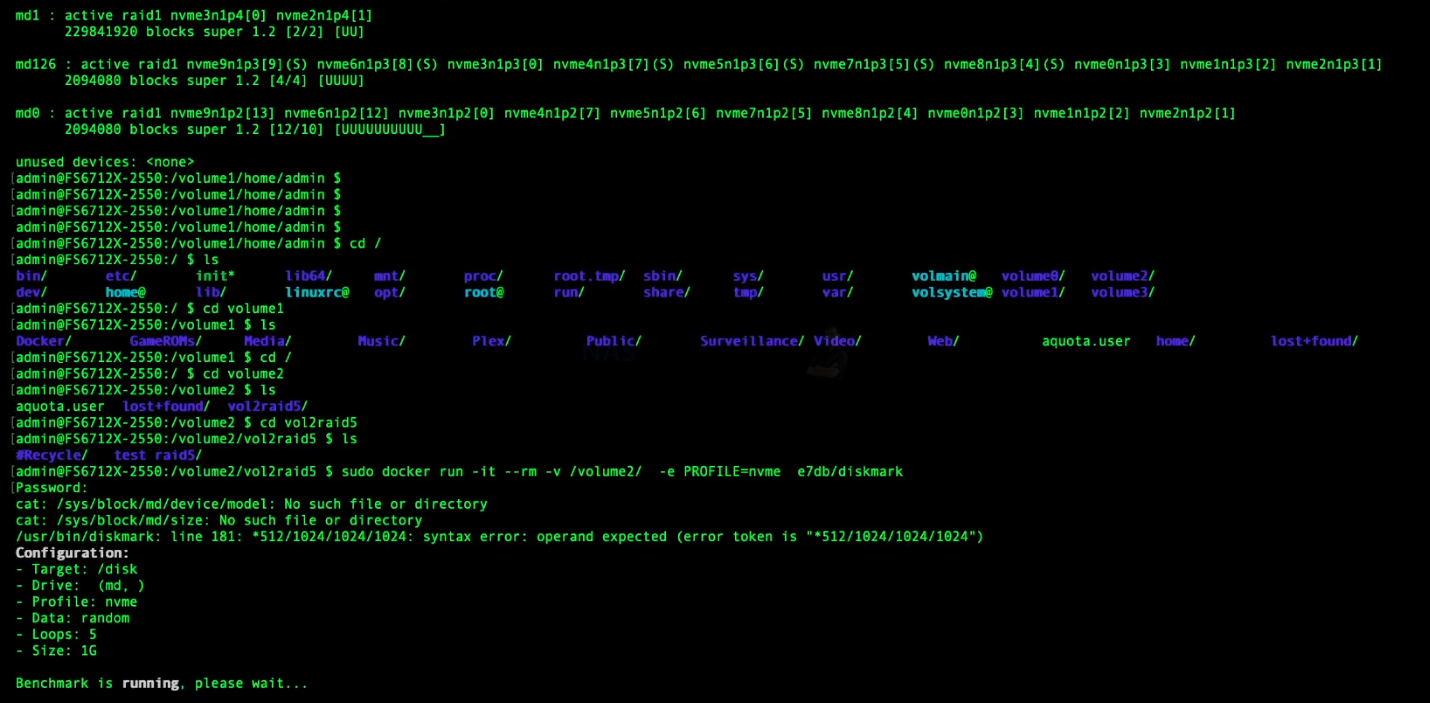
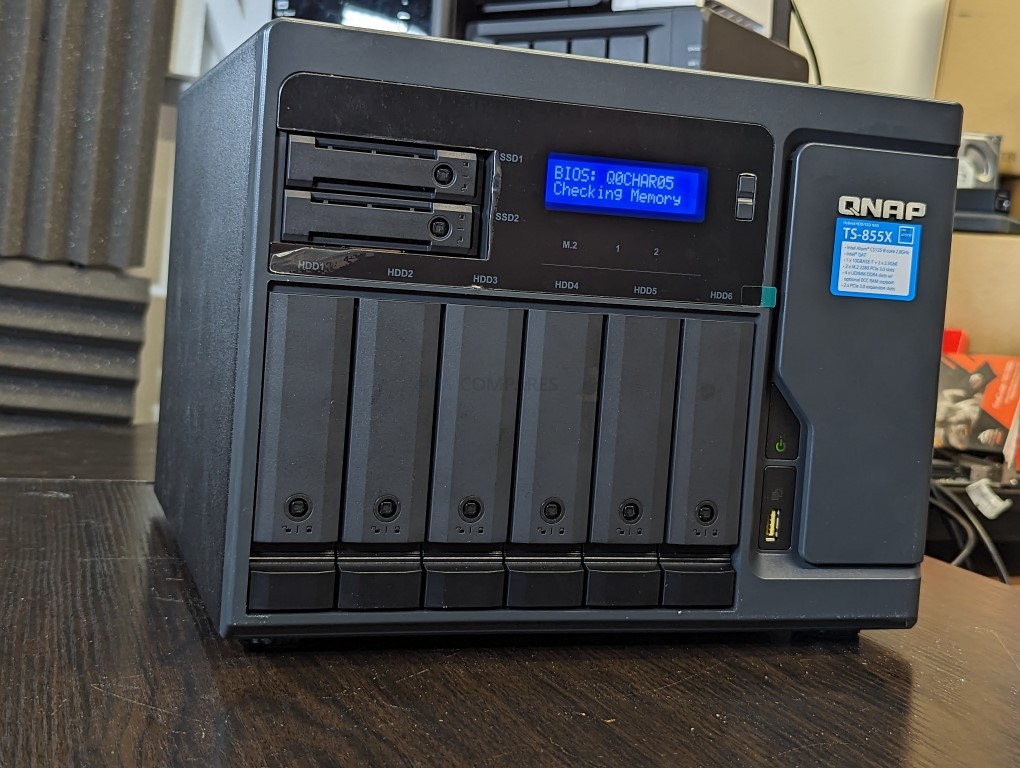
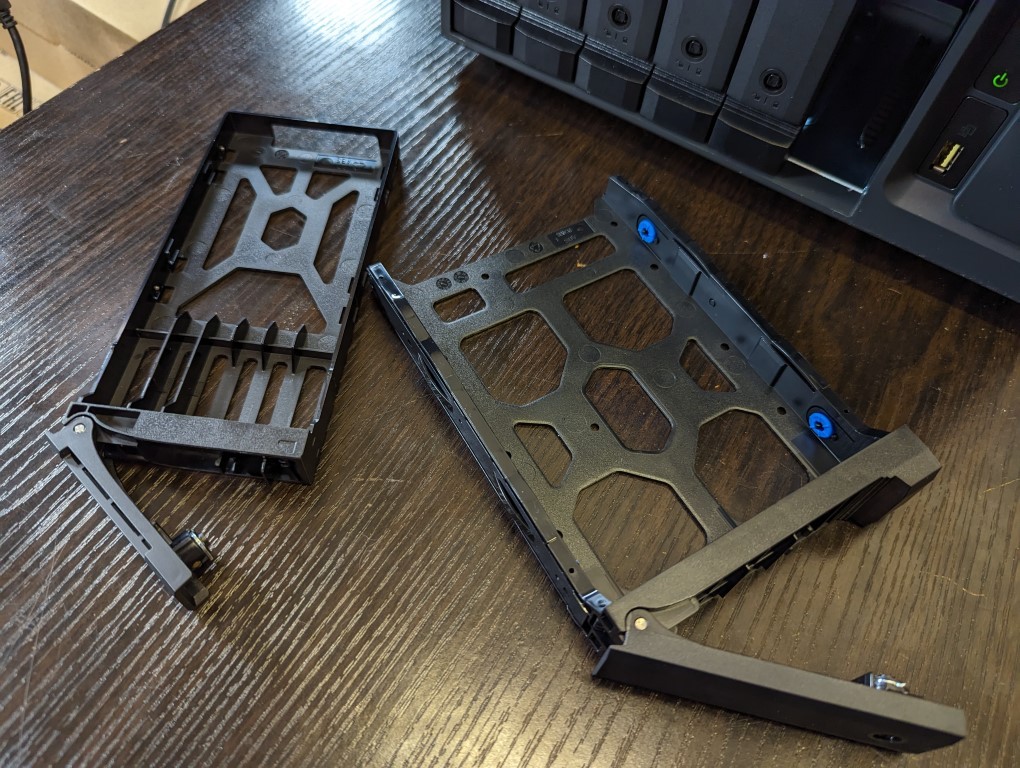
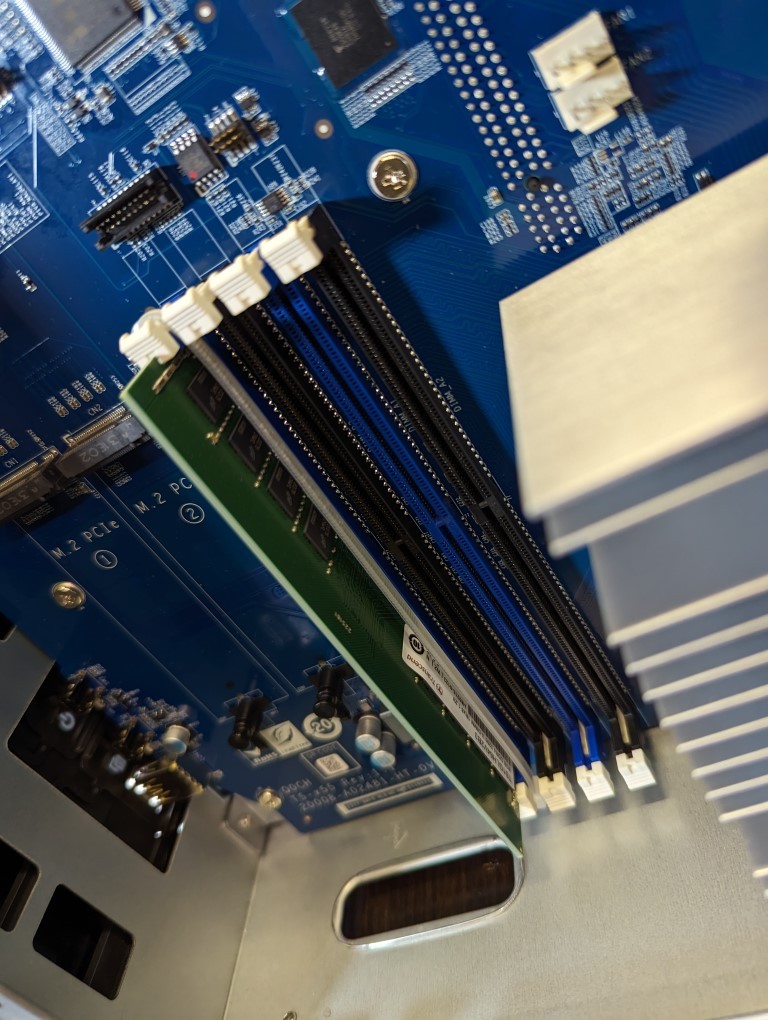
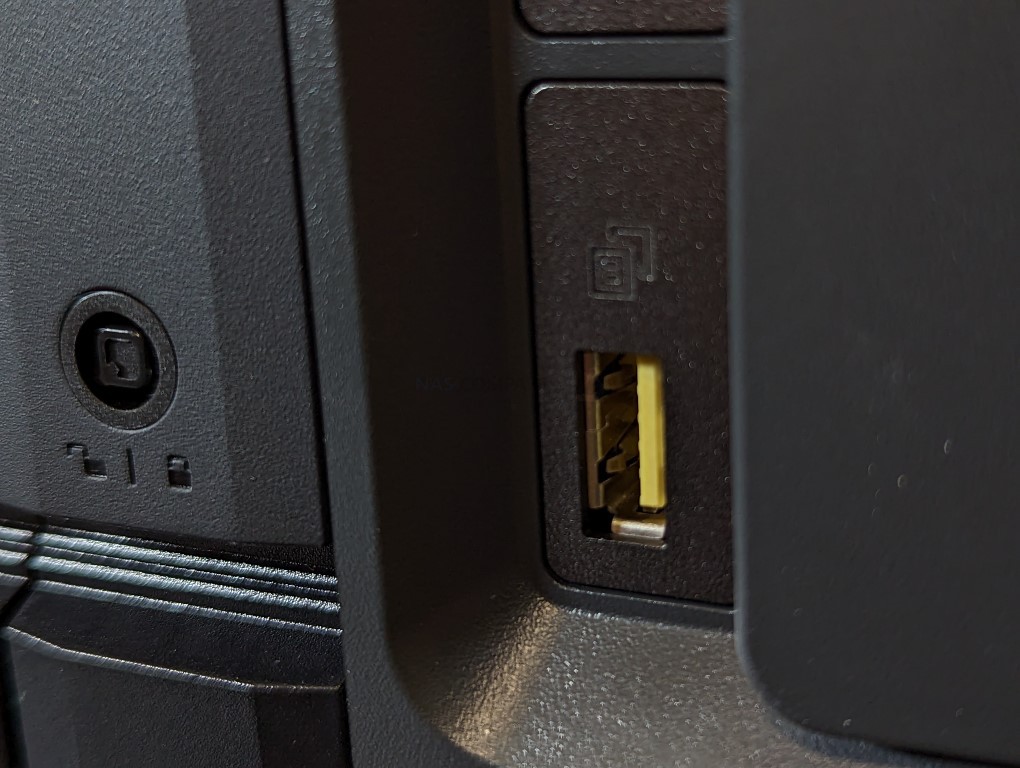
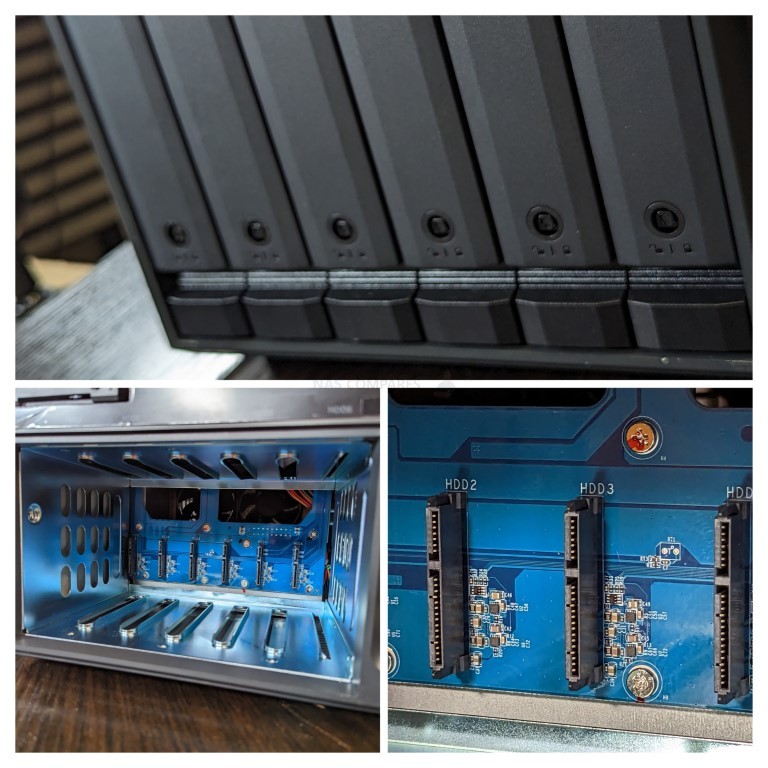
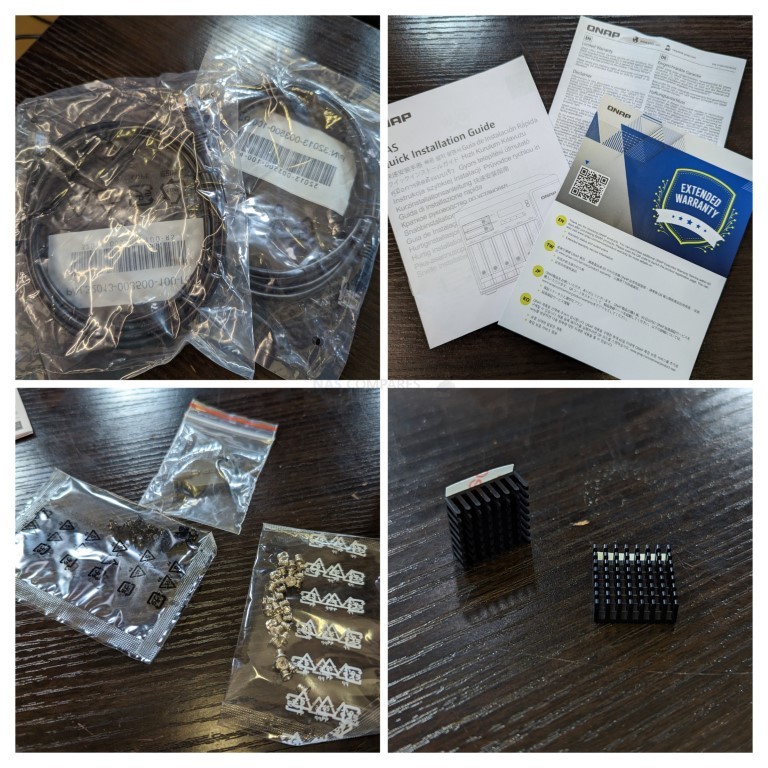
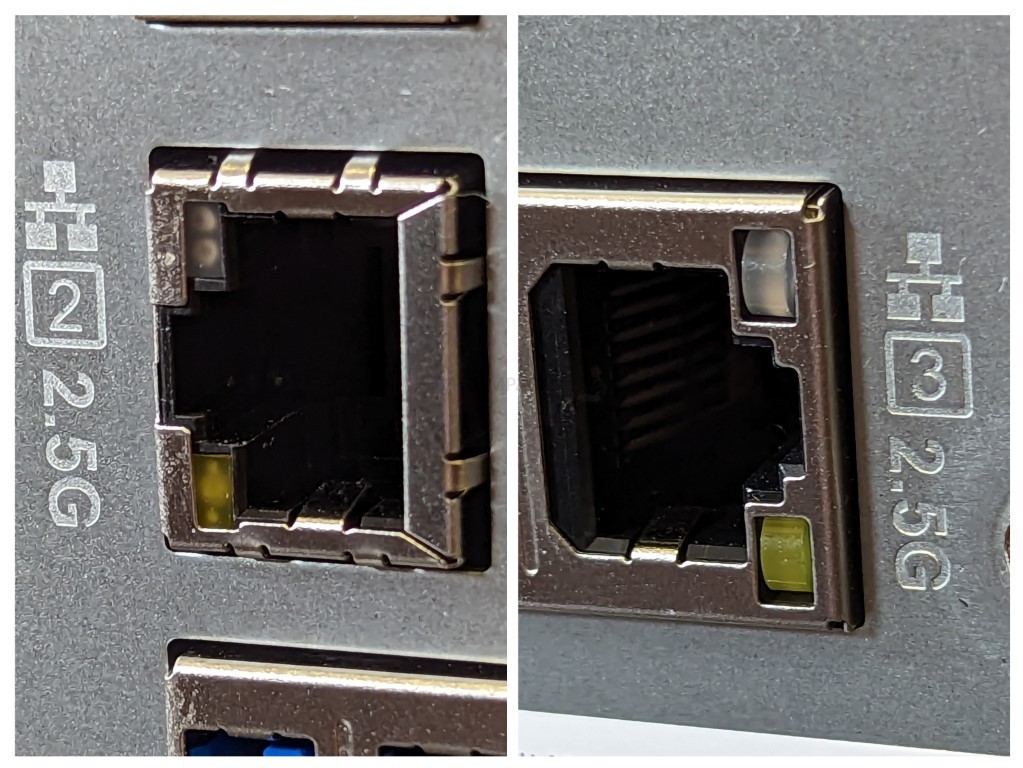
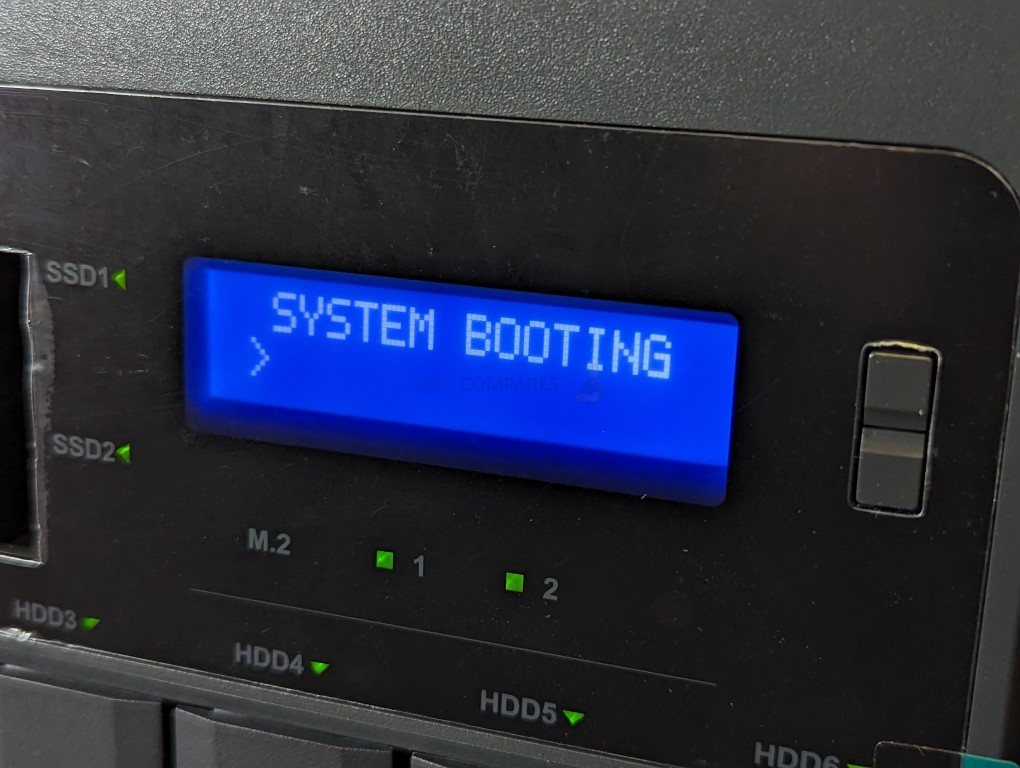
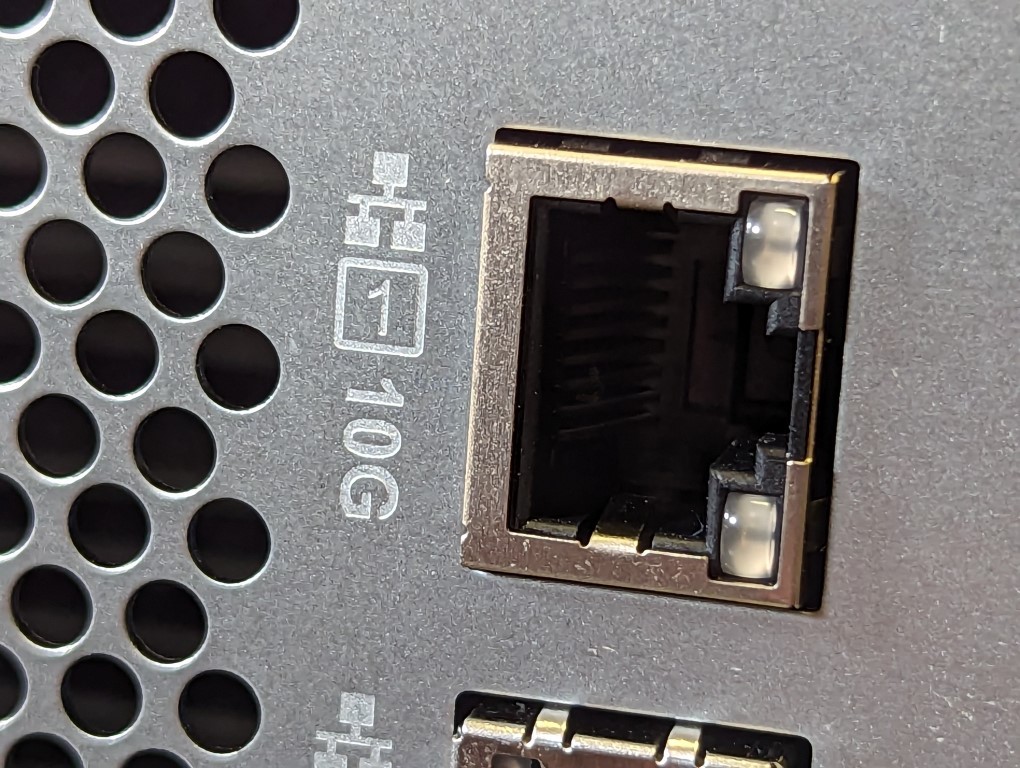
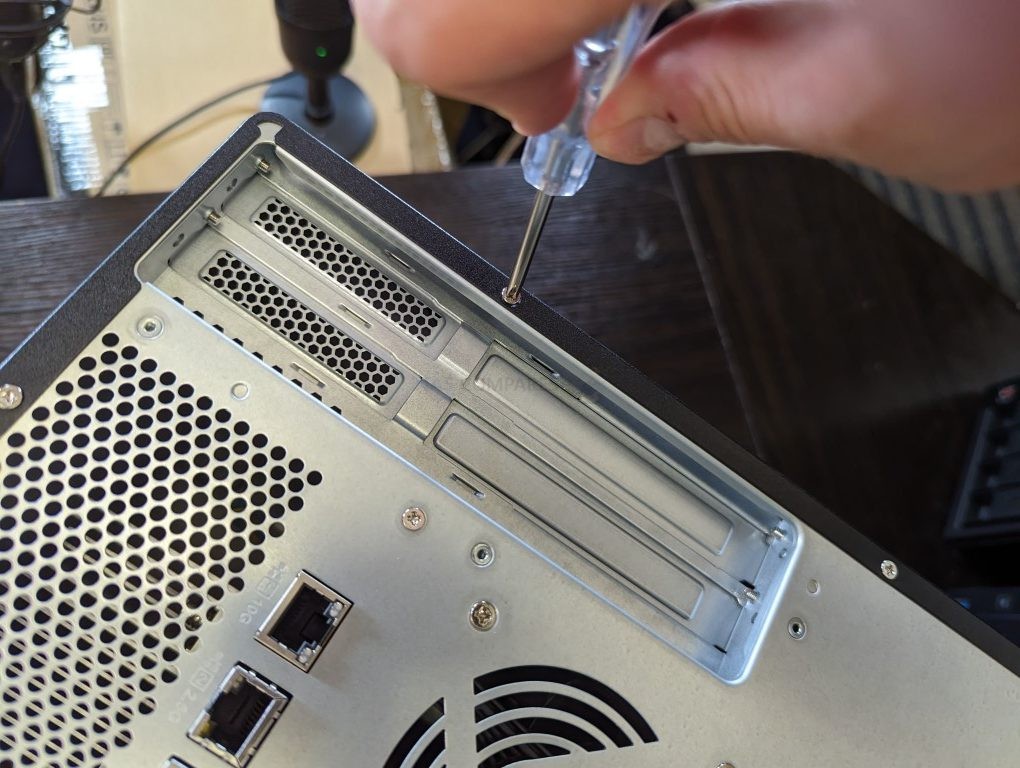
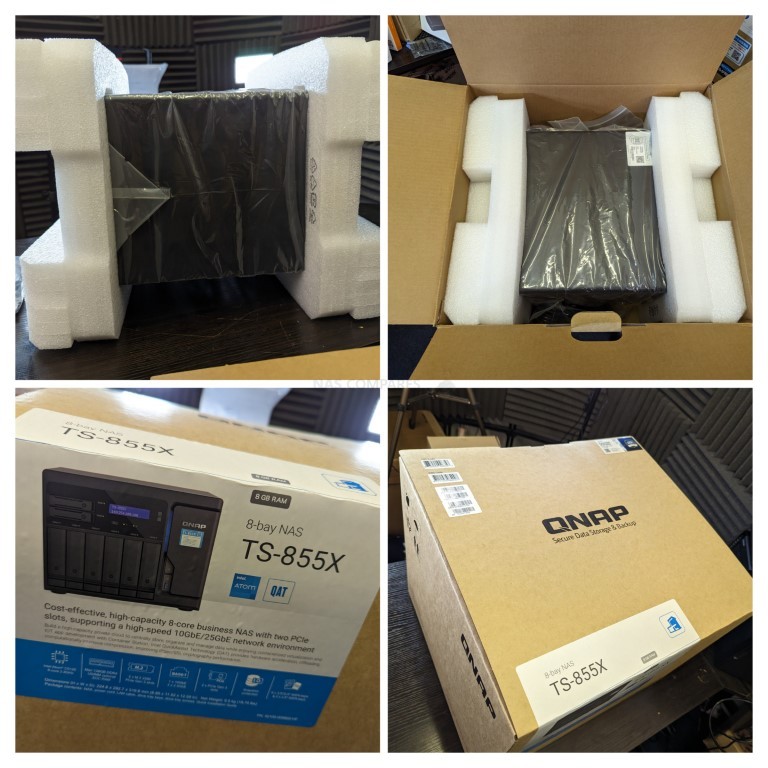
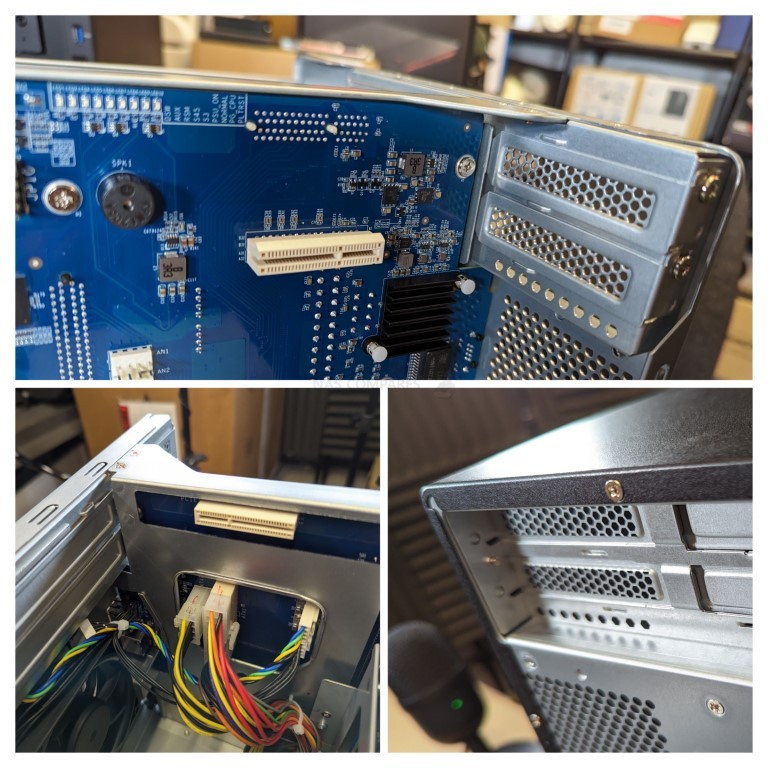
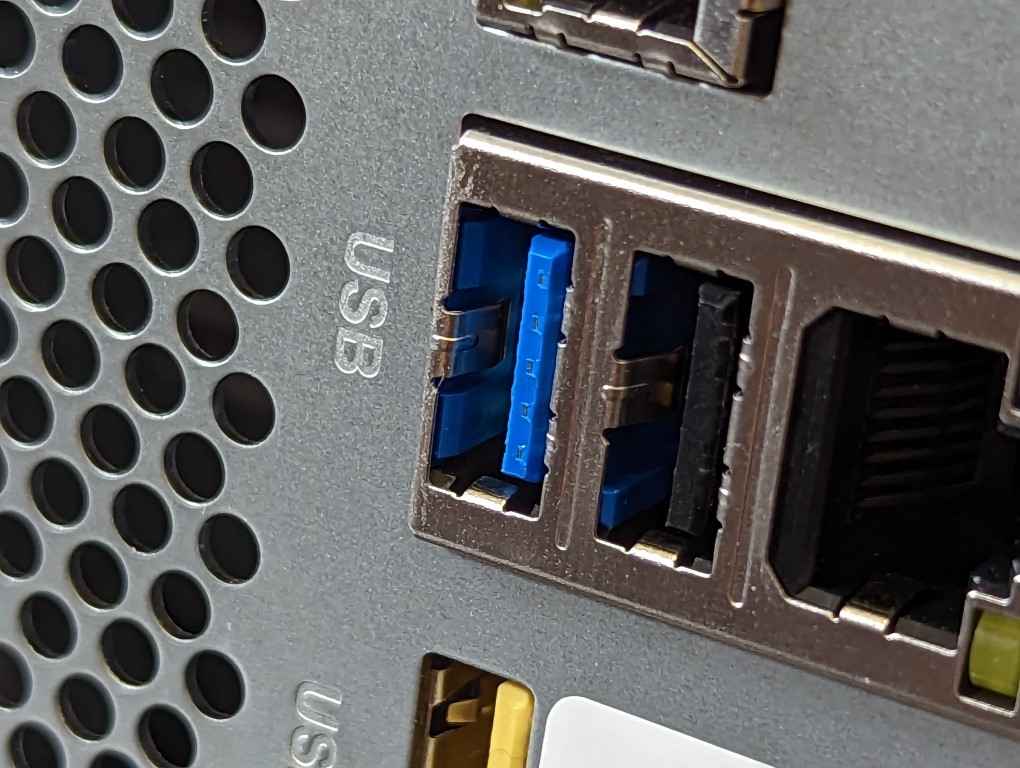
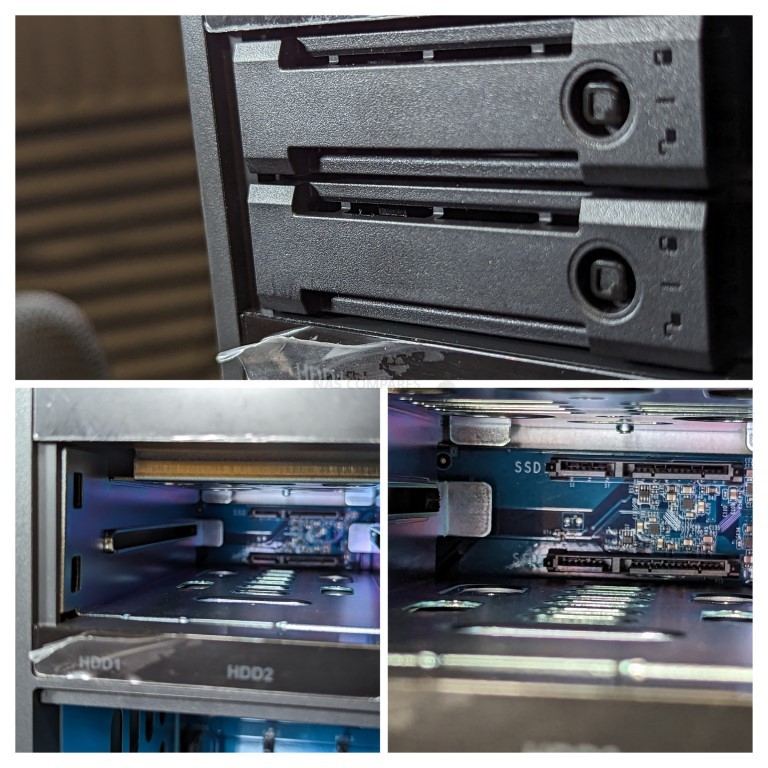
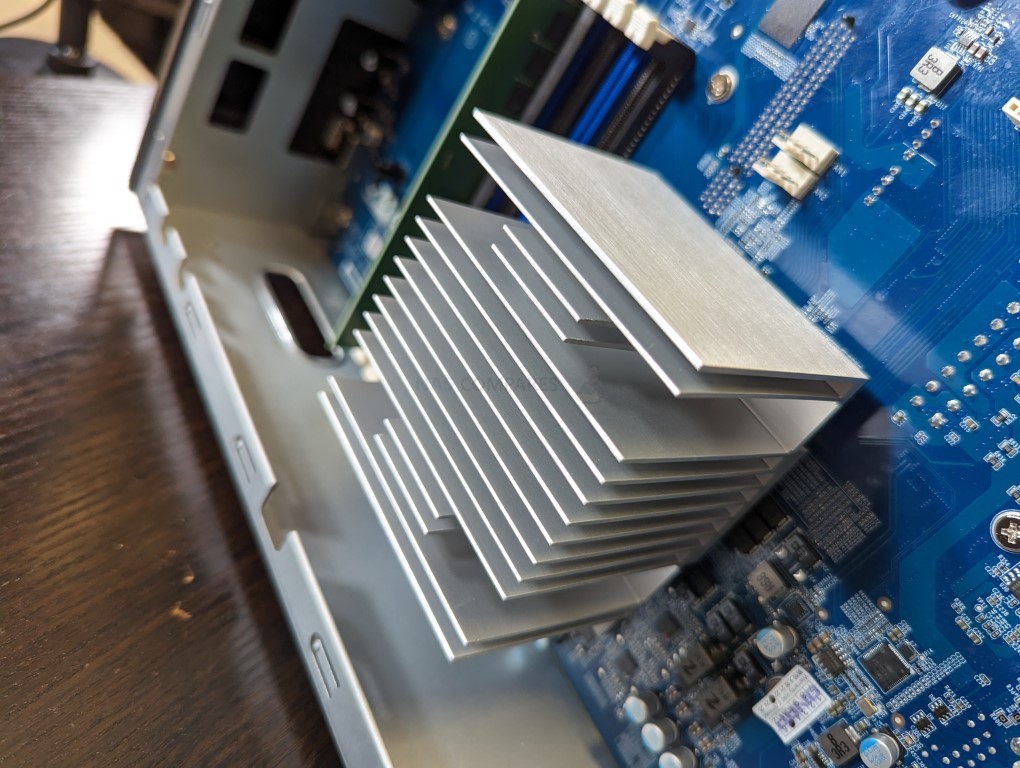
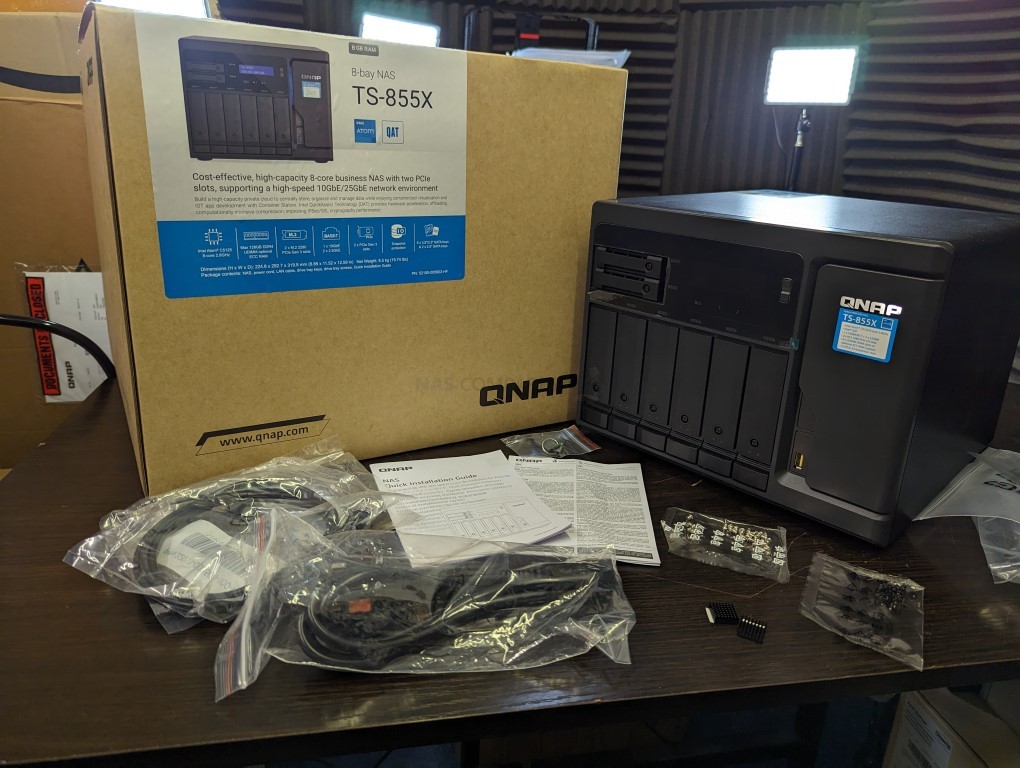
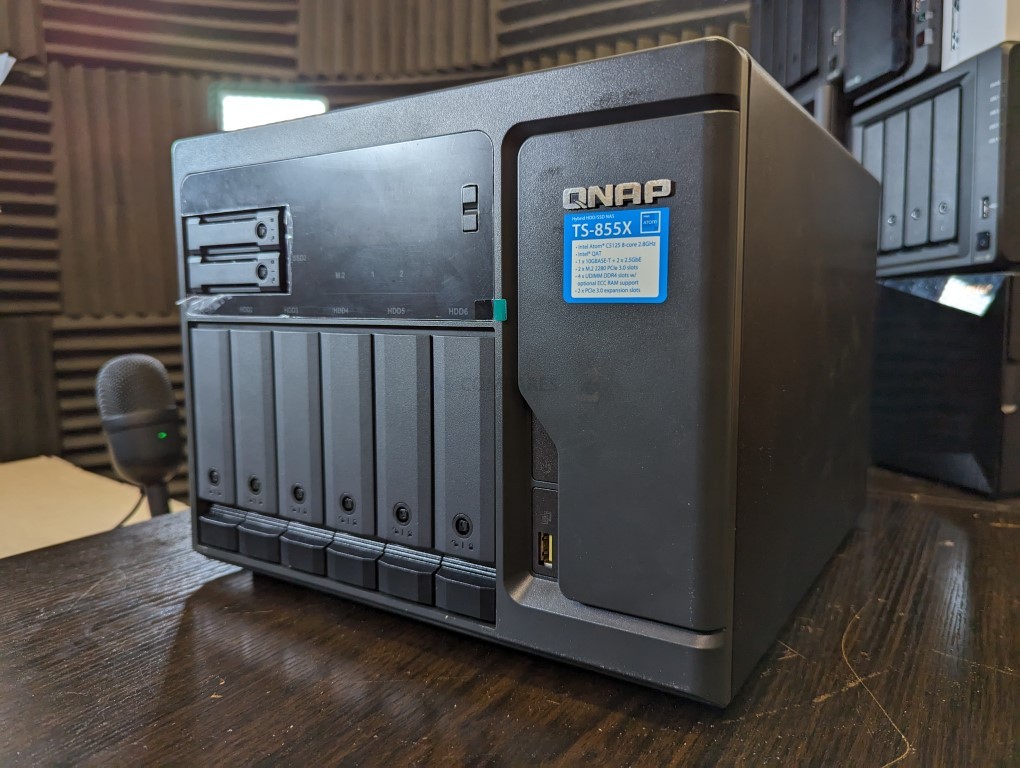



TBH I wish I’d got one of these over the 1821+ but with a 10GbE option card. Why you may ask, I have 5 x 12TB drives and 2 x NVMe 1TB drives. All would have been perfectly fine in the 1522+. Compute wise I have a standalone plex box and proxmox boxes running on Dell Optiplex Micro units. Plex transcodes fine with an iGPU and there is enough compute and RAM for Proxmox VMs. Beyond that I use the Synology O365 and active backups.
REPLY ON YOUTUBE
Wouldn’t 4x spinning HDDs in RAID0 saturate 10gbps? I get ~240mb/sec on each of my drives, so quadruple that with RAID0 and…
REPLY ON YOUTUBE
Hello there, I need help. I’m in the process of buying my first NAS for home. My requirements are very simple. I will be using it mainly for storing & viewing family photos & videos (fond memories), movies & music (personal collections) and personal documents. I’m in a dilemma, unable to decide between ASUStor Nimbustor Gen 2 AS5404t (4 bay NAS) and ASUStor Flashtor Gen 1 FS6706t (6 bay all SSD NAS). Kindly help me in deciding – both cost the same in my country right now… Thanks in anticipation.
REPLY ON YOUTUBE
why does it look like a PS4
REPLY ON YOUTUBE
Great system and very convenient BUT….. The speed if you need to adjust anything to do with the Pool restructure, or HDD optimisation is painfully slow.
e.g to “secure erase” a 10TB hard drive was going to take 885minutes. and if you plan on reusing any of the drives for a windows based system the whole pool has to be deleted or Windows wont be able to reformat them as they have a filesystem that windows can’t read.
Saying that, if you remove a drive and replace it with another then reboot, provided you had a raid that supports parity/redundancy it will rebuild the pool(albeit painfully slow) and you can continue to use the system while it’s doing it
REPLY ON YOUTUBE
The compatibility lists are advisory only. Even for older Synology’s I’ve put in 18TB drives with no issues. It cautions you it may not work, but frankly, there would be no reason why it wouldn’t work.
REPLY ON YOUTUBE
Do you know if you could use a NVME .2 adapter to a PCIE or SATA adapter to add external 3.5″ HDDs?
REPLY ON YOUTUBE
An all-flash nas… with 2.5GbE… that is truly disappointing. I get 2.5 gig on a HDD nas with 6 slots, but all-SSD? Come on, that’s just leaving tons of network performance on the table, where that’s one of the key buying (or not buying) criteria for this product.
REPLY ON YOUTUBE
Hey bud, thank you for all your videos. Right now im wondering if the M.2 to 10GbE Adapter from your video: https://www.youtube.com/watch?v=ns0aWs6Qszs would work on this device since it is using unraid out of the box.
If that would be the case I think this combo could be INSANE value. Would really look forward to your answer an opinion on this idea 🙂
Greetings!
REPLY ON YOUTUBE
Does this still come with license for Unraid or did it get pulled into subscription based.
REPLY ON YOUTUBE
Thank you for a very thorough review, I am looking to add to my existing storage set up of DS412+ and DS418 set up in raid 6 which are only used for image storage would the DS1522+ be a good addition to my set up and used in Raid 6 with one hot spare drive. Again thank you for such an informative and concise review.
REPLY ON YOUTUBE
This product has great potential , the quiet operation being of note here. But I do think there’s some issues that would need sorting maybe in a MK2.0 version . All of which you highlighted .
I do have a question however how does this fare, when run as a media nas movies or music etc. Perhaps you discussed that on a previous video?
Cheers S…
REPLY ON YOUTUBE
I’m sooo tempted to get this.
– great form factor
– 4 x m.2s with easy access
– 2 x 2.5″
I’ve considered a variety of NAS-es.
This would be my “portable NAS” — small enough I’d bring it with me if I move to another country, as I am currently a tax-optimizing nomad of sorts.
Based on the NAS units I’ve looked at recently, this one may be my favorite in terms of form factor.
And the specs are acceptable.
REPLY ON YOUTUBE
50:11. There are reports that the heatsink doesn’t touch the CPU area 100%…. So temperature could be lowered I guess
REPLY ON YOUTUBE
I’m torn between this and the new Unifi NAS. Right now, I have an IBM X System running truenas but I want to simplify things to a smaller footprint (less power consumption and less noise) and all that server does is Plex media and file storage. For plex, we only watch movies locally so no transcoding is going on.
If I went with the Unifi, it’s cheaper, has 10G built in, more storage slots if I want to expand beyond the 5x12TB drives I have right now but I would need to get a small NUC or something to run my plex server.
If I got this Synology, it would run plex but at a higher price, another 100 bucks needed for 10G (which I 100% want and currently utilize with my Lenovo but not something I am considering part of the cost of entry to this project).
I watched your Unifi NAS review and, unless I’m mistaken (and I can’t find any real information about it), it sounds like their RAID system operates similarly to Synology’s SHR?
The thing I can’t do right now with my lenovo is increase the capacity over time by incrementally swapping bigger drives as they get cheaper. That’s a HUGE value add in my opinion to the Synology but I’m wanting to know if the Unifi can do the same thing?
Right now, just due to cost, I’m leaning towards the Unifi NAS. I can get a decent NUC for about the cost of that Synology 10G module but I wonder if there is any benefit to having Plex running on the Synology where the library is also stored vs running plex on a NUC and pointing it at the Unifi SMB share?
I have the good old 2 disk synology 223J so I’m fairly familiar with all the extra stuff it can do but other than holding a plex library and holding files, I really have no other need for anything else.
REPLY ON YOUTUBE
Does anyone know if you can use a different os on this machine?
REPLY ON YOUTUBE
So this unit would be a good replacement for my aging Drobo 5N that I connect to my eero router? I basically just use it as a home file server and for cold storage of finished client work.
REPLY ON YOUTUBE
A review without turning it on for us to see and more importantly: hear? I mean you are explaining a lot of good stuff and background information is really interesting. I do feel at some points you talk a lot, but you’re not really giving relevant for us information, like on performance. In my opinion you are really missing some critical points for this to be a good review.
What are the real life read/write/network transfer speeds?
You say you will test software run benchmarks, but I don’t see any links and when searching your channel for this model, this is only thing popping up. So did you never get around to it?
You say it’s meant to be a work horse. My experience is that Arom CPU’s tend to falter quite quickly when you try to run VM’s. Did you test if this “workhorse” can manage a couple of VM’s?
Did you test the tiered pool (hot, warm, cold)? Did you notice (meassure) a noticeable difference in real life with this?
I was really excited when I started watching the review but at the end felt disappointed. You did not even turn it on for us to hear and see. You did not put any real life performance information in it. If you do a follow up, feel free to let me know as there is not much out there on this particular model (which may have added to my disappointment in this review).
I hope you don’t take this badly, I’m trying to give constructive feedback/crticism, not trying to put you down. If I didn’t care about your quality, I would have just clicked on to the next one 🙂
REPLY ON YOUTUBE
Hi, I tried activating the provided unraid license without disks installed. I think Unraid asked me my credit card info and i had to pay 49 USD to activate it. Am i doing something wrong here or linkplus provides a free unraid license? how does this work.
REPLY ON YOUTUBE
6:10 How can I make my own customized fibre optical cables? How can I “crimp” my own LC/APC-Adapters on the optical cables? In the past I always bought fibre optical cables which already had the LC/APC plugs attached.
REPLY ON YOUTUBE
Do NAS have to be connected to the router directly with ethernet all the time or can they be fully wifi to the router?
REPLY ON YOUTUBE
And you for being the first and only one I have found that answered my question. “Can you populate this nas as you go? Thank you!
REPLY ON YOUTUBE
Just bought this NAS, and 4 x WD Red Pro 8 TB drives. Synology Assistant and Web Assistant fail to recognise the drives. Failed to install the DSM.
Synology Tech Support took the line “the drives aren’t on the compatibility list”
So far, I don’t think much of Synology.
Waste of time and money.
REPLY ON YOUTUBE
When I hear you referring to these units as “cheap” or “affordable”, I have to wonder if it’s me who’s living on another planet, or you. I think they are horrendously priced. Perhaps you are thinking of their use by large companies? But just saying they’re less horrendous than some of their competitors doesn’t make; them affordable for a lot of us.
REPLY ON YOUTUBE
has anyone tried to install truenas on this particular device?
REPLY ON YOUTUBE
do you speak english?
REPLY ON YOUTUBE
why do you pay for things in knickers?
REPLY ON YOUTUBE
Really truly considering the ts 855x for my next NAS this year and you’re right there’s not a lot out there about this beauty yet. I would love to see it fitted with a GPU in one of the
PCIe slots for video transcoding running Plex Media server. Tune-up website says it’s compatible with various 3rd party cards. I may have to do the experiment myself.
REPLY ON YOUTUBE
Do you have a video on how to set up fs6706t for a novice?
REPLY ON YOUTUBE
A few 8TB Sabrents in this bad boy would be amazing
REPLY ON YOUTUBE
“Wi-Fi 6 and Bluetooth 5.2 features are not compatible with Unraid right now. Users need to run a VM to use these functionalities” What is VM?
REPLY ON YOUTUBE
For those of us who have extensive 1Gbps networks and hosts that would be difficult to upgrade to anything faster than 1Gbps and not hosting a massive amount of people 1Gbps is fine. I rarely copy TB’s of data across hosts so can live with it. Really interesting product, especially for a mobile lab which is what I’m looking at it for.
REPLY ON YOUTUBE
Hi … i would like to ask you one thing
Am in a confusion. Should i go for synology 422+ or 822+ or asustor fashter 12 drive bcz my main usage is plex media server or just storage and access files from internet when i am outside and save pics while am outside .. .. wht you say … which could be a better option AND ONE MORE OPTION IS QNAP 435 XEU ,,, I LIKE RACK MOUNT SYSTEM BCZ MY ALL MEDIA THINGS ARE INSTALLED IN RACK ? Please tell me which could be a better option
REPLY ON YOUTUBE
Hello. I have used NAS systems since some years ago for my modest home but efficient network. I was somewhat dissappointed with the reliability of the products I’ve used so far and decided that I don’t want anymore to deal with HDD. I have decided to avoid mechanical parts as much as possible. Because of this I am exploring buying a SSD NAS system. Brands : Qnap, Asustor and LincPlus. The latter seriously brought my attention because price is very good even with some limitations such as the 2.5 G Ethernet but I can live with that within my enviroment for a NAS. I live in South America and I buy these toys when travelling to US so the risk of testing that all is working fine and that the parts I have bought are all compatible lives with me always. Anycase, I am really exited to buy the LincPlus but I’ve got the feeling that the Manufacturer does not invest too much time to be strictly tidy to describe and write which SSDs are compatible with this NAS or it is so well basically conceived that any SSD fulfilling the “M.2 NMVe 2280 SSD or 2.5 inch SSD with thickness thinner than 9.5 mm” as they explain in Amazon FAQ is the sole formula an User must adhere to buy the drives ?? Any unbinding hint, help, comments to make ? Many thanks.
REPLY ON YOUTUBE
10gig lan will top at 1,3 G/s and four x1 ssd raid0 will top more than 3G/s so you will always bottlenecked somehow. This is a product for casual users like me and im very ok with 2,5 lan for this price.
REPLY ON YOUTUBE
is this better than the 923+? reason I ask is someone is selling a new 1522+ for 500$ cdn negotiable. I was waiting for the 923 to come on sale at local computer stores
REPLY ON YOUTUBE
4 Drives – 12TB Iron Wolf Pro getting 600MB Writes / 810MB Reads using Blackmagic Software Test. Does anyone else have any test results they would like to share?
REPLY ON YOUTUBE
I have had a DS1522+. I just upgraded 5 6TB drives to 3 16TB drives. It was easy but it took a while. I am using SHR1 obviously. After upgrading I had to make another volume to take advantage of the extra 10TB. Now I need to upgrade the RAM so I can run Docker containers. If you have 5 drives the same size and you are NOT going to upgrade the drives then use RAID 5. I use RAID 5 because I have an older DS1019+ I use for backup. This is necessary because the power supply or CPU can die. If a drive dies it is no big deal. Some say use RAID 6. If you have only one NAS this is OK but what if the power supply or drive dies? You need another NAS or big USB drive to use as backup.
REPLY ON YOUTUBE
Probably a great review video, but I have to say that I don’t understand point #1. I could puke looking at this device, and I wouldn’t even want to put it into a closed cabinet. It’s a great device in terms of functionality and price, I’d definitely want to see more of these on the market, but the design really rubs me the wrong way.
REPLY ON YOUTUBE
Indiegogo is the only option for some countries. Kickstarter doesn’t deliver stuff here in Brazil. Even when the campaign is on Kickstarter, I’m redirected to Indiegogo with the same campaign due my location.
REPLY ON YOUTUBE
Thank you for this, I am so confused as to what to buy
I am in the market for a 4 bay NAS, currently using an old 2 bay J series Synology NAS
Does anyone on here have a crystal ball they could check and see if Synology are going to be refreshing their range soon?
I’m looking to back up several PC’s and interested in installing Plex, which I have never used before
Any advise, suggestions would be much appreciated
REPLY ON YOUTUBE
I would love to see someone run a test on the TS 855x with a 3rd party GPU someday.
REPLY ON YOUTUBE
Do you have any cpu heat issues? I’ve read on Reddit that some said there is design flaw that the contact of the cpu heatsink isn’t contacted correctly to the CPU
REPLY ON YOUTUBE
The M.2 is still moving data at much faster than the Ethernet speed.
REPLY ON YOUTUBE
$1699 for that here in New Zealand for this model
REPLY ON YOUTUBE
Hi, I have 1515+ that has failed. If I purchase this can I just put my drives in and it just work?
REPLY ON YOUTUBE
I recently ordered one from their site, and they just did a “refund confirmation” email that showed X cents refunded, and then they emailed me asking how much was refunded to “confirm the order.” Weirdly nothing was refunded to my actual card, I only got an email, so at best this checks whether I have access to my email… Seems somewhat concerning and scam-y, hoping it’s just a weird ordering system…
REPLY ON YOUTUBE
*Apparently, Unraid’s disk and thus network performance should be much slower than that of Qnap and Synology,* for example, because Unraid does not work with the usual RAID, but has invented something itself. *Is that true?*
REPLY ON YOUTUBE
*Apparently, Unraid’s disk and thus network performance should be much slower than that of Qnap and Synology,* for example, because Unraid does not work with the usual RAID, but has invented something itself. *Is that true?*
REPLY ON YOUTUBE
Most gen4 SSDs are available with heatsinks, so that issue is solved. Quite an appealing device, this, and the HCL lists a lot of consumer SSDs.
REPLY ON YOUTUBE
To bad the price on their shop now is 450€ is it still worth it than? Or is the Asustor better value?
REPLY ON YOUTUBE
It’s not really that difficult to beat the hardware specs of the asustor flashstor 6 priced at 499 dollars. The difficult part is making it in the same form factor.
REPLY ON YOUTUBE
Thanks, great detail in the video, especially around capabilities to mix’n’match storage into separate RAID groups. Any chance you’ve done performance benchmarks using RAID10? I’m a fan of RAID10 despite the storage capacity hit, due to the low impact on CPU and typically higher throughputs.
REPLY ON YOUTUBE
Is the 1522+ capable of running reliably with 5 x Seagate Exos X24 24TB HDDs in RAID 5?
REPLY ON YOUTUBE
Thanks, your benchmark result of <800 MB/s sequential write (Overall) is not far from what I am getting. This is a real world performance. Too bad it cannot hit 1GB/s constant write speed. For others who are interested, initial sequential write speed is close to 1GB/s for first 5sec, after that 850MB/s until 30sec, then dropped to ~600MB/s until the end. Testing using 100GB file. One more unofficial fact is this N5105 works with 32GB Ram although intel specify 16GB as max, and Asustor also put 16 max. I do not have 64GB ram to test. The 32GB Ram i have is stripped from my old laptop, ECC 3200 Mhz Ram (also works as non ECC). Adding ram from 16 to 32 does not help in write speed.
REPLY ON YOUTUBE
I am a bit confused, where are the thermal pads supposed to be? I see it on the top of some M.2s but also at the bottom.
REPLY ON YOUTUBE
I just need a good way to store my photos for my business, i have an old motherboard and cpu(its an older i7 something like gen 3?) And 12gb of ram, i could buy a cheap case and psu, i have 4 old drobo das units full of harddrives as well as 2 brand new 4tb nas drives, would you recommend buulding my own or buying a 5 or 6 slot terramaster or something?
REPLY ON YOUTUBE
Way too wordy really needs to be re-edited
REPLY ON YOUTUBE
Just received my unit ????
REPLY ON YOUTUBE
Please speak not so fast. There are Germans listening ????
REPLY ON YOUTUBE
Would you consider reviewing your unit compared to the model they are shipping out to their backers? The units everyone are receiving, have very loud fans. This isn’t the model you reviewed.
REPLY ON YOUTUBE
It is going to be my 1st NAS. Which 2TB nvmes should i buy (specs) based on what speeds are supprted under the hood? I do not want to waste money on the latest n greatest nvmes. Budget is a constraint otherwise would have gone with asus flahstor.
REPLY ON YOUTUBE
This one not a fanless design, i am dissapointed
REPLY ON YOUTUBE
I am debating between DIY vs Terramaster F4-423 (currently at $399) vs this unit (Flashtor 6). I’ll be using it for basic storage and remote cloud access (Gdrive GPhotos replacement potentially Home Plex Server). What do you recommend?
REPLY ON YOUTUBE
no reason you should have to use cli. That should all be in the gui. It should all be a choice.
REPLY ON YOUTUBE
My IndieGoGo Lincstation N1 turned up at lunchtime today. I added a couple of m.2 SSDs and got the included unraid up and running in no time. I even got Jupyter Notebooks running as App. Thanks so much for the heads up on this. BTW the SSD temp warning level had been tweaked upwards.
REPLY ON YOUTUBE
Seriously considering one of these. M.2 is cheaper than SATA for flash storage.
Any other storage appliance offering a good option for flash storage is incredibly expensive.
REPLY ON YOUTUBE
Good video, I’m thinking about getting the 6 slot version for my storage needs at the lab!
REPLY ON YOUTUBE
Not sure if this has been mentioned, but a normal array in Unraid DOES NOT SUPPORT TRIM. Therefore, full flash arrays are not recommended. If you’re going to use full flash with Unraid, you’ll need to use ZFS to get TRIM support.
REPLY ON YOUTUBE
Would like to add that I pulled the trigger on this. I bought the Synology DS 1522+, 5x8TB in RAID6 for 20.xTB total storage. (I was at only 10 TB with my old Drobo 5N.) Been pretty happy with it in the couple months I’ve had it online. Docker, for sure, but just an awesome interface with the DSM 7.2. Your review here was a HUGE influencing factor, honestly. Knowing what it could do, what to watch for, along with such a detailed review made all the difference. Thank you SO much @NASCompares , and may you have a great new year!
REPLY ON YOUTUBE
Too much talking, not enough substance just couldn’t spend any more time on this
REPLY ON YOUTUBE
Moving that mic closer to you really enhanced overall sound/voice quality Rob. Maybe add an overhead mic boom to the studio setup?
REPLY ON YOUTUBE
Re: the DS1522+ (“Best All-Around NAS”), Synology states that only their HDD’s, SSD’s and RAM modules are compatible with this unit. I’m 100% sure Seagate and others would boot and work fine, sans the annoying “Warning” messages. But since Synology says they will provide NO tech support with unsupported drives, I’m perplexed how any Synology product could be listed as a “best” at anything. Understand Synology software is considered best-in-class, and is their main focus. But to be fair to QNAP and ASUS, you really need to include a massive premium on the NAS price to account for the ridiculously high price of their branded HDD/SDD/RAMs. Once that premium is accounted for, the bloom is off the rose. I’m finding this extremely frustrating, as I’m in need of upgrading my NAS but am torn between security concerns (QNAP Deadbolt) and inferior/overpriced HW (Synology).
REPLY ON YOUTUBE
Now if I only had $12,000 more to stuff it full of 12 ea 8 TB NVME drives! 🙂
REPLY ON YOUTUBE
Hello, recently I suffered data loss from an external drive (mostly because of my stupidity :), I am desperate for a portable NAS solution! I stumbled across your video, and I am excited about the Lincplus. Do you think it will be reliable, keeping in mind that it is just coming out on the market and there is no user’s data and which drives would you recommend buying for such a system? Thank you in advance, Milena
REPLY ON YOUTUBE
Since Synology sells rebranded Toshiba NAS drivers, what are you thoughts on Toshiba delisting on the Tokyo Stock Exchange after 70 years? Any chance Synology will acquire Toshiba’s HDD division like WD did with Hitachi’s HGST?
REPLY ON YOUTUBE
Hi and thanks for all the great videos 🙂 Do you see a 1524+ in the horizon or should we just go with 1522+ now?
REPLY ON YOUTUBE
Love this guys videos. He is the best there in nas reviews. But….. The qnap TS 664 is the best nas for 6 drives. Cheaper then synology, software seems to be fine, they provide 8 cameras out of the gates, they don’t require nvme from their own brand for the caching or storage, you can get 3rd party 10gbe card(might not be perfect compatability, but at least it could work) they have a huge list of compatible hdd, nvme, cameras, applications, etc. There is not much reason anymore to go with synology (I own a synology), they became greedy and no reason to gofor home solutions with them. NAS based on nvme is still risky based on durability. But in the future I think it will probably be the way to go.
And, synology has no embedded graphics card, all comes from CPU, so plex and anything that requires gpu will suffer.
REPLY ON YOUTUBE
How about the Zimacube?
REPLY ON YOUTUBE
I built a NAS with a Syba 8 Bay Tool Less Tray Hot Swappabe Non Raid External USB 3.0 Enclosure and a GMKtec Nucbox G3. It’s awesome.
REPLY ON YOUTUBE
If your only choice is between Asustor Flashstor 6 or Nimbustor 2 Gen 2 NAS, which one?
REPLY ON YOUTUBE
And lets be honest, your Synology recommendation uses 1GbE ethernet, it might have 4 of them but thats just sad today. My more than a decade old synolog has the same ports. Combine that with their push to use their own overpriced HDDs and I’ve purchased my last SINology product.
REPLY ON YOUTUBE
Also, i clicked on your “honorable mention”s link, its dead. takes us to an amazon store, not the site for it.
REPLY ON YOUTUBE
are you doing a 8 bay “best of” and maybe a 10+ such as lockerstore 10/12s and Synologys and such?
REPLY ON YOUTUBE
A DIY build options video for the all M.2 SSD NAS possibilities would be handy…:)
REPLY ON YOUTUBE
Kind of wondering why the QNAP TVS-h674? For just a little bit more, the 674 gives a phenomenally better CPU.
REPLY ON YOUTUBE
considering flashstor 6 came out around spring of last year, hopefully they will address the bottleneck before spring of next year. i have a few 4tb nvme ssds from black friday on standby. if not, they can be used on other things.
REPLY ON YOUTUBE
All kinda bad choices for a Plex server as one is flash so limited capacity and the others can not hardware transcode. DO a best for Plex server.
REPLY ON YOUTUBE
the 1522+ is the one I went with…. I tricked it out… 32G ram 10Gb card 2x 1TB cache I’m very pleased
REPLY ON YOUTUBE
Of not considering size , a am5 entry board plus am5 processor , a pcie card cut into 4/4/4/4 probably get you a 6-8 slot full speed all nvme storage server plus it have own 610m IGP , partial ecc on DDR5 also
For am4 and g3 storage version you can do with APU and a 4/4/8 pcie split adapter
The build above may be cheaper or at a similar price but they are hugeeeee in size and you need some work on the software side
REPLY ON YOUTUBE
First
REPLY ON YOUTUBE
Well if the USB A ports are 3.0 5Gigabit then you could have “almost” (because USB protocol Overhead) 5 Gigabit per second with a cheap dongle but I think for 10 gigabit the CPU might not be fast enough ???? idk ????????♂️
REPLY ON YOUTUBE
The video says that USB printers are not supported… they sure are. I have a label printer plugged into my 1522+ and it works just fine.
REPLY ON YOUTUBE
This is the third time I see you on YouTube, I just subscribed. This review convinced me to keep watching your Chanel and follow your next reviews. Really good video and great review. Thank you so much.
REPLY ON YOUTUBE
I think the worst Problem is realy the CPU. If Asus has used something like an AMD V1500B or an R2314 with 15 Watts but 16 PCIE 3.0 lanes, they could use 4 lanes for the NIC’s and USB which would be enough to even saturate a dual 10gbit NIC and 2 10gbit USB 3.2 Ports at the same time. That the NVME only run at 1GB/s or 2GB/s at the Store 6 wouldn’t be the problem. But with intel there are no efficient 16 lanes processors, so you have to go AMD which is notorious problematic at providing embedded Prozessors, Synology has some around.
REPLY ON YOUTUBE
Great video. Would you recommend this over the TS-H973AX-32G as a NAS to be used on a 10Gbe network for video editing storage?
REPLY ON YOUTUBE
After watching your reviews we have bought the Flashstor 12 for our video editing NAS. Great so far. One of our editing laptops is older and only can support 2.5Gb ethernet adapter speeds due to USB 3.1 Gen 1 bottleneck. If I got a second 2.5Gb adapter is it possible to set it up to get 2x 2.5Gb throughput❓ If so what do I need and how do I set it up❓
REPLY ON YOUTUBE
I just gotta mention that you actually could plug in a USB-C to 2,5Gb Ethernet dongle so you end up with 2 ports. It will look stupid, but anyway.. Probably not gonna be able to aggregate those two though.
REPLY ON YOUTUBE
Well… having it shipped with an Unraid licence is a bit rich knowing they still don’t support Trim on JBOD setup with SSDs… (unless you start using ZFS and for that… the CPU is far too slow and there is not enough RAM)
REPLY ON YOUTUBE
Another great review mate, but that single ethernet port makes the SSDs just a gimmick. I was searching for a good replacement for my old dual hdd Synology NAS and I found a great vfm solution that you should also check it out. I bought the Tbao R3 mini pc with dual bay drive support, (Ryzen 5500U,16Gb,512GB NVME,2.5Gx2, Vega 7 iGPU). Furthermore, I have also purchased an Unraid license, set it up, and this little thingy blew my mind. Jellyfin is working perfect, and it can also use the AMD iGPU for video transcoding without any issues.
REPLY ON YOUTUBE
???? Lincstation N1 NAS is attractive. Hope it is not vapourware.
16:15 — a Sata DOM port. Nice!
Kindest regards, neighbours and friends.
REPLY ON YOUTUBE
Thanks for this video. I just backed it. I’d didn’t want to pay almost $500 for the asustor. This price is incredible.
REPLY ON YOUTUBE
Excellent videos????
This Linkstation N1’s aggressive pricing will be appealing to those who were holding back on getting the comparable Asustor Flashstor, which also has Celeron N5105.
My rule of thumb: If it sounds too good to be true, then . . .
Kindest regards, friends and neighbours.
REPLY ON YOUTUBE
“Low power consuming device” and never mentions a single WATT figure that it actually idles…
REPLY ON YOUTUBE
As a flash based solution, it needs to have dual 10Gb links.
REPLY ON YOUTUBE
8:40 “this thing is a finger print magnet”
I wouldn’t worry about it too much. The design seems to lend itself well to being vinyl wrapped. I’m here for a wood grain wrap for that 70s VHS style… front or top laoder. hmm.
REPLY ON YOUTUBE
This looks like an ad. Such a weird hardware with unraid, it’s hard to think any use-case for this.
REPLY ON YOUTUBE
Yeah… No. Its not for me.
REPLY ON YOUTUBE
Great review. The current processor offers roughly the same performance as the 12-year old Intel Core i5-2500 (Sandy Bridge). The Alder Lake-N chips only support single channel memory .. so better performances but some limitations. A better choice could be AMD Ryzen V1500B (Synology choice for 2023 models)
REPLY ON YOUTUBE
Where are the seagalls?
REPLY ON YOUTUBE
Indiegogo sucks. I supported around 10 campaigns in the past. Ommicharge, Packed Pixels, Incharge 6, Infinity Cable were the only one that I’ve received and last campaign that I did was over 2 years ago, so as you can guess I wont recieve the rest of them. Packed Pixels screens took almost 2 years to receive. Those that I receive were not realy good discounts as they claim. For example, Omnicharge Ultimate charger was “on sale early bird” for $369 + Shipping and TAX which was total over $400. It was supposed to be a price of $599 but when retail price dropped, it sold for $399 on Amazon and free shipping. So exactly what I paid and waited a year for. Not woth it. Most of campaigns i never received. Be careful guys.
REPLY ON YOUTUBE
What was the power consumption at the wall?
REPLY ON YOUTUBE
OK, so on one hand you complain about the 2.5 Gbit NIC saying it will nerf the SSD performance as they will saturate the NIC at something like 250 MB/s. Next you complain about the M.2 NVMe slots running at PCIe Gen3 x1 again nerfing the SSDs to something like 700 MBs. Now I agree that is still unbalanced, but giving more than one PCIe lane to each NVMe drive would be serious overkill as it is already nerfed by the NIC.
Another point is that this is a $280 device, and you are complaining about it not having a 10Gb NIC? It’s entry an level, not enterprise level NAS. You suggest it’s use for portable storage when travelling. Few portable computers will have more than a 2.5Gb NIC, and you’re not likely to use more than one or two at a time when travelling. Besides it seems most notebook users today breaks out in hives the moment you even mention cabled networking.
Finally with the CPU used there’s simply not enough PCIe lanes to go about to create advanced fast networking and splurge on multiple lanes for the M.2 slots. So that means they need a more expensive and faster processor, upping the cost a good deal.
TANSTAAFL!
In my opinion they’ve made decent choices not this particular machine. But it would have worked almost as well with SATA SSD’s, so that’s something to remember. NVMe and M.2 is nice and compact, but in this case it doesn’t really give a massive improvement over SATA SSD’s. Rebuilds will be faster, but that’s about it. SATA SSDs are still cheaper per GB and there are less thermal issues with them.
REPLY ON YOUTUBE
Given the high cost of SSDs in decent sizes it’s hard to justify then limiting the performance of those drives you’ve just paid for.
REPLY ON YOUTUBE
9:35 “it rocks out the gate with 16 gig memory with a price point of ($)279 which by the way with a quadcore Intel and being a six bay based system makes it *_more than half the price_* of all of these with the same hardware”
So is the Linkstation more than half the price, or are you trying to say that it’s cheaper than half the price of the other products you are pointing at?
REPLY ON YOUTUBE
I think their next attempt will be interesting. They will learn a lot from this one and hopefully act on what they learn
REPLY ON YOUTUBE
It’s almost exactly what I want. But as everyone has said, the 2.5gbe is a dropped pie.
REPLY ON YOUTUBE
I think its an an odd choice to put two SATA drives in the system when extra ssd drives could have been added.
REPLY ON YOUTUBE
If I had the capability to design this is very close to what I would do.
REPLY ON YOUTUBE
Thanks NAScompares for clarfying the SATA drive height. I don’t think that Lincplus even knows the limitations. Their FAQ’s now lists the SATA size as 9.5mm so even less. On their discussions page the project manager claims 20TB as its max using six 4TB drives with one as “Backup” (parity) which is impossible. It’s more like a 12TB NAS using NVME w/parity or 16TB using 2TB SATAs in addition. They claim it should work with 8TB NVME drives but haven’t confirmed it.
REPLY ON YOUTUBE
I pulled the trigger on it. It’s my first NAS. 2.5gb will be plenty for me. I can understand some criticism, but I can’t find much comparable in this price range.
REPLY ON YOUTUBE
As you highlighted – too many areas where the product does not go far enough . . .
Final product delivery and price unknown
REPLY ON YOUTUBE
im NOT backing one more thing.. first Dune Case went to shite.. now Storxa seems to be fcked… Crowdfunding sux big time.
REPLY ON YOUTUBE
Could you make a video on how the software works and how to back up to Mac as Time Machine and photos from phone etc … it will be helpful
REPLY ON YOUTUBE
After the Dune PC Case disaster I will not sign up for Indiegogo campaigns again. When it became more than clear that Dune could not deliver IGG was useless. It appears they even released funds to the CEO after backers alerted IGG to the issues. While there is no indication that this campaign is fraudulent the protection IGG provides seems to be a lot weaker than with KickStarter.
REPLY ON YOUTUBE
2.5 Gbps with even one SSD is ludicrous, but 10 Gbps wouldn’t be much better against a RAID of SSDs.
REPLY ON YOUTUBE
Going to be my first nas)
REPLY ON YOUTUBE
Could you include both SATA and NVME SSD’s in the same Unraid Array?
REPLY ON YOUTUBE
I like it
REPLY ON YOUTUBE
*update* the indiegogo campaign for this device is now live (here https://indiegogo.com/projects/lincstation-world-s-1st-unraid-6-bay-all-ssd-nas#/ ), so any further questions/feedback on this might be better shared and heard over there in the discussion section. They have two tiers live, one of which is even cheaper (which I find kinda mad, giving the margins for profit here… but ok….), so take a look.
REPLY ON YOUTUBE
No parity & Trim on SSD
REPLY ON YOUTUBE
2.5gbe is a travesty tbh ????????????
REPLY ON YOUTUBE
*Update 2* – The Lincplus N1 IndieGoGo campaign is now live and you can follow it here – https://www.indiegogo.com/projects/lincstation-world-s-1st-unraid-6-bay-all-ssd-nas#/
REPLY ON YOUTUBE
Given its size and ne fans, it would make a decent plex’s server,
REPLY ON YOUTUBE
As far as I’m aware, Unraid doesn’t support WiFi natively. How is this OEM getting around that?
REPLY ON YOUTUBE
its good to see a NAS aiming for people who want all-flash because it’s quiet & small, and not because we need a blistering fast dual-socket 40gbe monstrosity, tbh, 10gbe would be nice, but then I’d have to pay for it, and maybe hear them cooling it
REPLY ON YOUTUBE
Why don’t most folks doing such into and startup videos recommend Electro Static Discharge grounding wrist bands? Carry over from my mfg days, but we couldn’t get anywhere near equipment or drives without being grounded for ESD?
REPLY ON YOUTUBE
I don’t mean to spam. I put this in an older video for the same.
Thank you for the review of this product.
I have been giving consideration to it and the form factor along with the SSD’s does have an appeal. This would be a home use application that does have SD, HD and 4k movies. There is also a fairly large amount of music files as MP3 and video as well. Other than that, it’s all about data and the combined volume is in and around 7TB. Again; home use two users.
The question: what Drives of good quality would you recommend? I also understand through reading, the device is RAID capable. Is that part correct?
In advance, thank you!
REPLY ON YOUTUBE
Thank you for the review of this product.
I have been giving consideration to it and the form factor along with the SSD’s does have an appeal. This would be a home use application that does have SD, HD and 4k movies. There is also a fairly large amount of music files as MP3 and video as well. Other than that, it’s all about data and the combined volume is in and around 7TB. Again; home use two users.
The question: what Drives of good quality would you recommend? I also understand through reading, the device is RAID capable. Is that part correct?
In advance, thank you!
REPLY ON YOUTUBE
Just noticed that the breakout animation show on the Indiegogo product pages shows a fan running inside the case! So it the NAS using an active cooling solution and thus isn’t really a completely silent or passively cooled device?
REPLY ON YOUTUBE
Thank you for the very interesting vid! Should you start using , say, six nvme modules to build a RAID 5 system adding at a later stage 2-4 nvme modules would you be able to expand total size of existing RAID without rebuilding it from scratch ?
REPLY ON YOUTUBE
I don’t understand how this product is launching on late 2023 and not using an N305 CPU instead. It seems like poor product management on their end. This is a system that will be pretty expensive to equip, being all SSD storage based. I don’t think the potential buyers would have been turned away by the higher price needed to accommodate a more current CPU with still low TDP
REPLY ON YOUTUBE
Could you maybe measure the idle power consumption without any drives installed to get a baseline for the power draw?
REPLY ON YOUTUBE
I want a nas that sips power and is silent. Nearly all clients use WiFi, so 2.5gb Ethernet is sufficient for my requirements. People obsess about how fast the nvme drives can be pushed, or how fast the networking is, but that’s not important to me. It’s faster than my current hdd based storage, lower power and SILENT.
REPLY ON YOUTUBE
it looks amazing but in my opinion without a 10gig port its essentially worthless
REPLY ON YOUTUBE
Hi
Can you help me please ?
My problem in DSM that I can’t review the file there except the pictures, all other files like pdf , vid , doc ..act can’t review
I have a lot of pdf files and I have to open one by one find what I want also the other files
So what shall I do ?
Thank you
REPLY ON YOUTUBE
Fins on the m.2 heatsinks is a great idea. Perhaps on version 2, they will put them on the outside…
REPLY ON YOUTUBE
I wonder if I could put TrueNAS on that internal USB device.
REPLY ON YOUTUBE
This looks really promising, but just having the one 2.5GBe on an all flash system seems like a very odd choice to me. Even if stepping it up wasn’t possible for some reason, I feel like it should have at the very least a second port here.
REPLY ON YOUTUBE
thoughts on putting 2.5 hardrive in the drive area to give large storage something like a hot and cold storage system
REPLY ON YOUTUBE
I’d love for someone to work with AMD or Intel and bring either low power embedded Epyc or a D Xeon to this market. U.2 in smaller capacities can be almost as inexpensive as M.2 and even a mixed use gen3 drive cost/performance will blow the pants off consumer gen 4 M.2 for this kind of use in the long term (and there’s always the option of buying used).
I’d rather pay more and get a device with more PCIE lanes, U.2 and 10gb support (not to mention hot swap and higher RAM capacity support) than something like this or the Flashstor. Something like the QNAP TS-h1290FX but with say 8x bays and 1 1gb or 2.5g port and 2 SFP+ (or let the user add in a 10/25gb NIC) for maybe $1000ish. Hell, if they could make it around the price of a used R730XD even better.
Worst case if Synology can get away with charging ~$2k for their 8 bay devices I guess the price could go that high but give me modern hardware with U.2 support.
REPLY ON YOUTUBE
When I think of “6-bay”, I think of all six bays supporting the SAME architecture, and allowing a RAID array that includes ALL 6 drives. The real gain here is meaningful – drive space lost to parity is 1/4 in this device, and is only 1/6 in the Flashstor. If you’re using 4TB NVME, that means you lose 4 out of 16, leaving 12 (10.5 in the real world) vs 4 out of 24, leaving 20 (18.7 or so, in truth). The usable capacity of the Linkstor is, in this scenario, less than 2/3 that of the Flashstor 6. Add to this the UnRAID SSD limitations, and I have to see the result as an interesting, but limited solution for those with rather modest needs and budgets.
REPLY ON YOUTUBE
I’ve been looking for a flash NAS for so long
Every time, they skip 10gig and every time I move on.
There is zero justification for not having 10gig on flash storage.
REPLY ON YOUTUBE
Is the 2.5″ drive bays 15mm in height to allow drives larger than 2TB? There’s no mention that I can see and even Lincplus mentions 20TB maximum which would be 4x4TB NVME+2x2TB SATA.
REPLY ON YOUTUBE
I think these companies need to sell more kind of barebones kits that are more modular. Imagine if you could pair the guts of this thing that came with all M.2 -> 5 x SATA III ports. Well now I have a tiny board SBC with 22 freaking SATA ports. They could even sell a chassis for this configuration that had the power hookups ready for an SFX/ATX PSU. I’m personally already running used 2TB Micron 1100 SATA SSD for my production NAS because I was getting them for less than $25/TB this year. M.2 price per TB is still much higher than SATA, and I’d reckon most people would take the bandwidth hit to double storage capacity and halve (or more) price per TB.
That’s just my thoughts on this, great vid as always!
REPLY ON YOUTUBE
Agree that video editors (especially one’s using Apple Macs with limited data storage) probably want the 10gbs ethernet, so they might want to looks either the Asustor Flash 12 or the Black Magic NAS products, but at the DataKind event or even most coffee shop collaborations just use WiFi or vanilla ethernet cable.
REPLY ON YOUTUBE
Sata at this point? M.2 is the only standard you should consider.
REPLY ON YOUTUBE
Great review, as always! I’m surprised they’re launching a NAS in late 2023 with a single ethernet port. If I had to pick I would take a second 2.5g over a single 10g. That enables failover, LACP, multisession SMB, etc. You can add a second 2.5g port via usb but that is notoriously unreliable. This one’s a “no, thanks” for me.
REPLY ON YOUTUBE
Wow! I just got back from the Orlando Data Kind Data Dive and the LincStation would have been ideal.
Normally, I would consider the built in WiFi a security risk. But, for a low security collaborative situation it is ideal. We were working with Census Tract level data and mapping applications in individual notebooks Github and Google Cloud. But with the LincStation we could have just popped that on the table, bring up a PostGIS (PostgreSQL with spatial) Docker Container and have everyone at each table (each table had a different project / client) connect through Wi-Fi (no need for an inventory of ethernet cables) and when we were done we could have donated the complete device and software to the not-for-profit without having to worry about cloud subscription fees! Another use case would be students notebook computers collaborating in coffee shop. It would be just one small box amount the notebooks and easily carried in a backpack. Not only could computer science students get hands on experience with RAID, but a wide range of students could get experience with collaborative / multi-user software that they could take with them after graduation when they no longer have access to the college campus network. On the downside, I saw some security red flags that would make me cautious about using this in an enterprise environment: one is the built in Wi-Fi and a second is a “root” user named root. This device would clearly need a security checklist for installing in a secure location.
REPLY ON YOUTUBE
It would be nice if this channel only reviewed actual available devices. Promoting Kickstarter and Indiegogo launches only helps companies like Storaxa take the money and run
REPLY ON YOUTUBE
Yea, the price is good here, but the ports are a big letdown, 10G should be standard if you are running NVME SSD, and preferably more than one if it has a more expensive version.
Don’t blame all of this on devs, they use intel low-end CPU, n5105, n6005 or n100 are all great for low-power NAS, but their PCIE lanes are so few you really can’t do much about it.
REPLY ON YOUTUBE
Great review. Has Unraid changed their recommendation of not using SSDs for the Unraid Array (disk or parity drives) due to no SSD trim support? I understood that without this, the SSD performance will degrade faster than it should.
REPLY ON YOUTUBE
Couple of days ago i was searching for some kind of 2.5 ssd nas solutions???? and here we go)
REPLY ON YOUTUBE
Great to see such an innovative product. Good for us consumers ( especially those still looking to get a NAS )! Lack of another ethernet port is not so important for home use – if you really need anything more you are into high performance territory anyway and this is n’t for you. Just use another USB-Ether adapter if absolutely required.
REPLY ON YOUTUBE
If using UNRAID, definitely keep a usb drive or small dreive as array and create ZFS pool usin the NVME SSD drives… you are leaving so much on the table otherwise
REPLY ON YOUTUBE
Listen to how silent it is. Whilst flapping his gums over it. Well done.
REPLY ON YOUTUBE
Great review. Price is great. I do wish all NAS manufacturers would provide 10GbE out of the box.
REPLY ON YOUTUBE
Another NAS crowdfund? Is this the year of the NAS? Storaxa, Zimacube, UGREEN (UGREEN series is going to be a retail release as far as I am aware) and now this?
This should shake things up for the traditional NAS makers ????
REPLY ON YOUTUBE
*Update* , Lincplus reached out to respond to my comments on choosing Indiegogo for their crowdfunding: “The reason why we chose the Indiegogo platform is that Indiegogo has a customer support team in our country while Kickstarter does not. We have always invested a lot of energy in R&D and production, but marketing is our weakness. This is our first time using crowdfunding for promotion and producing a product, so a local support team is very helpful to us. We will offer the same after-sale service to customers who buy from Indiegogo as Amazon customers, and we will offer the best price on Indiegogo. We will also collect feedback from the first batch of customers.”
REPLY ON YOUTUBE
That was exactly what I was looking for. Wifi 6 build in and silent as it will be placed in my Living Room and the Modem is in another room. That little item is perfect, I hope they market it well as it will be a clear winner.
REPLY ON YOUTUBE
God I love your videos. I’m looking at a new NAS and this popped up on my search and my first thought was “I wonder if that NASCompares dude has a video about it?”
Of course at a touch over an hour long, you did not disappoint!
REPLY ON YOUTUBE
thank you for the great review and insights on the NAS products. I’ve been planing to upgrade from my current DS220+ to DS1522+, however I’m concerned that according to Synology compatibility lists, they no longer support any third-party 2.5 SATA SSD drives!
Do you know if I can still use other SATA SSD brands with the DS1522+?
REPLY ON YOUTUBE
Great video !
Looking to this TS-855X (to replace my old Synology DS413) and not to a new Synology (I already own a DS1821+): this is because Synology wants to oblige their customers to use their own Synology branded NVMe, RAM and disks !
The built-in 10Gb is important for me because I work essentially with large video files, and the 2xSATA bays (with no restriction to create a storage pool on them) is a must have for the VMs.
And I will not be afraid to be in the mess after each operating system update (with Synology I am always afraid that they lock some functions because they detect a non Synology component) !
Now I am about to watch your videos related to QTS and QuTS: still a bit afraid by the “inconstitencies” that you mention in this video…
REPLY ON YOUTUBE
It’s a shame asussor put such a low powered cpu motherboard combo in there ,I would have loved to see a zyzen aib or it’s version also they really missed a trick by not allowing it to be used as a fast access cashe for its larger gen 2 or small business models
REPLY ON YOUTUBE
The product shows registered, but the website says it’s not, so I can’t open a ticket. I leave voice messages with Asustor and they don’t return my calls. I’m kind of stuck and not happy with their support. The 12 bay unit is displaying errors when I scrub and sometimes says the resource is not available. I don’t have these kinds of issues with NAS units from other brands. I’ve never had to contact the manufacturer for the other NAS units I have. Disappointing.
REPLY ON YOUTUBE
Disappointing. Talking very long about the procuct but still nothing about the noise of the device. If you are just saying “they are not loud” – that is not enough, I have heard the exact same comment about NAS as loud as a hairdryer.
REPLY ON YOUTUBE
In your next video, can you please advise the best NVMEs to use based on the throttling of Gen 3 x 1 and how to populate the NAS for best throughput i.e. is 3 NVMEs with Raid 5 the best. Thanks.
REPLY ON YOUTUBE
Fantastic video! I’m new to NAS. I want to setup this device with 12 SSDs and make it automatically backup my various PCs on a monthly schedule. Will this unit and its software let me do that? Thanks.
REPLY ON YOUTUBE
N5105 – Max # of PCI Express Lanes = 8 – Each NVME = Capable of 4 lanes. Whats the point of running NVME? May as well use SATA SSD’s.
Now does anyone (at home) have the capability to run 60Gb/s (12x5Gb/s) networking. Nope. But….. Thinking outside the box and allowing for smb multi channel. maybe a third edition 12 bay, a ‘proper’ processor, with 4 10Gb/s SFP+ on the back and we might have some serious sales. There are definitely people out there who have that sort of capability. (like me)
10Gb networking for home is a sensible price currently with mikrotik but 25/40/100 is still going to be real pricey until corporate entities start rolling this stuff to the pre-loved market
REPLY ON YOUTUBE
From the reviews I have seen it seems like a slightly faster cpu would have been perfect to max out a 10g nic but it is pretty cheap
REPLY ON YOUTUBE
this video starts at 07:08
REPLY ON YOUTUBE
On the market for a new NAS and was thinking about future-proofing the setup. I think some limitations on this machine are in effect to serve a specific niche crowd (the traveler who wants to take their NAS with them). Now I understand that this is why they decided to go for M.2 NVMe drives, I realize now they did not select the M.2 for the performance but to keep the case small. Initially, I wanted this device for its power, but the more I think about it I realize that I’m not the intended audience.
If the 12-slot machine had a CPU with more cores and a bit better performance it would have been a no-brainer. It would instantly replace my home lab and store my data. But besides that, failing drives always makes me nervous and in the past when rebuilding an array it happened to me more than once that other drives started to fail while rebuilding. Being throttled by the 8 PCIe while rebuilding an array is something I really do not like… Then again, it has SSDs and not spinning disks, so performance should already be improved compared to what I’m used to.
I really like the choice of a 10Gbit network port and choice for HDMI. M.2 would be awesome if the PCIe lanes were there to support it.
REPLY ON YOUTUBE
yes absolutely. And OMG what is up with you people discounting this because it doesn’t provide enough gpu transcoding for you, therefore it’s a loser? I had a 220+ which was fine and now the 1522+ and it’s awesome. Plays all my 4K videos perfectly and as well or better than my previous. What is this obsession with transcoding videos when you’re buying a $1000 NAS that does so much more and the new processor does cartwheels around the previous Celeron on the 220+. I mean how many people are watching fricken videos on their phone and flipping out if it buffers? I tested and it works just as well as the 220+ for my needs, no buffering or stuttering and remote play just as seamless. So are there seriously tens of thousands of people using their NAS to share their library and expecting 10 for more simultaneous transcoding streams to all their kids or friends or…. customers? it’s lunacy to see all the complaints about this one feature not being optimized with their choice of a new CPU which frankly is so much faster and efficient on every other task I use my NAS for like video and photo editing on the fly, backing up and accessing Synologydrive, music streaming and everything else. And no problem playing and I guess transcoding a stream when needed. So just STFU with all the negative whiners who seem to have no life but watching multiple streams on multiple phones at any given time, therefore this is a crappy NAS? Give us a break and get a life. It’s an awesome product.
REPLY ON YOUTUBE
I was ready to go with this NAS to replace my Drobo thinking I would just transfer my 5 Seagate Ironwolf HDDs over until I noticed the HDD compatibility list. Not interested in purchasing a completely new set of 5 HDDs so am looking for a second solution for a NAS.
REPLY ON YOUTUBE
Hi, you were to spend around $600 for a NAS, which would you buy?
REPLY ON YOUTUBE
Thank you so much! Do you know if I can set up a custom database service on that device to make it a Davinci Resolve server for collaborative video workflow in DVR?
REPLY ON YOUTUBE
Again I just messaged you about your wonderful video! I should’ve mentioned I’m also on a Mac!
REPLY ON YOUTUBE
Oh. Love your videos! My Drobo 5D just died. And I’m looking to replace it and the guy I’m dealing with is recommending the Synology Raid Storage Drives to two. I’m wondering would you recommend anything else as you mention things about the heat sink etc.
REPLY ON YOUTUBE
I tried to google what’s the best practice or storage ratio for all the hardware and i couldn’t find anything useful.
I’m looking to install 3x 10 TB HDD and 2 SSD with 2 M.2
What’s the recommended m.2 and ssd storage i should attach to them ? @NASCompares
REPLY ON YOUTUBE
Look like this storage running with Android OS, because i found that the apps are using apk
REPLY ON YOUTUBE
LOL – it’s not affordable at all, but I’d love to own one! 🙂
REPLY ON YOUTUBE
Excellent
REPLY ON YOUTUBE
Seeing comments about extremely loud PSU fan. Is that the case?
REPLY ON YOUTUBE
How do I get to this web-based GUI? I can only access wirh ACC or AiMaster. Is there a feature I need to turn on?
REPLY ON YOUTUBE
Is it compactable with Dual-Port Thunderbolt 3 Expansion Card ? MFR #QXP-T32P
REPLY ON YOUTUBE
thanks for your review. I’m about to go for the 12-bay one but I have doubts. It is only for Max studio in 10gb network. could you configure 2x2tb raid 1 (Time Machine) 4×2 raid 5 for Final Cut? and 2×2 raid 1 for Max applications and the nas itself? Could you do it little by little? first system apps then finalcut…. etc (for not having to spend all of one. Would you be able to do that and manage the different raids? Obviously you would look at the ram you have and expand it. Do you know what the Maximum is? I understand it will be ddr4 or dimm 2666? Thanks for your attention
REPLY ON YOUTUBE
OPEN THE CASE, TAKE OUT THE OLD CPU, REPLACE WITH YOUR UPGRADED CPU. DONE.
REPLY ON YOUTUBE
I have an HP Proliant gen 8 server. Pretty good and didn’t cost nearly as much.
REPLY ON YOUTUBE
Hello. Great review! Is it clear to the user which SSD slots share a PCI lane? I’m thinking dividing the 12 slots into 3 RAID arrays would maximize write performance.
REPLY ON YOUTUBE
at this point, M.2 are slowly getting cheaper than SATA SSDs, but still with bandwidth limitations, something like four QVOs can do equally well in budget Synology device, with SMB Multichannel enabled speeds would be similar, no?
REPLY ON YOUTUBE
For anyone interested, I have six Crucial P3 Plus 4TB CT4000P3PSSD8 PCIe 3.0 and they work just fine in my Flashstor 12.
REPLY ON YOUTUBE
….but will it LAST anytime past it’s WARRANTY??????? I purchased the QNAP TVS-672XT (in 2020) with all the WIZ BANG “future proof” features at the time and out of NOWHERE the entire system JUST QUITE (NO BOOT). The only “immediate” solution from QNAP (in order to access your data) is to ????PURCHASE A NEW QNAP DEVICE???? and move the hard drives over.
REPLY ON YOUTUBE
truly affordable £789 ; yeah real cheap £200 max is it’s worth unpopulated
REPLY ON YOUTUBE
I need help
REPLY ON YOUTUBE
I’m having trouble connecting it to SABRENT 10 bay hard drive docking
REPLY ON YOUTUBE
love the video. i have a some what related Question, can it support the SABRENT M.2 NVMe SSD 8TB Gen 4?? forget speed i am looking to build a DAS out of Nvme ssd’s so here is the question in detail (if i buy this device and put in it 12 SABRENT M.2 NVMe SSD 8TB Gen 4 for a total of 96TB storage and never connect the eathernet cable to it, just connect it to my pc via usb connection and set up the raid system for it, will it work????? ) i keep looking for a NVME ssd enclousere that takes that many ssds but most are big bulky and take like 4) . so can it work ?????
REPLY ON YOUTUBE
Dude, one hour!!! Respect. Can we get iSCSI performance review with ESXi server over 10GB.
REPLY ON YOUTUBE
to slow
REPLY ON YOUTUBE
Thanks for the detailed rundown. Considering the 1522 to replace my aging Drobo 5N. Unfortunately, I’m mostly WiFi in our setup, so the 1GB speed limits are mostly fine. I’ll keep the Drobo, although smaller capacity as a straight backup for any new Synology I get. (Plus, RAID 6, 2-drive failure on the Synology.)
REPLY ON YOUTUBE
What’s next, IBM 286 NASes? This is ridiculous
REPLY ON YOUTUBE
Would this work for 2 or 3 Apple Final Cut users editing footage gathered on iPhones?
Would the storage via ethernet feel almost equal to that on a MacBook?
REPLY ON YOUTUBE
I am not sure if you have done this recently or not.. But i want to know how the qnap software compares to the synology software??? I have a qnap now, but it’s slow as heck and it’s 1 year. I have noticed it being a huge resource hog and the only thing i really run on it is jellyfin which runs way better than plex… I have a drive to drive raid which leaves me with 24TB. of useful drive spare or so. 6 8TB Ironwolf nas drives. Just slow as heck and if Synology is better, i would like to know so i can switch…
REPLY ON YOUTUBE
This might be a silly question but if I wanted to use this as an NVR for 3 POE cameras would this be a good choice? Or should I look to go the Synology route? Thanks in advance!
REPLY ON YOUTUBE
Should we worry about most cheap nvme drives do not support trim on raid 5/6?
REPLY ON YOUTUBE
1399 dollar for an intel atom and 8 gigs of ram? Isnt that a little bit expensive? Because more hardware isnt included.
REPLY ON YOUTUBE
Definitely interested but it is quite ‘plasticky’. I would have been keener to buy with a metal chasis, plastic just doesn’t say quality. I am quite keen to see what the competition produces that is similar. Kudos though for kicking off this type of NAS.
REPLY ON YOUTUBE
Hmm. Need something like this but with ZFS and encryption capabilities. I guess that would need a stronger CPU. I don’t really care about the external bottleneck, even 1 Gb is more than enough for what I need. I do care about the dimensions, noise, and power consumption, which far outweigh the network limits.
Can you boot a TrueNAS on this or is the system drive vendor-locked?
REPLY ON YOUTUBE
I have WD My cloud and no month fee,what are with Asustor?I hear,that for any need to pay any month fee.
REPLY ON YOUTUBE
Silly question but does this (and NAS drives in general) require to be hooked up to the internet to work, or can it be used like a standard external hard drive and simply plugged into a USB port to be accessed by the respective computer?
REPLY ON YOUTUBE
Can i use one drive and after few weeks add second one and create raid 1 without losing data from first drive?
REPLY ON YOUTUBE
In Poland it is available and ready @ stock for 1666Eur.
REPLY ON YOUTUBE
Basically a mini 12/1688X
REPLY ON YOUTUBE
You mentioned that QNAP could have put U.2 bays instead of SATA SSD bays and TS-h973AX has U.2 bays. But TS-h973AX does not have any PCIe slots.
The CPU has limited amounts of PCIe lanes. We can make a PCIe slot or make a U.2 bay. But each 3X4 U.2 bay we make is 1 less 3X4 PCIe slot we can make when it comes to using a CPU with a limited amount of PCIe.
REPLY ON YOUTUBE
Nice review m8 and not a half bad NAS. Still, Atom, I’ll give it a miss. Also IIRC Asustor has a 10 bay NAS in this price range with dual NVMe and 2.5GbE (and Atom SoC). Push comes to shove I’d rather have that then this but Atom SOC’s just aren’t worth it to me.
REPLY ON YOUTUBE
What I would appreciate to understand is if you fully max it out, put it on a 10Gbe switch, what speeds do you get at the end of the line? 4K video editing?
REPLY ON YOUTUBE
Great, detailed review.
Love what you do on your channel!
P.S. BTW, not sure if it is different in the UK, but here in the States the term “kickback” generally means “a payment made to someone who has facilitated an illicit transaction.” Probably not what you meant, though? ????
REPLY ON YOUTUBE
So similar to the QNAP TS-h973AX-8G @ £979 minus the 4 x U.2 NVMe SSD and replaced with 2 x 2,5″ sata drives. Get 4 x U.2 NVMe SSD caddies for M2 NVMe drives and get 2 more bays for £300 approx less? Processor AMD Ryzen Embedded V1000 series V1500B 4-core/8-thread, 2.2 GHz processor with up to 64 GB DDR4 RAM ECC memory.
REPLY ON YOUTUBE
Nice review.
REPLY ON YOUTUBE
I’ve recently found your site and your reviews here. Great job!
I’d like to know if this would support having a SSD pool to have a PS 5 access it for game storage. Not sure how a PS5 would deal with NAS storage for game content.Any thoughts?
REPLY ON YOUTUBE
Do you answer questions from viewers? I was wondering how it ran virtual machines.
REPLY ON YOUTUBE
It’s not possible to get 10 000 Megs? What unit are you referring to? Why aren’t you mentionning TB instead of MB or at least GB? are you talking about capacity or speed? IF you’re talking about speed why aren’t you saying capacity per unit of time? Like MB per second?
REPLY ON YOUTUBE
12 4TB drives 16RAM MTS900 RAID 0 800MBS sustained 68% processor RAID 5 450-550MBS sustained 81% processor. Spinning drive NAS can easily handle large 1-1.2GBs writes. Reads on the USB ports of NTFS NVMe drive are unbelieveably slow (using the file program on the device). When deleting a volume and recreating one after it’s done the web interface becomes fuzzy and unreadable so you have to log out and back in. So the file transfer performance is a little off. Would I buy one again? Probably. It’s a very good value for what it offers. It’s uber portable. It’s tiny. Very low power consumption. It’s only 50W but it’s the warmest 50W I’ve ever felt. It will probably put Asustor on the map. You’re not going to want to put a spinning drive NAS that can handle what this does in your carry on.
REPLY ON YOUTUBE
14:04 — “a thousand megs per slot” . . . but assuming that is (or is not) with all six slot filled?
For instance, if I make a pool out of three of six slots on FS6706T, then will each slot in such a pool get double that (i.e., 2,000 megs per slot)?
With much appreciation. Great video ????
Kindest regards, friends and neighbours.
REPLY ON YOUTUBE
Is there any drawback to connecting the NAS to a Mac Studio with SSD for the 10G speed and the rest of the computers on the network via ethernet? Do you get the same functionality in terms of storage and apps?
REPLY ON YOUTUBE
First impressions: it looks like a sideways view of a Courier HST (well, you are taking a trip down memory lane).
REPLY ON YOUTUBE
Do you think m.2 with heat sinks would fit in there?
REPLY ON YOUTUBE
I have a 4 bay lockster now. Use for file sharing in a home office with four users. Had it in service for 5 years. Has 2 4tb hard drives not even close to full. Wanting to upgrade and use the older model for a backup device. I would like 10gb access. Which is better solution flashstor or locker. Locker is advertised more for gaming and plex. Not sure of the advatages it would serve for file sharing. Hdd per gig still cheaper on standard hdd.
REPLY ON YOUTUBE
Is not need ECC RAM for a reliable NAS?
REPLY ON YOUTUBE
Is not need ECC RAM for a reliable NAS?
REPLY ON YOUTUBE
Go and see a dentist to get your teeth fixed.
REPLY ON YOUTUBE
You’ll need to include a “knicker to currency” exchange rate in your videos.
REPLY ON YOUTUBE
Only if it was in an aluminum case, removable network adapter, more memory and have my cpu power. Everything less is awesome.
REPLY ON YOUTUBE
To me it all starts and ends with the CPU, they messed that so much that I’m gonna skip this and not even blink
REPLY ON YOUTUBE
Is it possible to implement RDMA or SMB Direct or RoCeV2 with an all flash NAS? Even other brands? Windows has supported RDMA for almost a decade now, but it seems QNAP, Synology, Asustor, etc do not support any RDMA protocols that will actually enable speeds up to 100 Gb/s with 100 Gb NICs. Im running into a brutal 55 Gb/s bottleneck and it seems to be that the NAS does not support any of these RDMA options. Are there any NAS systems that ACTUALLY, really, truly do support AND are capable of 100 Gb/s?
REPLY ON YOUTUBE
Out of stock or 1-2 month wait. Looks like a fun device. I’ll take another look when it’s more widely available.
REPLY ON YOUTUBE
On first glance, the first use case for one of these that I can think of is for off grid use – cottage, boat, motor-home / trailer (caravan). The NVMe storage is just too expensive vs HDD’s for uses that many of us would have especially if that is media heavy. But, from what i can find online, the power consumption of NVME’s is only about 25% of HDD’s. And that means less consumption of battery power.
REPLY ON YOUTUBE
Thank you, boss, for your effort, do you think Flashstor 12 Pro is good enough to install the proxmox backup server with 10Gb linked to switch 10Gb too, I will use it for delay backup in my full rack in my colocation in London?
REPLY ON YOUTUBE
I saw your review of the Asustor Flashstor 12 Pro NVMe NAS and liked it, but I think there is missing information, such as:
The type of memory used, is it ECC?
Do we need to buy heat sinks for the M.2 drives?
What is the type of the PCI lane connection, is it 3.1 or higher?
Best budget that i found in Portugal was:
Nome Marca unidade Preço Totais Preço Final
ASUSTOR 12-Bay M.2 FLASHSTOR 12 PRO Asus 1 898,90 € 898,90 €
Samsung 2TB SSD 970 EVO PLUS M2 PCIe – MZ-V7S2T0BW Samsung 12 113,58 € 1 362,96 € 2 333,90 €
Samsung 2TB 980 Pro NVMe – MZ-V8P2T0BW Samsung 12 143,82 € 1 725,84 € 2 696,78 €
Memória RAM Kingston 16GB 2666MHz DDR4 Non-ECC CL19 SODIMM – KVR26S19S8/16 Kingston 2 36,02 € 72,04 €
Just for reference. Thank you for your attention. Keep up the good work.
Best regards.
REPLY ON YOUTUBE
I just received and setup my 6 drive version. I installed 4x 4TB Crucial RAID5. I’ll get 2 more soon I suspect but am hoping 8TB NVMe’s will get cheaper. I have to say the experience was superb! Very straight forward. I’ve had a Synology DS918 for the last 5 years and both are good, but I find the Asustor a bit easier to use.
The Asustor Folder app was amazing for making easy to copy content from my backup ext 16TB drive. Simply drag the files from the USB attached ext drive to the folder I want, and done.
I’ve got 1 of teh 2.5GBit ethernets in use and get ~270-280MB/s transfer from my PC too! Very nice! So much better than the 112MB/s on my Synology.
REPLY ON YOUTUBE
Nobody says “Nicker” nowadays… but thanks for the flashback ????????
REPLY ON YOUTUBE
hello sir. do you have/can you make a video about recovering data files from nas drives? my ts-451 failed but the drives are qood. sadly they are not ntfs so windows cannot read them. thank you.
REPLY ON YOUTUBE
So it probably would be great as a media server, albeit with “dumbed down” / early generation SSDs?
REPLY ON YOUTUBE
Why do you always pronounce Ryzen “Ryzon”?
REPLY ON YOUTUBE
Hi NASCompare, thank you for all of your video, it does help me a lot in choosing NAS that I want. Can I check with you whether DS223+ support active business backup? Thank you.
REPLY ON YOUTUBE
DIY version 4bay Nvme+2 2.5ssd : Inwin Chopin or B2 itx , amd itx board with dual nvme , 5600G or 5300G , pcie split enabled and slap on a 8/4/4 pcie riser .
Now you got 4nvme with 4lanes to each drive plus two 2.5 drive bay
You still got a free x8 pcie slot
REPLY ON YOUTUBE
What are the chances of getting a video loading truenas on this?
REPLY ON YOUTUBE
But, it just looks so, ugly!
REPLY ON YOUTUBE
Damn, I thought you were going to say the NAS is unbelievably also 250 knicker!! Tut, now it’s expensive!
REPLY ON YOUTUBE
No UK stock anywhere ????
REPLY ON YOUTUBE
Is using NVMe SSDs a good idea? I have heard that after awhile with constant READ/WRITE SSDs wear out. Heck my computer recommends NOT defragging the SSD. With that said, I have had my Surface Book 2 since 2018 with no issues. I am shopping for a solid inexpensive NAS and this one looks interesting. I do video and photo editing and I need a NAS with decent performance and large capacity.
REPLY ON YOUTUBE
I think we know what’s missing here… based on Asustor product naming convention, IMAGINE that : Asustor Flashtor 6 Pro FS6706X (yes 6-bay 10G) for $599 🙂
REPLY ON YOUTUBE
I have a synology ds1821+ which is loaded with 16tb drives which I use only for video editing + huge amounts of video file storage and pictures and have 10gb switch and It works well but is noisy when the drives spin up. Would using this Asustor NAS filled with 4tb or 8tb drives be better speed wise and without the noise, heat and power use when it’s left on 24/7?
REPLY ON YOUTUBE
Will qlc be good for esxi nfs share of datastore or it that going to be to many writes ?
REPLY ON YOUTUBE
First of all thank you for your clear and complete review.
What I do not understand with this NAS is the intended market:
With 12 drive slots, the prosumer seems to be addressed.
However, a prosumer wants hot swappable drives and absolutely no power down to add or replace a drive. Unscrewing the case to get to the drives is also not on the wish list.
Is it something for the home user? Want those 12 drive bays?
All in all, I don’t see a market for a product like this. But I could be wrong. The sales figures will tell the truth.
But thanks again because it is precisely through these kinds of clarifying reviews that customers can make the right choice.
REPLY ON YOUTUBE
How is Photo Gallery 3 + AiFoto 3 experience with it?
REPLY ON YOUTUBE
1. The product page on the Asustor website indicates that the DSD audio is supported via the Hi-Res Player app. But according to the Asustor Compatibility – USB DAC webpage, none of the supported DACs support DSD.
2. Per the Asustor M.2 SSD Compatibility list, the only 4TB drive supported is the Gen3 WD Red WDS400T1R0C-68BDK0. There are plenty of other worthwhile 4TB Gen4 drives available at the same cost. Those aren’t supported by the FS6712X.
REPLY ON YOUTUBE
I hope Synology will also bring an affordable version of the Flashstation
REPLY ON YOUTUBE
29:27 Nooooooo We got Synullified! Flashstation Oh geez.
REPLY ON YOUTUBE
14:14 The seagulls are trying to tell you that we don’t have enough PCI Express for another Gigabit port, but we have the USB port for our 2.5-Gigabit adapter if you wanna do that.
REPLY ON YOUTUBE
As far as I’m concerned, even neglecting the (not indifferent) problems related to CPU performance and PCIe lanes, Asustor currently certifies only one 4TB M.2 HDD model, the WD Red SN700, which where I live comes to cost 379€ which multiplied by 12 makes the silliness of 4.548€… to have almost 41TB of available space in RAID 5.
If I bought a 6 bay NAS with 6 20TB disks (ex. Exos X20) I would pay around €1.824 which in RAID 5 translates into around 93TB of available space.
41TB for 4.548€ (110€ / TB) Vs 93TB for 1.824€ (19€ / TB)
For my needs (my CD / DVD / BRD / BRD-UHD ripped available on Plex / minimserver at 1:1 quality, my photos and a few family videos shot on a MiniDV years ago), I’d say there’s nowhere near competition. ..
The fact that the NAS costs little is irrelevant.
BTW: nice video, as usual ????
REPLY ON YOUTUBE
Hello! We’re back to watch the featured presentation of Robbie rambling on about this NAS for an hour. We can’t complain if we’re getting what is quite honestly the longest video on the channel. We love his ramblings. But we’re here and busting out the popcorn to watch a video that is way better than any movie I can see at the cinema. And while we do that, we’re just happy to answer your comments, questions, praise, and criticism! Sit back and bootstrap on. It’s a doozy!
REPLY ON YOUTUBE
Due to the throttling of the SSD’s, what 4TB sticks would you recommend?
REPLY ON YOUTUBE
Please, please stop using the astonished “Mr. Beast” look thumbnail for the upload.. It is an instant turnoff.. ????
REPLY ON YOUTUBE
I really miss the youtube app in NAS (AS6704T) to watch it on my TV. Asusstore please add it app central.
REPLY ON YOUTUBE
Spdif is a no for me. I am getting one of these but will be going Ethernet to my transport to the DAC. This will be replacing my DS220+. Fits and better looking ????
REPLY ON YOUTUBE
Let’s all face facts – if you’re expecting to fill a 10Gbps link with traffic all the time, or want/need a 25Gbps or 40Gbps+ link, you’re not looking at Asustor. You’re looking at professional solutions. My potential use for this is in long-term NAS storage, not performant storage. Meaning, I want to have 12x4TB disks in RAID 6, and load them with Plex data, and let them sit there. For over a decade. And be reliable. Something spinners can’t really nod their head at. With RAID 6 NVME drives, I would expect easily 10+ years of use – I’d expect that the CPU or memory may suffer a defect long before the drives die. The only thing I wish the 12 bay unit had would be dual 10Gbps ports – not for throughput (and I’m sure some people would scream about that) but for redundancy, so that if I do a switch upgrade and it reloads, nothing is interrupted from a file mount perspective.
REPLY ON YOUTUBE
Good NAS Good job ASUSTOR
REPLY ON YOUTUBE
*Note* – Fairplay to @ASUSTORTV , after my criticism of the system not arriving with M.2 SSD Heatsinks, they have produced a test video showing compelling evidence that the PCIe Gen 3×1 slots are not able to generate enough heat on a x1 speed each. I will be conducting sustained tests later on that factor in spiked use, but I have to hand it to them, it is a great response and makes a solid case. You can find their video here – https://www.youtube.com/watch?v=Vr__5B3oGtM
REPLY ON YOUTUBE
Some notes about these Asustor FS 67 series NVMe NAS’s….
1. Currently the only 4TB NVMe supported is the WD RED 4TB (WDS400T1R0C-68BDK0) per the Asustor HCL .
2. The NAS will stream DSD (up to quad-DSD) to an attached USB DAC. However, none of the USB DACs listed on Asustor’s HCL support DSD.
REPLY ON YOUTUBE
cand the SSD be mix and match or all the same?
REPLY ON YOUTUBE
So if I understood this right, If I’m still running a 1Gbps switch/router my home network would be the bottleneck not the NAS itself right (with the 6 bay)
REPLY ON YOUTUBE
Love your channel!! Even older videos like this are watchable months later because there’s so much useful information. Most of what I know of nas, i learned from you 🙂
REPLY ON YOUTUBE
The 1GBps per drive comment isn’t exactly accurate. Due to the CPU only having 8 PCIe lanes, they’re using ASMedia PCIe MUX chips to share all of the PCIe bandwidth. In a RAID6 array with all 12 bays populated with 2TB Intel 670Ps, I haven’t seen more than around 3100 MB/s reads and 840 MB/s writes.
REPLY ON YOUTUBE
Wait… Let’s nip this in the bud, shall we. Making no apology, this is a ha’p’orth o’ tar situation, though in NAS terms we are talking more leaky coracle than creaky man-o’-war. More than that, here is an offstage exercise in elephant wallpapering. Having said that, I do agree pretty much with mostly all you’ve said in your pros and cons presentation, and with ASUSTOR TV clarifications and rejoinders – but!
It’s one thing to announce that the Flashstor is populated exclusively with NVMe cards, whilst waving the like to your ear. I can’t fault your delivery. It’s priceless. NVMe cards are silent as a dead parrot, of course. But the so called bad boy Flashstor NAS – with a manufacturer stated Operation Noise Level of 18.7 dB due to the built-in active cooling fan – is, well, audible. Not just audible, but with a strangely metallic, nay, ironic quality to the noise it produces.
Very quiet, and barely noticeable, are relative euphemisms, like almost silent, not useful in translation. Every ear hears what it will. An acceptable level of noise depends subjectively on individual use case scenarios. I suspect the majority of any gathered assembly will be quite comfortable agreeing to differ on the intrusiveness, or otherwise, of a quiet device.
Should you buy it? On a promise it never makes and doesn’t need to keep? See below. Even if you convince yourself to overlook the inclusion of a fan in the specification you won’t be spared the morning after. Remove the fan, or if it stops working of its own accord, and there is a series of loud beeps to alert all those within earshot. No secret. It insists functionally on being present and correct, and, as I may have indicated, it is noisy. It oughtn’t be, but it is. Thanks to two significant factors: a) aerodynamics, that is diameter/rotational speed/blade design, and in particular b) dual ball bearings.
I suggest a line be drawn at the apparently casual use of the word silent since it means something entirely different, by varying degree indicative of subjective experience of noise level, to the word quiet. (Aside – You might want to call the latter virtual silence. Mmmm, a bit 70’s. How about artificial silence. Ah, yes, now that’s modern. Of course, it still means categorically not silent in any way whatsoever, rather of questionable value, a compensatory poor substitute for the real thing. Who cares.)
If you require silence, as in Solid State Drive, and wish to eliminate noise, as in Hard Disk Drive, then buying this machine is a straight forward mistake. Silent running is statedly not a design goal of Asustor for the Flashstor. That being the case, what exactly is the unique selling point of it? The case is sturdy, but looks ridiculous and those are fake exhausts on the front, whatever Robbie told you. If the proprietor also spreads the idea that its firmware potentially is written to deny service to those seeking to install other operating systems or scupper rival investment group’s memory modules then at best it is an impressive marketing exercise. Impressive as in pressurised sales loosening your grip on reality and in turn making a big dent in your paltry bitcoin collection. So keep your eye on the pea. Let’s go.
Highly desirable, a silent domestic NAS device is a simple and clear objective concept. A design goal. Not a missed target. Not an Asustor. Not even a Flashstor. Not yet, anyway. To this day, the only silent NAS is a NONAS.
“We really wanted to make this quiet. Otherwise it defeats one of the purposes of an SSD NAS.” ASUSTOR TV on Flashstor thermal design.
There it is again. That word. Quiet. Which means a degree of noisy as opposed to silent, which still means no noise.
My DS415+, admittedly with Noctua fans, is quiet. The reason for upgrading the fans is to eliminate the metallic grinding sound of ball bearings, to make the fans mostly tolerable. But it isn’t silent with four WD Red 3TB HDD. The escaping chronic fixed level mechanical grinding sound, more than the lively seek chatter, is a depressive ergonomic that is unnatural to the ear and a factor in long term hearing loss. That’s why most sysops tend to not live in the server room, or for that matter the plant room, or indeed the belfry. What? Away then, with those naughty hard disks and their moving parts.
“We really wanted to make this quiet.” Really. If by quiet you mean to some extent noisy, you succeeded. You didn’t. You did otherwise. Strange, but true. In doing so, as vouchsafed, you defeated one of the purposes of an SSD NAS. The distinguishing purpose presumably being to follow through silent (not quiet) solid state disks with a silent (not quiet) solid state chassis. You know. Silent storage. Instead of quiet (to some extent noisy) storage.
By design. Quiet and not silent. Why is that? It needn’t be that way. Why stop at swapping out the last of those noisy spinning hard disks to do only half a job by leaving in a noisy spinning fan?
With respect to the Flashstor, use of the word silent is merely adjectival funny business, or perhaps fanny business. What I mean is this. A useful practical description of an object ought to align itself with the uniformly objective convergence of common experience and yield to independent measurement and verification. Thus, silent is probably a non-starter as there is a ball bearing attached. Unless that fan is off, that is, or running on mag-lev oil bearings below the bar of a gentle draught, which it isn’t in this case.
Thursday there were two Flashstor 6 in stock on Amazon UK – then there was one. Closer inspection of the design would suggest that Asustor decided wilfully not to render the wannabe silent NAS in fact, silent. The thick plottens. The design includes certain case screw heads, including the fan screws, buried under pressed and recessed hard plastic caps that defy attempts to disassemble. The dimensions of the custom fan itself are suboptimal to sourcing better performing parts. Fan replacement is therefore a factory repair. Good luck with that. One is physically hampered even from modding the Flashstor for peace and quiet. One may be seen but not heard, but one’s NAS – not so much.
When the Flashtor NAS is up and running, it’s tiddly built-in fan is up and running. The ball bearing noise can be heard distinctly and penetratingly across the room. This is not to mention the rushing sound of air. Asustor has almost succeeded with that, although the fan is rather small. In fact the airflow can only be heard if one waves the entire NAS to one’s ear or, equally, places one’s ear really quite close to it.
That is not the major problem. The fan shifts enough air at idle to keep the inner workings from overheating and the airflow often is inaudible depending on the ambient sound of working conditions. Only in the dead of night, when you should be asleep anyway, or if you are fortunate enough to work in library conditions, can this humble rush of air be heard. The poor wee fan has to work the surrounding air a little too vigorously to waft the necessary draught. The sound level is very much like a DS423+ on SSDs, sporting replacement Noctua fans fitted with series resistors. Don’t ask me how I know. Don’t get me started on those cheap rattly Synology fans in a flimsy case. Why do you think I took in the Flashtor? Desperation. It certainly wasn’t for looks.
I want to live with my NAS, not to have to listen to it when I require to hear a pin drop. A little more commitment to acoustic performance could easily have resulted in a silent Flashstor. Misanthropic marketing motivated by the boundless wonder of public imagination supposes why produce something good and well-engineered straight off the bat when you can sell it again, and again, and again. To the tune of a waltz.
The problem is this. And this is the whole point. Asustor have used, not the cheapest fan design it demonstrates reasonably good aerodynamics and manufacturing but cheap enough to suffer from noisy ball bearings. I say suffer, because the sound is remarkably similar to the grinding sound of a spinning hard disk.
So here’s a paradox for you. The elephant in the room is the Flashtor itself. As a design and marketing concept it is admirable: bold, striking and courageous. However, you could say that its greatest asset is at the same time its inevitable downfall. It is a victim of its own success. It contains the seeds of its own destruction. In other words, it has balls. And it’s a little fanny.
There is only one thing more disheartening than suffering from noisy ball syndrome, and that is foisting your head splitting ailment on sensitive, imaginative types who are trying to manifest (let’s be generous) original thinking. That, and the blinding irony of an SSD NAS sounding for all the world like a wheezy old dog of an HDD chassis. Oooh, the bells! The decibels!
12th Gen Intel NUC with a Core i5-1240P 35W TPD in the Akasa Turing passive case with a 2.5″ SSD, mSata and NVMe is for real. Silent. Oh, the sheer relief. Obviously, that represents overkill for power in a domestic NAS. Count them. How many cores? But proof of concept beyond doubt by an order of magnitude. The removal of barriers to achieving a silent NAS. How are you going to test the market for silent NAS if you don’t release one? I see, you are testing the market for the acceptance of a decoy. As long as that’s understood. You can be the best at taking the pea.
REPLY ON YOUTUBE
The asking prices though, holy F. These name brand NAS companies trying to do Apple pricing based on aesthetics. SMH…
REPLY ON YOUTUBE
can you run Truenas on these instead of the Asustor os?
REPLY ON YOUTUBE
Honestly I would not trust asus drivers.they dont qc firmware updates
REPLY ON YOUTUBE
I don’t trust the chinese Asus one single bit. Their customer service is pure crap. Here’s their latest “screw the customer” fiasco. https://youtu.be/cbGfc-JBxlY
REPLY ON YOUTUBE
Just please someone to tell the manufacturers, to put full size pci slot (or mobile 3070 soldered to the mb) and space for gpu and here you go, the perfect plex server ????????????
REPLY ON YOUTUBE
I bought one of these and decided to go for the Flashstor 6 version.
I simply couldn’t justify the jump in price between the FS6 to FS12 for an extra 6 drive slots and the 10Gb LAN.
For me tge FS6 is plenty fast enough.
The reason I devided on one of these is they are almost silent and use barely any power. In sleep mode they make no noise at all and use literally nothing (less than 1 watt). But the main reason is they wake up from sleep in less than 2 seconds vs my Synology NAS which takes sone 40+ seconds to wake all the drives up and come to life.
Mine is not accessible online and i only access it via VPN so my data remains safe and its plenty fast enough for moving files around my network vs my Synology with its limited 1Gb LAN ports (why Synology).
The only slight issue i have is with regards to the NVMe drives. Because there is limited compatibility listed on the Asustor site for these i thought I’d try just a couple of Samsung Evo 970 Plus 2TB drives to start with and if tgey worked ok I’d add more.
I bought two and set them up as RAID 1 and everything worked fine.
I then thought id add another and change to RAID 5, so i got another 2TB exact same drive bought only 2 days later (all bought from Amazon). It set up as RAID 5 fine and seemed all ok but the 3rd drive seemed to be considerably hotter than the previous two.
Also i noticed the 3rd drive was showing as having “ERROR INFORMATION LOG ENTRIES” when i checked that drive in the NVMe SSD status log.
I assumed that drive might be faulty so RMA’d it. But the replacement was exactly the same. So i completely deleted the volume and set all 3 drives up a fresh as RAID 5. But that 3rd drive is still getting the ERROR INFORMATION LOG ENTRIES which is odd. The initial two drives don’t have them and they are exactly the same drives.
Ive tried swapping drive slots etc but that 3rd drive just seems different. The only physical difference is the first two drives were manufactured date of 2022 but the 3rd (and replacement 4th drive) are manufactured dated 2023 so presumably newer firmware.
Any ideas what these ERROR INFORMATION LOG ENTRIES are and are they a reason for concern? Why does this 2023 drive have them but not the 1st two drives?
@Asustor TV
Apart from that issue im loving the system and its a great price too for such a silent, low powered (energy wise) and rapid system)
REPLY ON YOUTUBE
You should put the video title “You Should Buy”????????
REPLY ON YOUTUBE
What would it take to get the Synology OS Software installed onto 1 of these?
REPLY ON YOUTUBE
What use cases are these useful for? Seems overkill for home use, seeing as you need a network setup beyond most home networks, and is this sort of performance really needed for Plex? If you’re doing home video editing why not store the videos while editing locally and then backup to NAS. Just curious.
REPLY ON YOUTUBE
Are there any other brands beside ASUSTOR that offer NVME NAS storage?
REPLY ON YOUTUBE
I hope you do a followup on this device with a recomended ssd choice and tests. The hdmi output is also interesting. How well would that work vs. Accessing media on the network.
REPLY ON YOUTUBE
A better CPU could have gotten Gen4 NVMe speeds, but then it would have doubled the cost and would be marketed towards content creators photo/video editing. With the N5105 and those ports it seems like it’s going to be marketed towards Plex media users.????
REPLY ON YOUTUBE
NVME’s don’t get that hot. This is only needed if you are actually pushing them but 90% of the gen3 x4 NVME’s even when using them in high end computing don’t need heatsink. A NAS unless the user is pushing it with multiple users in an x4 configuration don’t need heatsinks. If they are limited by x1 i don’t see them even remotely coming close to needing a heatsink. This is another one of those geek things that the higher end users say you need but don’t realize that 99% of the people watching their content don’t. There are also some studies out there that show they work better when they are warmed up. This is definitely seen when talking immersion cooling.
REPLY ON YOUTUBE
Thanks.. Great review!
REPLY ON YOUTUBE
looks a lot like the ps4 pro, hopefully does not sound like one jet engine one
REPLY ON YOUTUBE
Robbie, you’re famous (or infamous) they’re watching you! hahahahaha
REPLY ON YOUTUBE
17:07 The heatsinks for the SoC are under the motherboard. Heatsinks for the SSDs if preferred, are sold separately. They’re the same heatsinks as the AS-T10G3. During testing, we could not cause SSDs to overheat in our NAS. This isn’t to say that some SSDs in the future might need heatsinks due to their design, we wanted to keep the NAS flexible to take almost any SSD while giving people the option to add SSDs later on and not pass those costs onto people who might not need them. Remember, the PCIe lanes are limited to x1 to match with the 10GbE and provide a higher quantity without much sacrifice in real world performance. Since they’re x1, they’re not being fully throttled sequentially and thus, run cooler.
REPLY ON YOUTUBE
15:41 The problem with the claim that the SSDs aren’t able to stretch their legs is that, practically, no copper-based network solution is going to allow 40 Gbps on PCIe 3.0 x4. We’d have to buy a 40GbE controller, add heatsinks for the cooling, tell everyone to upgrade their PCs with QSFP+ 40GbE cards, tell everyone to buy expensive 40GbE switches for their network etc… PCIe 3.0 x1 perfectly matches with a 10GbE port, and to be honest, as a NAS user myself, very few actually do much internal transferring to make x4 sockets worthwhile. 99/100 interactions are through the NIC, the main entry point, and SSDs provide unbelievably superior random I/O performance, which helps with, actions that require HUGE amounts of small files, like video editing, audio editing, photo transfers and more. Such actions will not even saturate Gigabit, but will be substantially faster, orders of magnitude faster than regular hard drives. 10GbE helps balance it out.
REPLY ON YOUTUBE
12:13 ECC does not protect against bit rot. You need to power on the SSD every so often to protect against bit rot.
REPLY ON YOUTUBE
11:11 If we shoved an i3 in there, it’d cook itself. We want our customers to have their cake and eat it too. An i3 would still not support ECC either. The profile just won’t physically support a Xeon.
REPLY ON YOUTUBE
2GbE card on a 6GB/s nas…wtf?
REPLY ON YOUTUBE
typo when you talked about the CPU choice: “it’s” instead on “its” on the chapter on screen title ????
REPLY ON YOUTUBE
Robbie please don’t call them F-L-A-C files for flac sake ????
REPLY ON YOUTUBE
These idiots producing NAS keep forgetting NAS priority is data reliability: where is the ECC RAM?!
REPLY ON YOUTUBE
Does it work with 20TB Ironwolf drives (the new ones – ST2000NT01). Compatibility sheet shows 10TB max 🙁
REPLY ON YOUTUBE
Thanks. I just wish you had not mixed1000M and 10gbit when you talked about NAS and so. I would be beneficial do many with a drawing.
REPLY ON YOUTUBE
zzzzzzzzzz
REPLY ON YOUTUBE
Damn, the lack of hardware transcoding is a bit of a bummer… I’d need to replace a failed 1019+ as a media server, and the 1522+ would be an easy choice with hardware transcoding. Without it, I’m not so sure.
REPLY ON YOUTUBE
Just about the first part of your video.
Intelligent life has come and gone on planet earth many times, and we as humans are really about 10,000 years old, as a species, in reality.
Just think how many times intelligent beings got to our level, and do not exist anywhere on earth today, as earth is literally billions of years old.
If humans stopped existing, just imagine how long it would take nature to get rid of all traces that we existed?
Think about it.
Just imagine for a second, how many times intelligent life could of come and gone before in literally billions of years of earths existence, and how many times nature wiped out the existence they had here. We have only existed as humans now on earth for about 10,000 years, which is nothing, in terms of billions of years, that earth has existed.
Think about it.
REPLY ON YOUTUBE
I was going to get the 920+ when I heard about the 923 and thought that would be better. For my use case it isn’t. One of my primary reasons for getting a NAS was to use it as a Plex server. Currently my Plex is running on an old laptop with 6TB of external HDD storage. That 6TB is pretty full now so I can’t add more stuff. So among other NAS functions I wanted something with hardware acceleration. I’ve now decided that I’ll run plex off of a NUC with the NAS serving as the storage. I would prefer a 5 bay NAS and wanted to know what your thoughts are regarding getting 923+ vs 1522+. I’ll get the 10Gb expansion if necessary but is there a compelling reason to choose the 4 bay over the 5 bay?
REPLY ON YOUTUBE
Is the included LAN cable 10Gb ready?
REPLY ON YOUTUBE
I have a DS1019+, which I have had for a few and is working fine. Should I upgrade to the DS1522+? Thanks
REPLY ON YOUTUBE
Thanks!
REPLY ON YOUTUBE
I agree Synology doesn’t communicate properly to their customers why they are doing these decisions on their hardware/software. We may assume that they have done some study and statistics and they have found out that the majority of the videos their users store are 1080p anyways? Who knows…. With the hardware, I think they want to ensure that you have a consistent reliable experience and I know that not everybody’s RAM is made the same way and with the same quality. 1Gb ethernet bond is fast enough for streaming 4K. DS1522+ I have plays no problem 1080p to my 4K TV. (Let’s be honest I’m not storing 30GB movies in 4K). It plays no problem 4K video taken on iPhone to my 4K TV. Sharing photos but mainly 4K videos with family through Synology Photos across the world in 4K works, playing smooth. (Smooth to iPhones, PC, iMac, Androids struggle and you need transcoding)SMB works, backup of Apple and PC works and yes SSDs are expensive but why would you need them at home? These are not the Qnaps with specs that blow your mind, but I think they take the Apple approach. Overall I think is a solid package that will easily last me for another 10 years.
REPLY ON YOUTUBE
I have DS1522+ and have no problem playing Plex 4K and 1080p videos to my 4K TV, iPhone, iMac etc. Streaming 4K (taken on iPhone) across half of the world and watching it on PC is not problematic at all (on the standard out-of-the-box solution) as long you don’t have to transcode to some crappy phone that can’t handle the data. That’s when everything comes to a stop because as mentioned the CPU can’t do anything about transcoding. Synology Photos is ok but nowhere close to Google Photos….
REPLY ON YOUTUBE
Now that 4 months have passed, do you know if it works with pro discs?
REPLY ON YOUTUBE
I’m looking to purchase the Synology DS1522+. Based on Synology’s HDD Compatibility List and excluding the Synology drives (due to cost), it appears the highest capacity choices are a Western Digital 14TB WD Red Plus NAS HDD or Seagate IronWolf Pro 12 TB NAS HDD. Which of the two would you recommend?
REPLY ON YOUTUBE
Any chance of a 2023 upgrade of the Synology 5-Bay DiskStation (DS1522+) ?
REPLY ON YOUTUBE
Why are WD red pro drives not on compatibility list? Can we still use them?
REPLY ON YOUTUBE
What NAS do you suggest for heavy multimedia playing
REPLY ON YOUTUBE
fucking information firehose!! love it!
REPLY ON YOUTUBE
I really like my DS1522+ with 5 WD Gold 22TB drives. The weird thing is that it does only show it as 20 TB in the drive listing, however have all the storage.
REPLY ON YOUTUBE
Great Review! Thank you.
REPLY ON YOUTUBE
I thought you were going to recommended four (4) different 10GbE NAS RAID units that were capable of providing the 1000Mb throughput?
REPLY ON YOUTUBE
Hi there, I currently have a DS420j NAS with about 15TB of content on my drives so far – If I purchased a 920+ or 1522 to upgrade can I just put the drives from my 420 in there or will erase all my content? Is there a way I can do this in the future that you know of? Thanks for the great content and please keep the videos coming! Mick
REPLY ON YOUTUBE
As I’m in the market, I’d be very grateful if you’d comment on the thoughts from another commenter who is much better informed at this granularity than I ????: “…CPU that cannot keep-up with its 10 GbE link in basic single-client sequential tests to its own cache. In real-world scenarios it is far too easy to tie-up this low-core CPU with other tasks, or small read/writes leaving it crippled for throughput. Even in your best case of around 800 MB/s throughput to cache, with little or no other concurrent tasks, it is incapable of filling its network pipe.
To put that in context, look at the DS1517+ (yes, that old) with a CPU that was already considered both old and weak (Atom C2538 from 2013). It too could take a 10 GbE card – the regular non-propriety PCIe kind. Even without NVMe cache it could saturate a 10 GbE link on reads with 5 spinning HDDs of that era and run multi-client connections, mixed traffic, background tasks and VMs. Sometime more cores count, even with the terrible C2538. Fast-forward 9 years since the Atom C2538 and Synology launches its latest 5-bay Plus Series NAS with a dual-core CPU that cannot keep-up with the SATA drives it is hosting, gives you 4 x 1 GbE ports (in 2022!) as standard and asks for a considerable upgrade fee for a proprietary 10 GbE card that the CPU cannot keep-up with.
This really isn’t a Plus Series unit. It’s a J-Series or, if feeling generous, a non-Plus unit with a proprietary NIC capability. If this model had shipped as the DS1522 (ie no +) with onboard 5 GbE or even 2.5 GbE we could cut Synology some slack – right now it deserves scorn and not hard cash.”
REPLY ON YOUTUBE
You should ask Synology why they pick the embedded version of APU with its iGPU disabled. And there is the version with higher spec and with the Vega graphic as well. So the real question is why Synology picked the APU with disabled iGPU, knowing many of their customers will want a model with better transcoding support by using a little more pricy model of APU with the Vega graphic.
REPLY ON YOUTUBE
Hey Mate can you give me a hand here. I’m buying my first NAS for my audiophile music set up. It’s between this 1522+ and the 1821+ and I would like to know which you recommend? Which has faster read write speeds? Which one is faster the Quad vs Dual CPU? Cheers from Italy ????
REPLY ON YOUTUBE
…..@NASCompares ……BEST REGARDs from BAVARIA! …Is it possible to use slot1 & slot2 with HDDs as raid1 “LongTermDataStorage” …and slot3 & slot4 with SSDs as raid1 “CloudStorage” ???? And is it possible to configure the NAS in a way , that if the HDDs are not in use , so that they sleep , while i work on the SSDs ?????
REPLY ON YOUTUBE
Is link aggregation an option?
REPLY ON YOUTUBE
My power supply keeps dying.
REPLY ON YOUTUBE
DS1621 or DS1522 ? have 8 cameras and use docker and normal nas stuff.
REPLY ON YOUTUBE
Thanks for sharing!
REPLY ON YOUTUBE
Increasingly building a small UnRaid seems the way to go.
REPLY ON YOUTUBE
If they would have gone with a 4 core CPU vs 2 core/4 thread I would have considered this an update. But because they decided cheap on on the CPU I am going to have to wait another year to see what comes out in the 5 bay line of Synology.
REPLY ON YOUTUBE
I appreciate the balanced reporting. The CPU is the showstopper for me. I would have liked to add a 5-bay unit to my DS422+ but I won’t buy a unit without hardware acceleration for media conversion and the 1Gb/s connections were outdated a couple of years ago already. Not a fan of Synology making everything they can proprietary and castrate USB functionality so that one is forced into their proprietary solutions.
REPLY ON YOUTUBE
I’m using QNAP, Netgear, HP, Drobo, TrueNAS today. I’m new to Synology though and this seems to be a channel to ask about them. Is there a forum for questions and discussion?I’m looking for a suitable NAS that will provide SHR2 and 100TB+ of possible storage for mostly iSCSI use, no media features required.
REPLY ON YOUTUBE
I bet their CEO is raging 24/7 because he can’t just put a single transistor in there as a CPU. And as for the proprietary crap (branded HDDs and interfaces), at this point I’m just waiting for a new triangular power plug they can sell for only $500 extra. Let’s not even elaborate on the DSM of hell (7.x) that, after coming out years late, is merely a castration of its predecessor.
Oh well, I guess that’s just how you gotta run things when you absolutely must run your reputation into the ground and alienate as many customers as possible. ¯_(ツ)_/¯
REPLY ON YOUTUBE
No quicksync, no dedicated SSD storage, proprietary NIC, proprietary PSU connector – no thanks.
It could’ve been a great unit, but not like this. Aimed more at business users it seems. Good review though!
REPLY ON YOUTUBE
I am really going between 1621+ or this 1522+. I really can’t make my mind. I really want something small, and this model being small, I favor it. But then comes the point 1621+ having the internal power supply and that being more efficient then the external one. I am also going between this having low multicore performance. I guess there is very little to no chance for this to run a vm. If I get this I should be only using this as a storage which is also an option, I can get those aliexpress routers with celeron N6005 and do the plex on there while using the synology for its storage bucket. Yes, currently I am very undecisive on this. Any suggestions from anyone?
REPLY ON YOUTUBE
Much has been said about the issues with 1Gbe for 3 years but really, what percentage of users need more than that right now? How many devices connect via wifi thereby not being able to saturate even a 1Gbe connection.
REPLY ON YOUTUBE
I bought a 920+ recently since my use case is focusing on storage with few media streaming and a tiny docker image.
My feeling now is if you want an extra hot spare bay and spicy cpu power or ram or 10gb you better go for 1522+. I choose 920+ because of low power consumption and I now populate 3/4 bay with ironwolf 4tb 5900RPM due to noise since all of them are in my bedroom.
Choose what you use. I got 920+ for only 350$ 😀
REPLY ON YOUTUBE
With the same drive configuration, would this DS1522+ be louder than DS920+?
REPLY ON YOUTUBE
Awesome video mate.
I’m only 1 year into using a NAS, I picked up the DS418.
I use 1 drive for Synology Surveillance Station and 3 drives as media storage for a separate PC that runs Plex Media Server.
You are such a big help in the NAS space, next step is I would like to add 2.5Gbe to my PC to take advantage of the Link Agreggation to get 2Gb speeds transferring files.
Cheers mate
REPLY ON YOUTUBE
What do you think are the QUIETEST drives to put into this? I would be a brand new NAS user. I will be backing up YouTube videos and storing underlying video, and a whole bunch of photos, work files….
REPLY ON YOUTUBE
Really wish they would have just given us two 2.5Gbe/1Gbe and two USB 3.2-Gen2 ports. Even at the RRP to $850 with the 10Gbe expansion, that sounds ok…4x 1Gbe just feels like a waste of hardware/space and cabling management is going to be a nightmare to setup 4 port LAG.
REPLY ON YOUTUBE
I decided not to buy DS414, but wait for better DS416 price. Then I decided not to buy DS416, but wait for better DS418 price. Then I decided not to buy DS418, but wait for better DS920+ price. Now I decided not to buy DS920+, but wait for better DS1522+ price ???????? I hope to finally buy a NAS ????????
REPLY ON YOUTUBE
I am looking into getting my first NAS system. Your series has made it so much easier to understand on what to look for when jumping into the NAS pool. Thank you.
REPLY ON YOUTUBE
Synology is now just giving a middle finger to all Plex/Emby users. That would be awesome to see Synology carry this CPU through it’s range of 2022 SMB range. Perhaps they have a plan I’m not aware of, maybe their Play series will have iGPU’s and target enthusiasts?
REPLY ON YOUTUBE
I think the seagulls approve of the DS1522+!
REPLY ON YOUTUBE
??? Are there any NAS units that allow for RAID configuration with an all Solid State storage . To eliminate noise and mechanical HD failures? If so, would you please elaborate?
REPLY ON YOUTUBE
Instead of spending the first minute (maybe more) on some old shitty advert that doesn’t relate to how the Synology DS1522+ performs, maybe you should delve into the facts that are crucial for this device, if you have the skills… I’m hoping I can find true facts somewhere else.
REPLY ON YOUTUBE
Great review! I want to purchase a DS1522+. It is $699.99 at Amazon in the USA diskless. The DS1520+ still sells there at $679.99. I’m not sure that these ever sell at discount — can you reply to let me know? If not, I may as well buy the newer DS1522+ now. I’m a veteran and some resellers provide veterans discount (not Amazon) — are there other resellers anyone here is aware of that may have a veteran’s discount opportunity (for example when I buy at Apple, Home Depot, Lowes, etc). Thank you.
REPLY ON YOUTUBE
Thanks for the great video.
It would be nice to see in real time how the 1522 works with playing or editing video files. I normally perform all video rendering from my PC, not the NAS, and use the NAS for file storage. But, how will the 1522 perform if I decide to edit an older video file that Is stored on the 1522?
REPLY ON YOUTUBE
1522+ vs 1621+ which better to buy ? Thanks ~
REPLY ON YOUTUBE
NASCompares, are you going to do a hardware performance comparison video of the 1520+ vs 1522+?
REPLY ON YOUTUBE
So, they managed to go even below their anemic V1500B. Wow, just wow. Obviously, scratching features off DSM 7 and pushing cheap Toshiba drives with Synology labels nobody ever asked for at eye-watering prices onto customers wasn’t enough. Amazing how some companies will put forward so much effort into running their brand and trust built over decades straight into the ground.
REPLY ON YOUTUBE
Can it be used for plex
REPLY ON YOUTUBE
this guy is so nervous
REPLY ON YOUTUBE
Droning about CPUs is pointless, the proof is in the benchmarks and cost. That is the tradeoff.
REPLY ON YOUTUBE
Another great video
REPLY ON YOUTUBE
How does the DS1522+ compare to the DS1621+
REPLY ON YOUTUBE
Synology home/small business NAS stuff has been great but it’s getting a bit expensive now – with all those proprietary add ons costing a lot.
REPLY ON YOUTUBE
you are getting weird Robbie
REPLY ON YOUTUBE
Poor. Synology seems stuck in the past and trying to tap into the Apple mindset of slick software and limited market options for upgrades. Aged 1gb ports, aged and few USB, limited HDD and SSD compatibility, proprietary and expensive 10gb port (20% of unit cost!), and expansion boxes priced as if they’re full NAS boxes. I won’t be sticking with Synology for my next box, for sure. Shame, as the software is good, but it isn’t that good
REPLY ON YOUTUBE
Cores one-to-one will always be better than threads, plain and simple. So this certainly is a downgrade, at best a sidegrade. Whether that higher clock speed will mitigate some portion of that remains to be seen.
Doesn’t change the fact that this is a completely pointless product though, when looking at the competition and even recent DS generations, as well as the myriad of shortcomings and downsides Synology has imposed on its customers in general at this point. Disappointing but not surprising.
REPLY ON YOUTUBE
How does it compare to DS1019+ in your opinion?
REPLY ON YOUTUBE
Was looking at this NAS model but ended up building my own unraid NAS with an Intel i5 12500 in a Jonsbo N1 case, 32gb ram with a 2.5gbe lan port for a total of £670. I will still continue to use a few of the sonology apps on my DS718+ like photos etc but unraid seems the way forward for me.
REPLY ON YOUTUBE
Seagulls must be mating in the background ???????? 9:27, 34:08, 35:22 and even got 2 I hate seagulls at 30:44 and 36:19 ???? Good review, thanks for your time putting this together, looking forward to the Plex test! Also did you color your beard? ????♂️
REPLY ON YOUTUBE
Whataa intro))) awesome!
REPLY ON YOUTUBE
RiseOn™
REPLY ON YOUTUBE
I’m always checking the CPU, and picked models that had the atom processor. I know the history of this, tiny power usage with good performance, which does work well in my testing; although I suspect some of these other processors maybe doing better, I’m just not familiar with them enough to put money on them. Although every machine that I’ve across which is performing really really badly always seems to have a Celeron in it.
REPLY ON YOUTUBE
Funny intro. You’ve clrarly gone bonkers. Good for you to break out with something funky.
REPLY ON YOUTUBE
Great review, looking forward to the media streaming and the network test video. On one of your previous videos you’ve mentioned that it’s possible to stream 4k without transcoding and the need of an embedded gpu as long as it is done locally on a capable client, I wonder if this NAS can do an easy job streaming 4k to an AppleTv 4k via Plex while on a gigabit ethernet?
REPLY ON YOUTUBE
Why synology is so poor in regards to the USB ports???…it’s disappointing…not to mention about 1GBE ethernet…Real bad connectivity…worst hardware upgrade ever…
REPLY ON YOUTUBE
I am about to buy DS1821+. Do you think that its successor DS1823+ will come out later this year? Is it worth waiting a couple of months? I am not in hurry, but if I could get a great deal on DS1821+, I’ll take it anyways 🙂
REPLY ON YOUTUBE
When you do the transcoding test you should do a side by side with the 1520+. Would love to see how much of a difference an iGPU makes
REPLY ON YOUTUBE
I can’t stand this company anymore, too many compromises and very little juice for lots of money. Fuck them, I’m going theTrueNAS way
REPLY ON YOUTUBE
Synology would be best served to hire you as part of their development review before they release their devices in the wild. Woopee.. this can hit 32GB of ECC DRAM. I am still running my DS-918+ because that also runs on 32GB RAM, I have two 512GB M.2 SSD drives in the cache slots. I have four Seagate 8TB 7200 RPM drives, and the CPU has 4-Cores/4-Threads. Yeah, I’d love to have a newer CPU with more speed, cache memory, and built in GRAPHICS, but Synology isn’t listening. So I am not running out to by a new system from Synology and for once in my NAS journey, I am starting to look into other brands with 2.5Gb LAN ports and quite frankly better CPU specs.
REPLY ON YOUTUBE
I think the big miss is the lack of pcie slot as it precludes using sfp+ card with DAC, which consumes less power than 10G-BASE-T.
REPLY ON YOUTUBE
It looks like ds1621+ would be a much more solid option – it’s not that much more expensive, but it’s got better cpu and regular pcie slot as opposed to this proprietary contraption. I’m looking to upgrade my ancient ds1512+ which has served me well for what feels like eternity, but I was seriously hoping for 2.5G as my network is all 2.5G…
REPLY ON YOUTUBE
10:56-11:13 that was the last thought I listened to. I have a 920+ and would like to upgrade…….Not this one.
REPLY ON YOUTUBE
Dat intro ????
REPLY ON YOUTUBE
Ryz*e*n, not Ryz*o*n. 🙂
REPLY ON YOUTUBE
Great job as usual. Thank you. I use Wi-Fi only so not concerned about 10Gbe Ethernet. What i am concerned about is the lack of integrated graphics and transcoding. Here in the US the DS 1520+ and DS 1522+ sell both for $700 at some locations. I am not sure if the 22 version is really a significant improvement for those who care about transcoding and do not have extensive surveillance camera system.
REPLY ON YOUTUBE
I recently got a DS1520+ at a good price even though I knew this model was out. I wanted 5 bays and Plex hardware transcoding. Since it is for home use the potential file throughput performance, 10Gbe, and extra RAM is not that important vs. transcoding. I have UniFi system with NVR so I do not need surveillance support. No issues with HDD compatibility either. I am normally one to always want latest and greatest but not in this case.
REPLY ON YOUTUBE
A truly new innovation from Synology that comes with the DS1522+… a box with a handle! ????
REPLY ON YOUTUBE
24:28
REPLY ON YOUTUBE
This doesn’t look good for a 922+, had hoped for faster networking/usb hw but Synology seem to have stayed with last generation specs
REPLY ON YOUTUBE
Can you test the new version of the ElecGear PS5 NVMe SSD Heatsink, EL-P5C Heat Pipe + Solid Aluminum Cooler
REPLY ON YOUTUBE
I actually prefer my DS1520+ with 20GB RAM (aftermarket RAM upgrade from Crucial) due to its ability to process and transcode video effectively via hardware. I honestly think a more powerful Ryzen CPU should have been used, or maybe a laptop based APU that has hardware acceleration. I’m worried this is a miss from Synology and have zero desire to upgrade.
REPLY ON YOUTUBE
Great review. Looking forward to more testing.
REPLY ON YOUTUBE
Thanks for going into detail with the 10gbe adaptor with unboxing and showing how it’s installed.
REPLY ON YOUTUBE
Great video & review!
REPLY ON YOUTUBE
That intro… ???? Chef’s kiss ????????????
Now back to the rest of the review….
REPLY ON YOUTUBE
By the time you put 10GB Synology proprietary network card and Synology proprietary M.2 SSD, the cost of this NAS is already above 1250 EURs and I don’t even include here a proprietary memory upgrade, exactly just like apple, why these companies only copy the bad examples. Ok, good luck with that.
REPLY ON YOUTUBE
Great video my friend. Still holding out a shred of hope that Synology will still release the 922+ this year :- Are you guys in the know, hearing anything to that end? Either way, keep up the good work fellas – love the channel!
REPLY ON YOUTUBE
JUST made this video Live, so if you are only seeing 480p/720p, come back in 15mins when YouTube has finished processing the higher resolutions. Thanks for watching!
REPLY ON YOUTUBE
Time to do a cost update?
REPLY ON YOUTUBE
I watch this _after_ I bought ????
REPLY ON YOUTUBE
Fiber cable is actually competitive with copper. I will normally install fiber if needs exceed CAT6. ALL cabling between buildings is always fiber. The cost is the termination of the fiber. But depending on the spec needed there are now field-installed connectors around $20 each (4 per average “cable”).
If you are doing it in a home pre-terminated multi-mode cable is very affordable but has installation code limites.
REPLY ON YOUTUBE